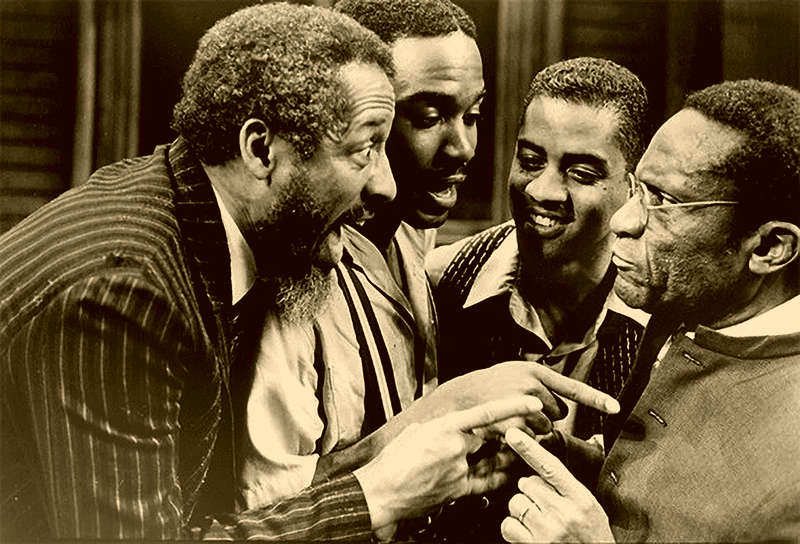A–Z
1963
Tambourines to Glory
Langston Hughes (Playwright)
2 – 23 November, 1963
Essie Belle Johnson and Laura Reed live in adjoining tenement flats, adrift on public relief. Essie wants to somehow earn enough money to reunite with her daughter and provide her with a nice home; Laura loves young men, mink coats, and fine Scotch. On a day of inspiration, the friends decide to use a thrift-store tambourine and a layaway Bible to start a church. Their sidewalk services are a hit: Laura’s a natural street performer who loves the limelight, while Essie is a charismatic singer with a quiet spirituality. Before long they move to a thousand-seat theatre called the Tambourine Temple. The two women are joined in their ministering by Birdie Lee, the little-old-lady trap drummer who can work the congregation to a feverish pitch, and Deacon Crow-For-Day, an impassioned confessor. But then Laura falls for Buddy, a scam artist who suggests selling to the faithful lucky numbers from Scripture and bottles of tap water as “Holy Water from the Jordan.” Even with a Cadillac and piles of money from Laura, Buddy won’t stay faithful, igniting a crime of passion and betrayal. The musical uses the style of a gospel service. (Source: Penguin Random House)
1975
Treemonisha
Scott Joplin (Playwright)
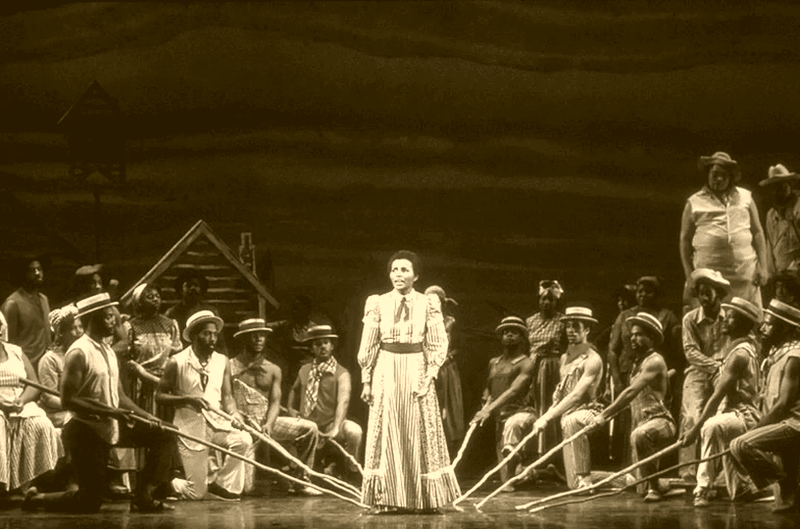
14 October – 15 December, 1975
Treemonisha takes place in September 1884 on a former slave plantation in an isolated forest, between Texarkana, Texas (Joplin's childhood town) and the Red River in Arkansas. Treemonisha is a young freedwoman. After being taught to read by a white woman, she leads her community against the influence of conjurers, who are shown as preying on ignorance and superstition. Treemonisha is abducted and is about to be thrown into a wasps' nest when her friend Remus rescues her. The community realizes the value of education and the liability of their ignorance before choosing her as their teacher and leader.
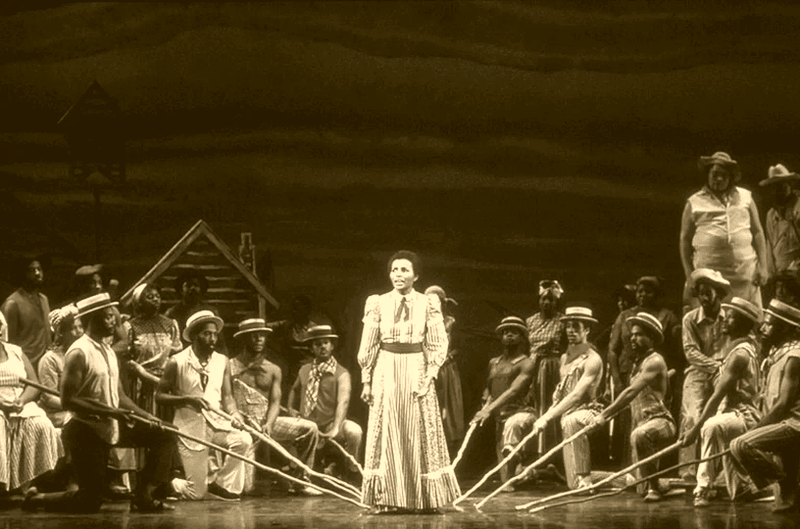
1997
Play On!
Duke Ellington (Music, Lyrics), Cheryl West (Book)
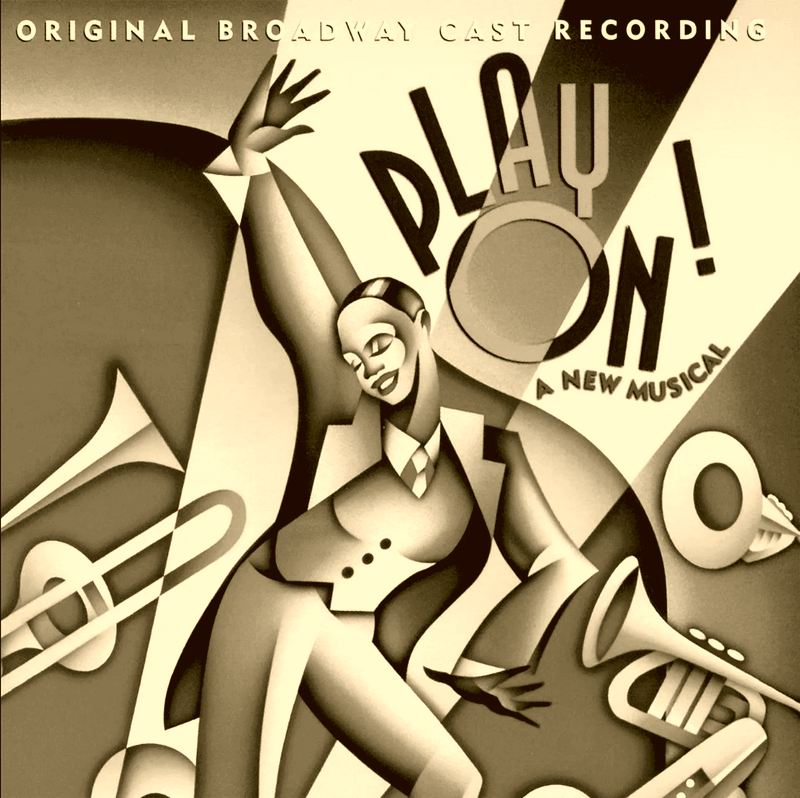
20 March – 11 May, 1997
Play On! is a musical adaptation of Shakespeare’s Twelfth Night, set in 1940s Harlem, featuring the music of Duke Ellington. Vy comes to swinging 1940s Harlem to write songs for the Duke, Harlem's greatest band leader. To overcome the sexist barriers of the time against women songwriters, she disguises herself as a man, Vy-man. She finds the Duke in tears over his loss of Lady Liv, Harlem’s “queen of the blues”. The Duke likes Vy-man's music, so he instructs the songwriter to go to the Cotton Club and present one of her songs as if it were a new song written by the Duke for Lady Liv. Lady Liv finds Vy-man charming, and a series of mistaken pairings results. Meanwhile, several of the performers at the Cotton Club are rebelling against the overly serious and tyrannical club manager, Rev. Since Rev has a crush on Lady Liv, the performers persuade him that he should woo her by learning to swing and scat, giving up his old fashioned ballads. More confusion results before the truth is revealed, and the couples are appropriately united. (Source: Wikipedia)
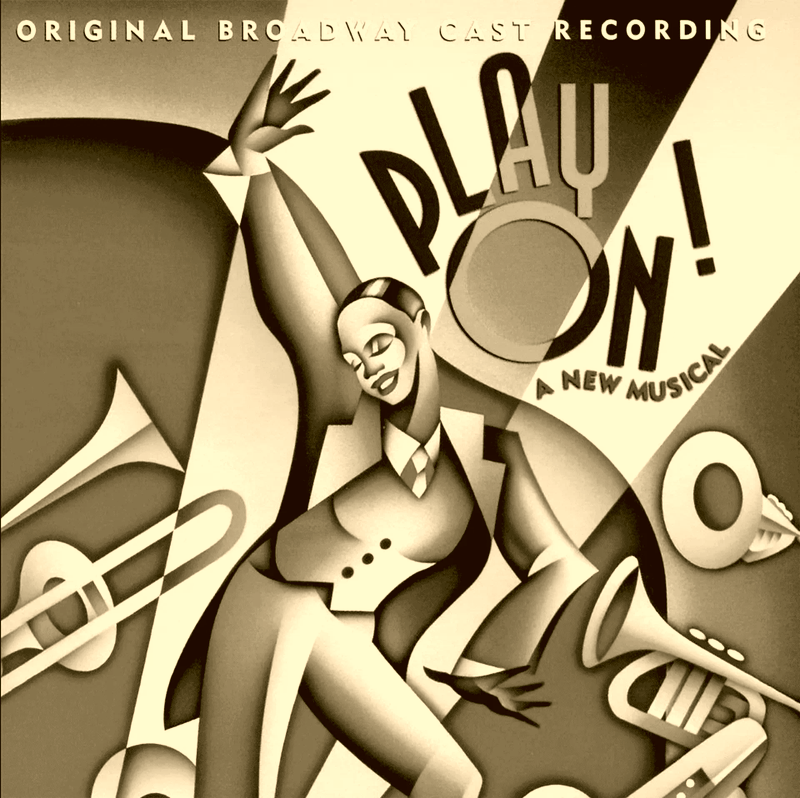
1975
The Wiz
Charlie Smalls (Music, Lyrics), William F. Brown (Book)
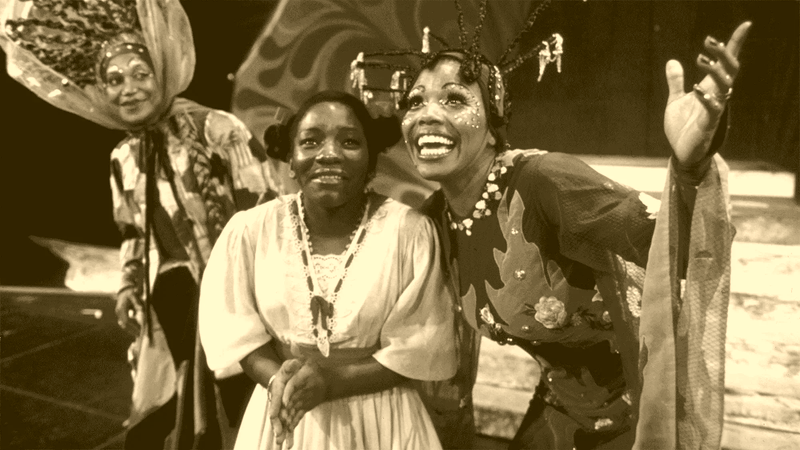
5 January, 1975 – 28 January, 1979
A retelling of L. Frank Baum's classic 1900 children's novel The Wonderful Wizard of Oz in the context of modern African-American culture.
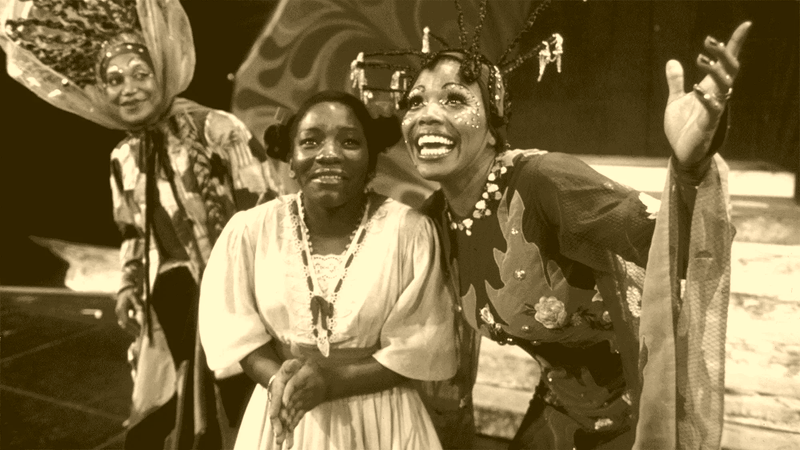
1950
Katherine Dunham and her Company
Katherine Dunham (Choreography)
19 April – 20 May, 1950
1929
Harlem
William J. Rapp (Playwright), Wallace Thurman (Playwright)
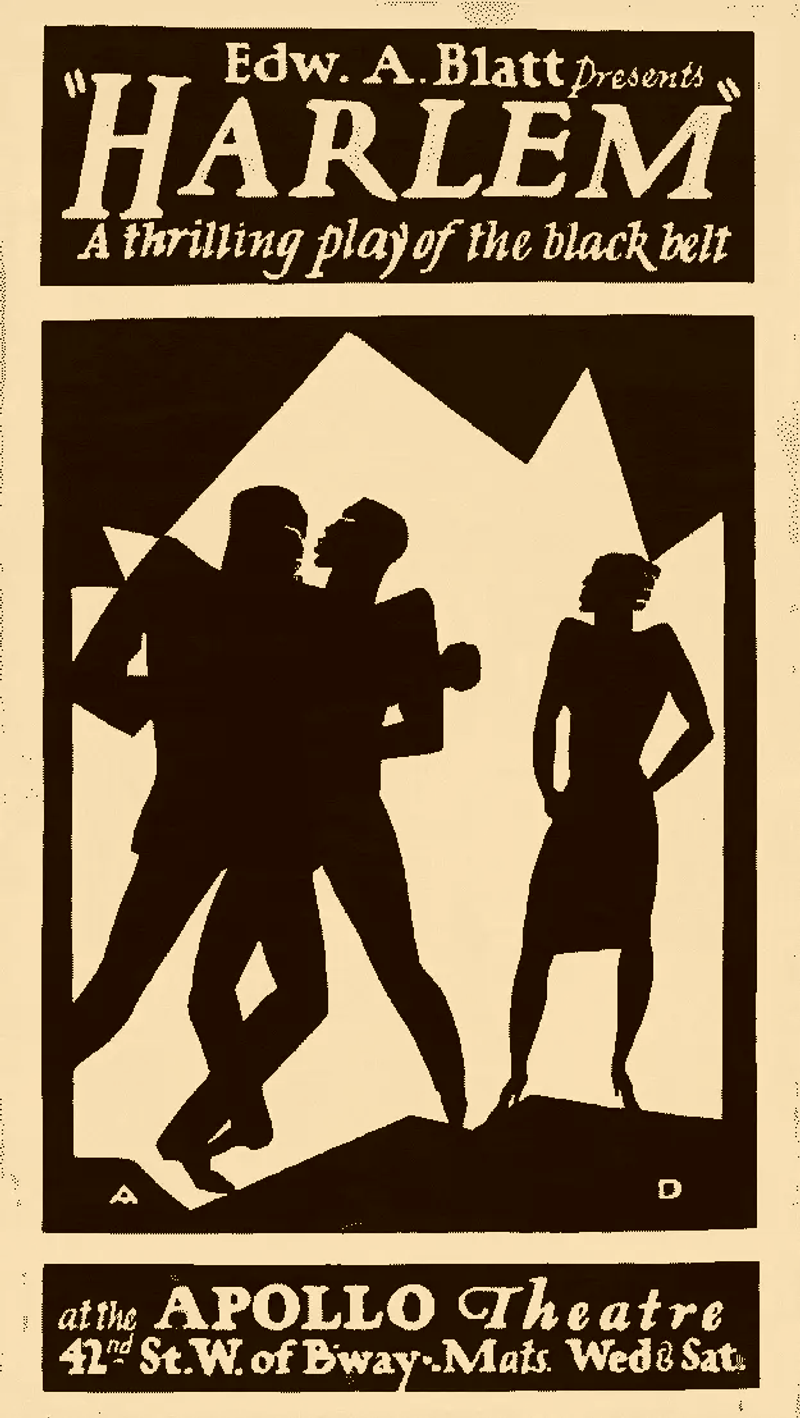
21 October 1929 (16 performances)
Adapted from Thurman’s short story, “Cordelia the Crude,” originally published in Fire, the quarterly edited by Thurman is a huge melodrama composed of sixty characters. The story centers on Cordelia, a “selfish, lazy, sullen” woman, shepherding around a cast of similarly flawed persons. The arch of the play’s story leads to no major character changes. It ends with the cacophony of a rent party, a murder, the framing of an innocent man for said murder (the true murderer being Cordelia’s new beau) and the murderer’s sudden death by falling from a window while under police pursuit. Together, the dramatics of the film served to illustrate the “devastating social dilemma” of the rural, Souther Black person’s attempt to adapt to a low-income, urban milieu. It is notable for its social realism; considered to be a significant departure from the “quaint” and “picturesque” portrayals of Black life that had dominated “Negro drama” at the time. (Source: “The Great White Way: Critics and the First Black Playwrights on Broadway” by Doris E. Abramson; Theorizing Black Theatre: Art Versus Protest in Critical Writings, 1898–1965 by Henry D. Miller)
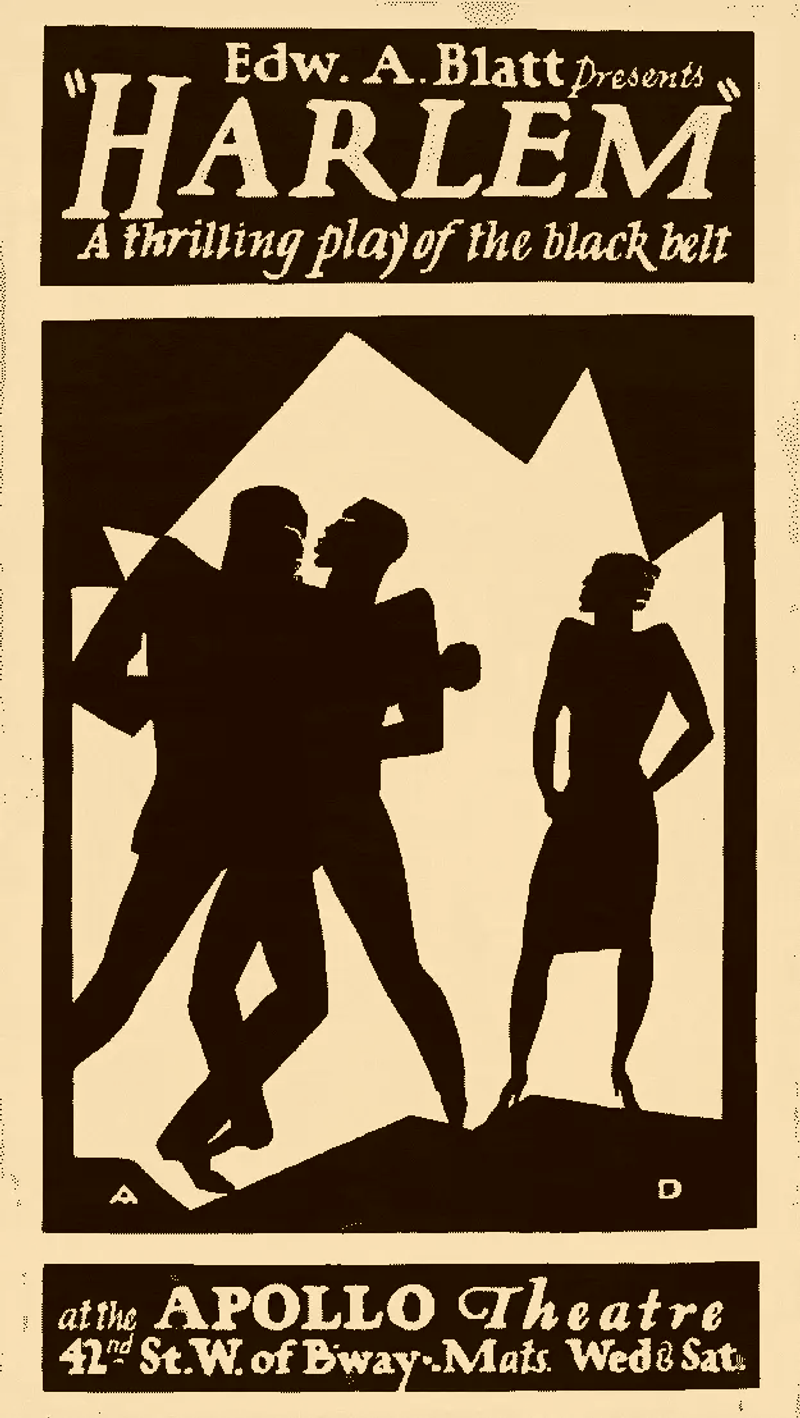
1986
Uptown …It’s Hot!
Direction, Choreography), Maurice Hines (Concept,
16 January – 16 February, 1986
A musical revue.
2011
Stick Fly
Lydia Diamond (Playwright)
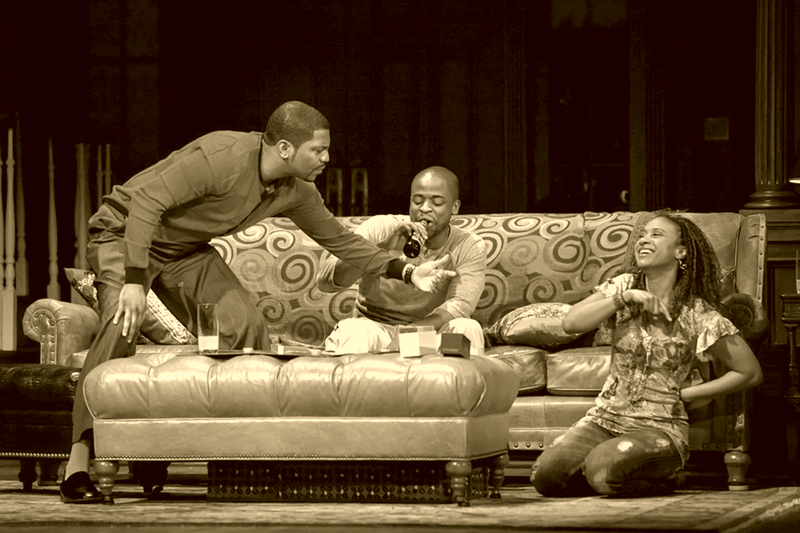
8 December, 2011 – 26 February, 2012
Stick Fly features the LeVays, an affluent African American family with multiple houses, including a vacation home on Martha’s Vineyard, where most of the play’s action occurs. Like A Raisin in the Sun, Stick Fly relies on an ensemble cast to explore multiple facets of African American identity. Stick Fly tells the story of Taylor, an entomologist whose research inspires the play’s title. Taylor visits the LeVay home for the first time with her fiancé and fledgling fiction writer Kent. Although she is the daughter of a wealthy public intellectual, James Bradley Scott, her father divorced her mother and withdrew from Taylor’s life, leaving them to struggle financially. During her time at the LeVay home, Taylor must balance her resentments as an outsider in the lives of the wealthy with her desire to successfully integrate into the LeVay family. She also struggles with what she perceives as the infiltration of the white world into the safe space of the LeVay home as represented through Kimber, the white girlfriend of Kent’s brother Flip. Parallel to Taylor’s explorations of identity is the narrative of Cheryl. Due to illness, Cheryl works in her mother’s role and, like Taylor, must negotiate her dual class identifications. Although she is the daughter of the maid, her connections with the LeVay family have enabled her education at an exclusive private school in the suburbs of New York City. Cheryl’s sense of class identity becomes even more complicated when she learns that she is the product of an affair between her mother and the Le-Vay family patriarch, Dr. LeVay. (Source: Project MUSE)
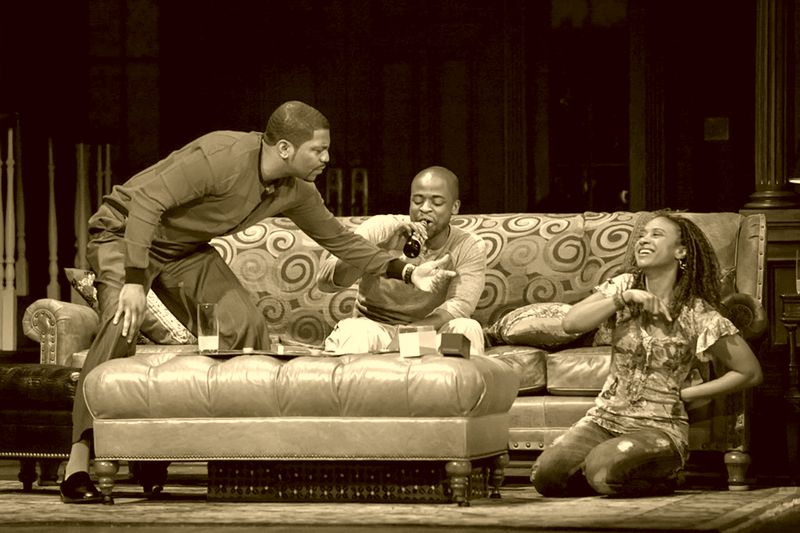
1984
Ma Rainey’s Black Bottom
August Wilson (Playwright)
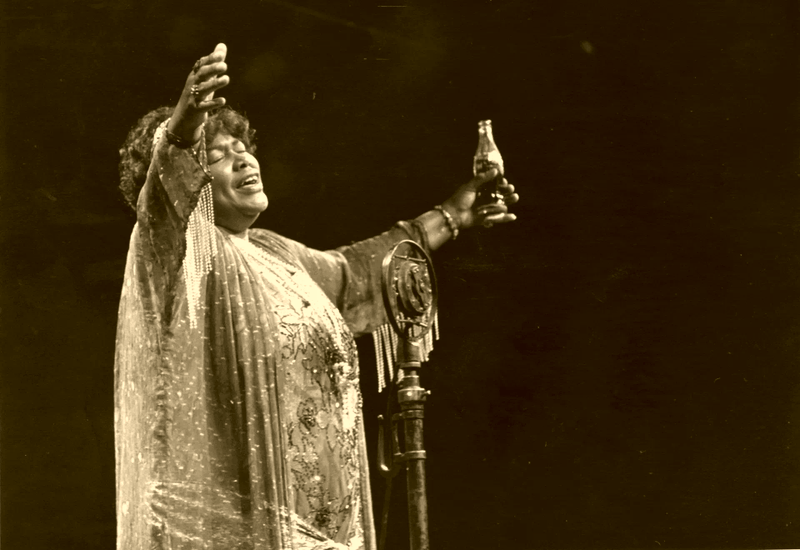
3 October, 1984 – 9 June, 1985
In a Chicago recording studio, Ma Rainey's band players Cutler, Toledo, Slow Drag, and Levee gather to record a new album of her songs. As they wait for her to arrive they tell stories, joke, philosophize, and argue. Tension is apparent between the young hot-headed trumpeter Levee, who dreams of having his own band, and veterans Cutler and Toledo. By the time Ma Rainey arrives with entourage in tow, recording has fallen badly behind schedule, enraging white producers Sturdyvant and Irvin. Ma's insistence that her stuttering nephew Sylvester speak the title song's introduction wreaks further havoc. As the band waits for various technical problems to be solved, Levee and Cutler come to blows. Levee is then simultaneously fired by Ma and rejected by producer Sturdyvant and in rage fatally stabs Toledo, destroying any possibility of a future for himself.
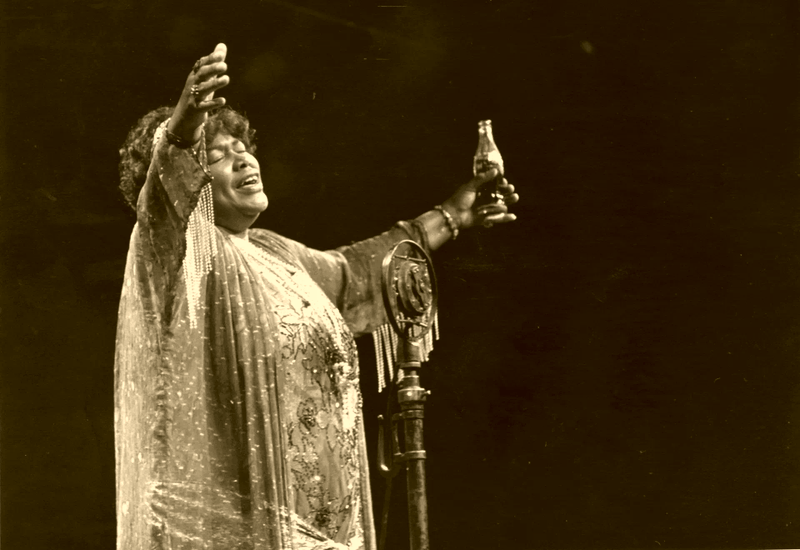
1996
Seven Guitars
August Wilson (Playwright)
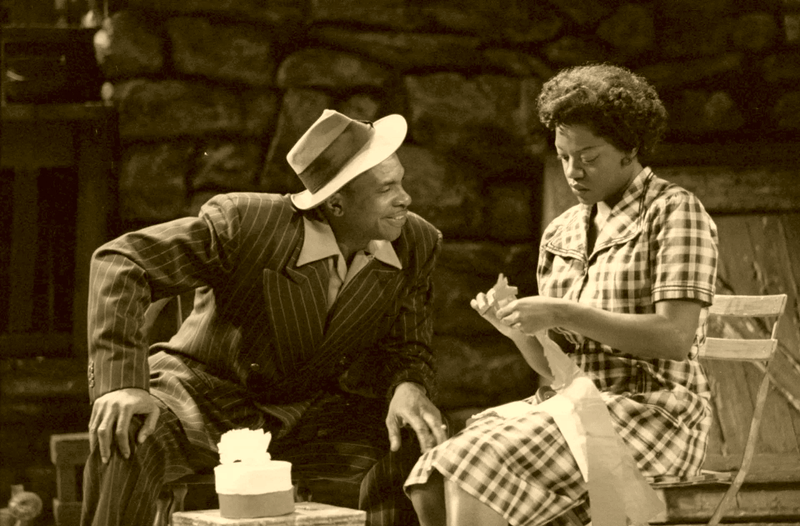
28 March – 8 September, 1996
Just released from jail, Blues singer Floyd “Schoolboy” Barton is asked to sign a record deal after a song he recorded months before becomes an unexpected hit. After a year of trials and tribulations, Floyd is ready to right the past year's wrongs and return to Chicago with a new understanding of what's important in his life. (Source: Wikipedia)
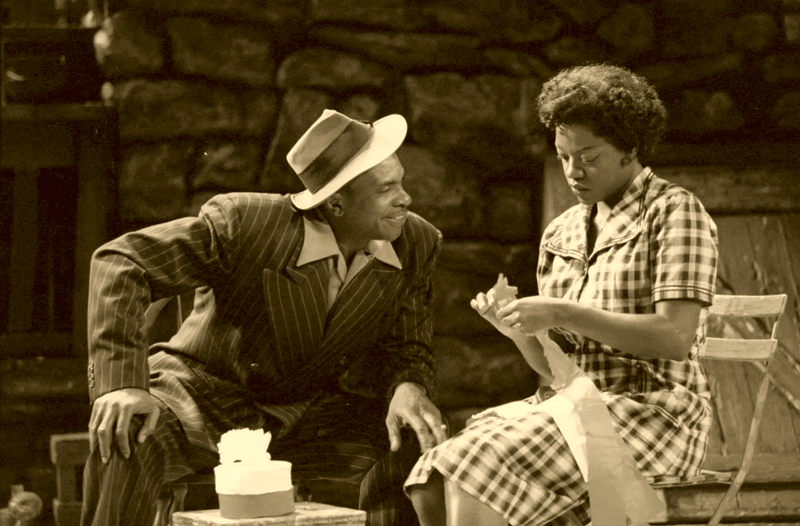
1941
Native Son
Richard Wright (Playwright)
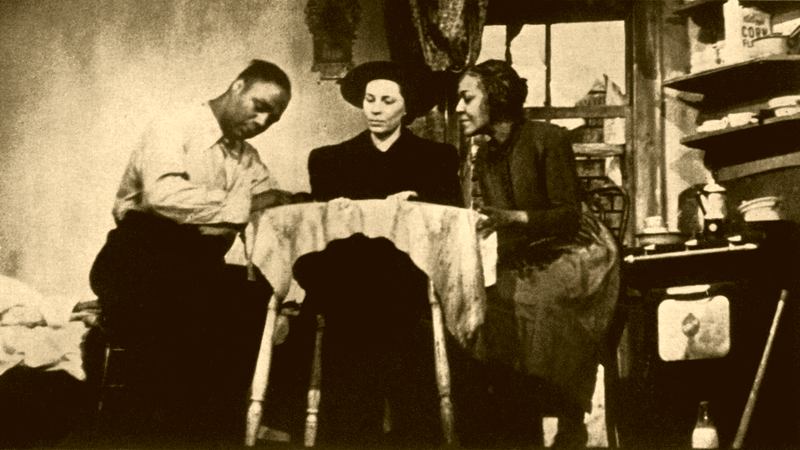
24 March – 28 June, 1941 Revival in October, 1942
Based on the fantastic award winning novel by Richard Wright and directed by Orson Welles only two months before the release of his film masterpiece Citizen Kane. Starring Canada Lee as Bigger Thomas, a tormented black man in the slums of South Side Chicago wanted for killing a white woman. A powerful commentary on the American racial environment. (Source: IBDB) Richard Wright and Paul Green edited Native Son's plot to fit the time constraints of a play more easily. Certain parts are edited or cut completely. In the novel, the daughter of Bigger Thomas's employers, Mary, has a communist boyfriend, Jan, who Bigger tries to blame Mary's murder on. Bigger even tries to collect ransom for Mary's supposedly missing body. He also becomes the Dalton's chauffeur only after a failed robbery attempt of a white man's store. In the drama, these details are erased. It becomes simpler and more objective—Bigger becomes the Dalton's chauffeur because of a social worker. He kills Mary by accident, as in the book, but is shortly found after a manhunt through Chicago. (Source: Wikipedia) The 1941 production was Nominated for Best American Play by the New York Drama Critics’ Circle (1941). (Source: Playbill)
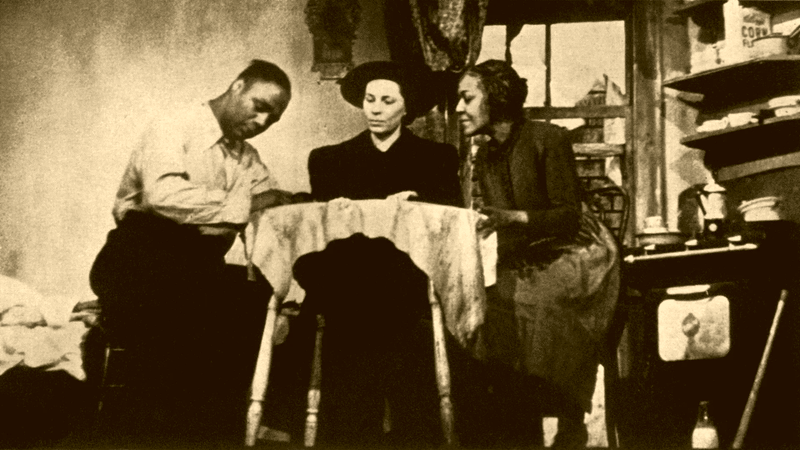
1984
Whoopi Goldberg! Direct from Broadway
Whoopi Goldberg (Playwright)
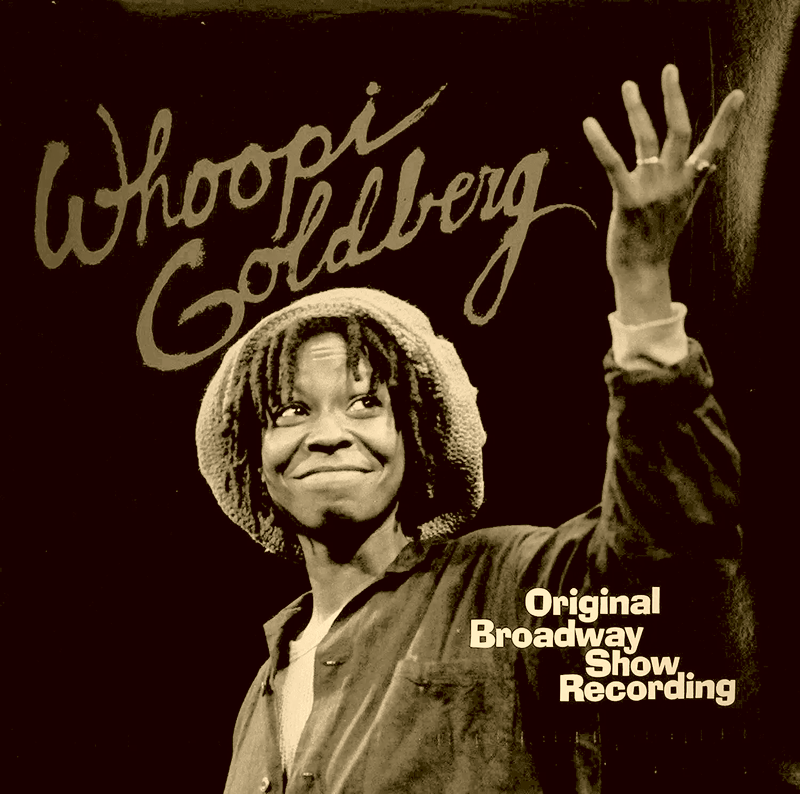
10 October, 1984 – 10 March, 1985
A long running comedy show.
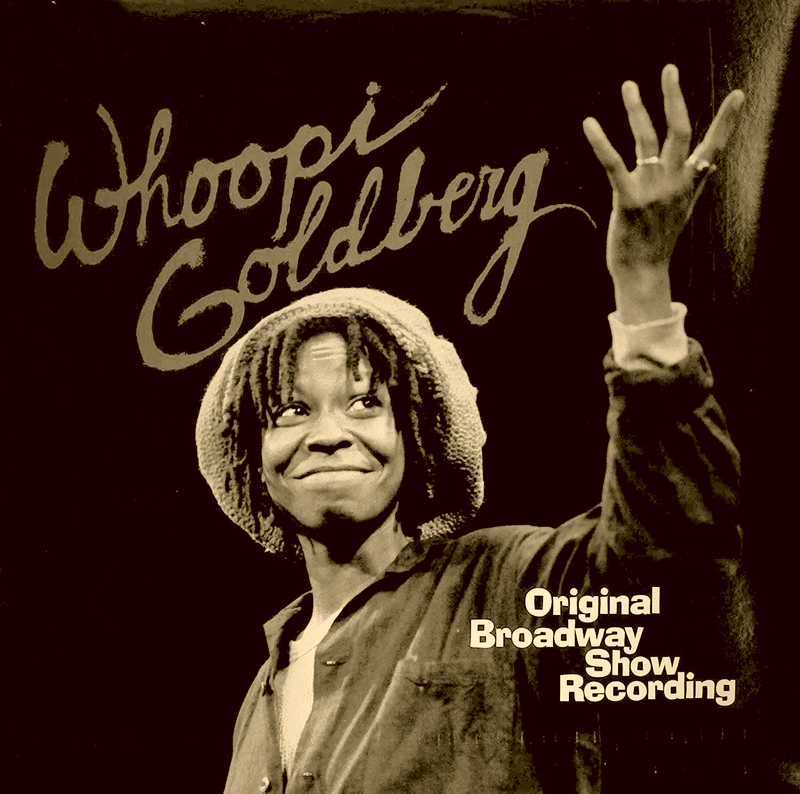
1981
Inacent Black
A. Marcus Hemphill (Playwright)
23 April – 17 May, 1981
From the NYTimes: “[...] the title character, an angel who is sent by God to an upper-middle-class black household resembling the one in the Norman Lear situation-comedy ‘The Jeffersons.’” Mama Rydell, a domineering widower, and her four grown sons live in an Old Westbury mansion, from which they run the real estate empire that the family patriarch left behind. As it happens, all the Rydells need help with both their professional and personal lives. Enter the sanctimonious Inacent, who brings the entire family salvation by offering each member separate instruction in the ways of the Lord.
2019
Choir Boy
Tarell Alvin McCraney (Playwright)
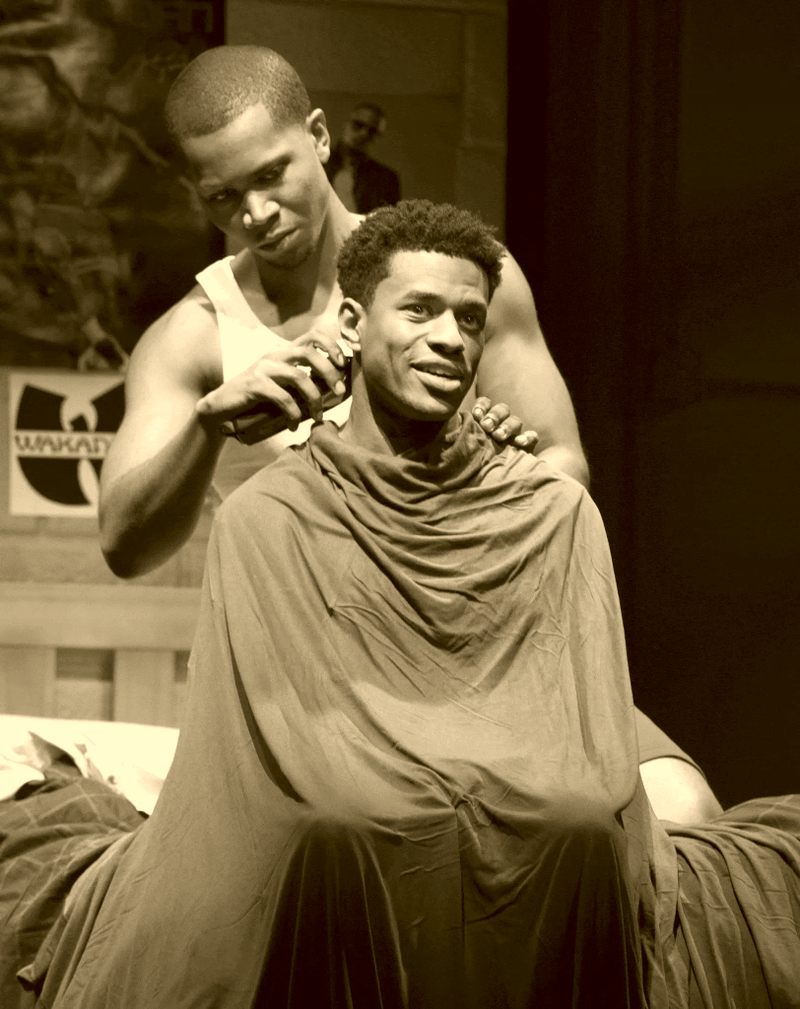
8 January – 10 March, 2019
Choir Boy follows a group of young, black students at Charles R. Drew Prep School for Boys as they struggle with issues of identity and sexuality. Pharus is the vivid central character, a bright-eyed, smart and enthusiastic Drew student. His pride in singing the school anthem at the graduation ceremony is sullied by the gay slurs hissed at him from one of his fellow students in the audience. Pharus may not speak of his sexuality, but he’s not really hiding this beaming light under a bushel, either. The action begins as he refuses to divulge the name of the boy who taunted him, maintaining that this would be a breach of the school’s honor code. Even under the threat of expulsion, Pharus insists on behaving “as a Drew man should.” But Pharus also knows that he can exact his own private revenge. Gospel music at Drew is a tradition as old as the school itself, and that tradition is embodied in its choir, where Pharus stands out and be different without fear – because he’s the choir’s best. And as leader of the choir, he has the power to decide who can and cannot sing. And in the choir’s first school year meeting, after a few tart exchanges the boy he believes humiliated him, Pharus flares into righteous mode and kicks Bobby out. (Source: The New York Times)
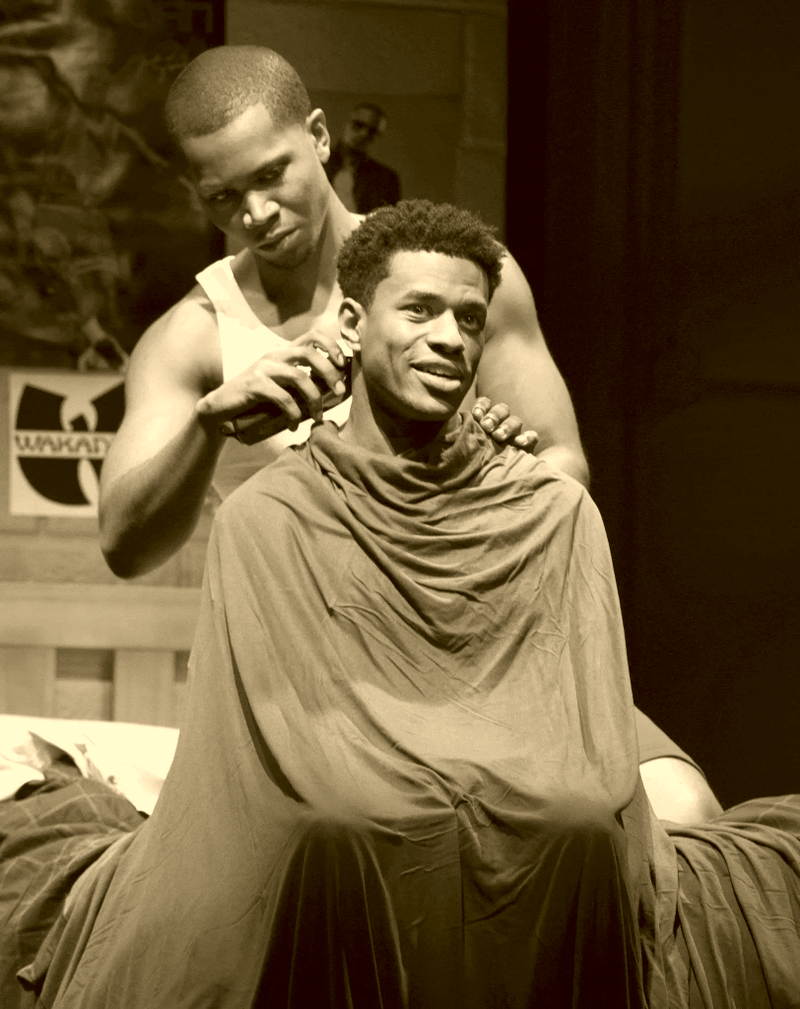
1990
Truly Blessed
Queen Esther Marrow (Playwright)
12 April – 20 May, 1990
Conceived by Queen Esther Marrow; Written by Queen Esther Marrow; Based on the life of Mahalia Jackson; Music by Queen Esther Marrow; Lyrics by Queen Esther.
1920
Three Showers
Henry Creamer (Lyrics), William Carey Duncan (Book), J. Turner Layton (Music)
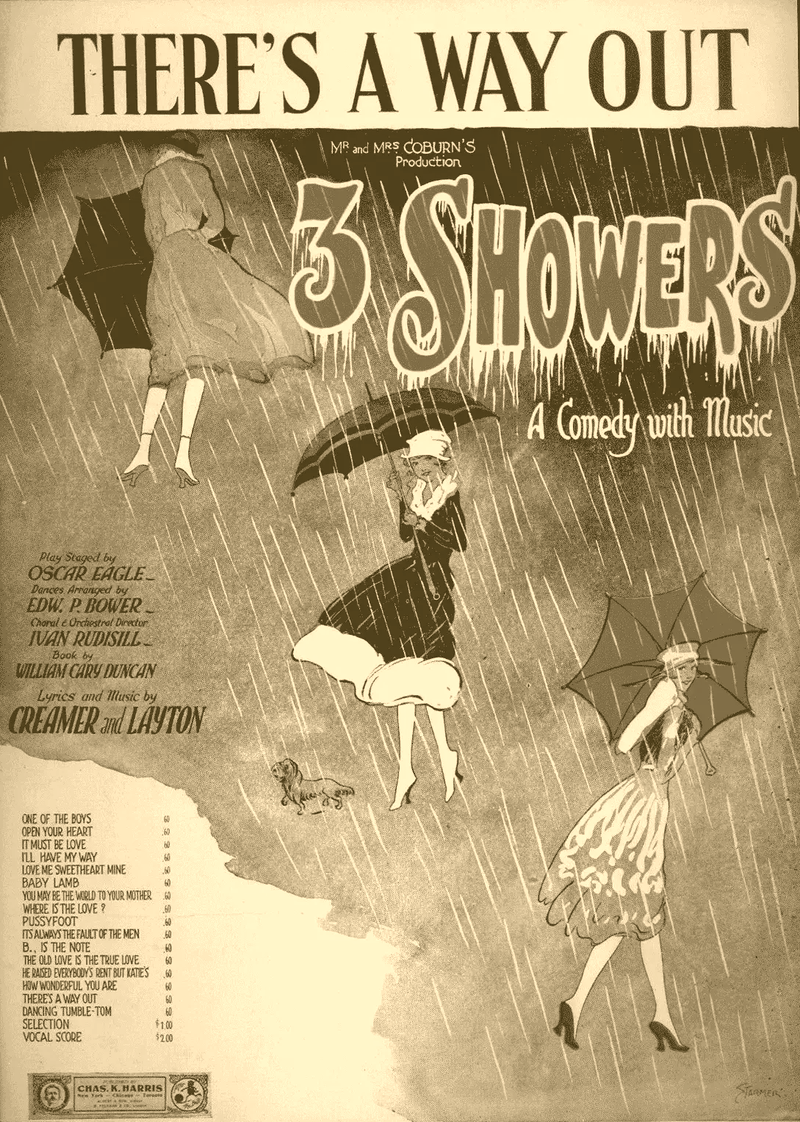
5 April – 15 May, 1920
A comedy with music, based on the old adage that, if you make a wish on a day with three showers, your wish will come true. Roberta Lee “Bob” White (Anna Wheaton) wishes for Peter Fitzhugh (Paul Frawley) and gets him. The show conveyed Broadway’s idea of 1920s rusticity in a number that found Miss Wheaton dressed as a “farmerette” in pink-and-white checked trousers and a bright red sash, and had her pushed around the stage in a wheelbarrow.
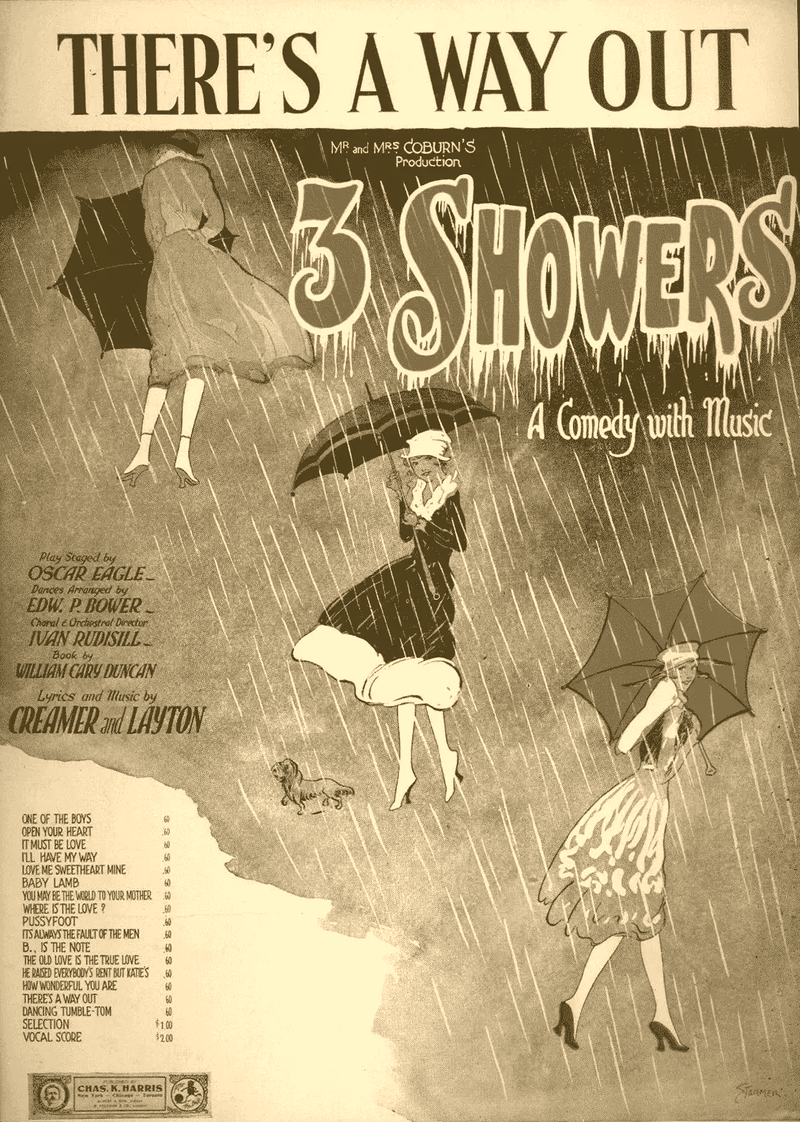
2004
Whoopi
Whoopi Goldberg (Playwright)
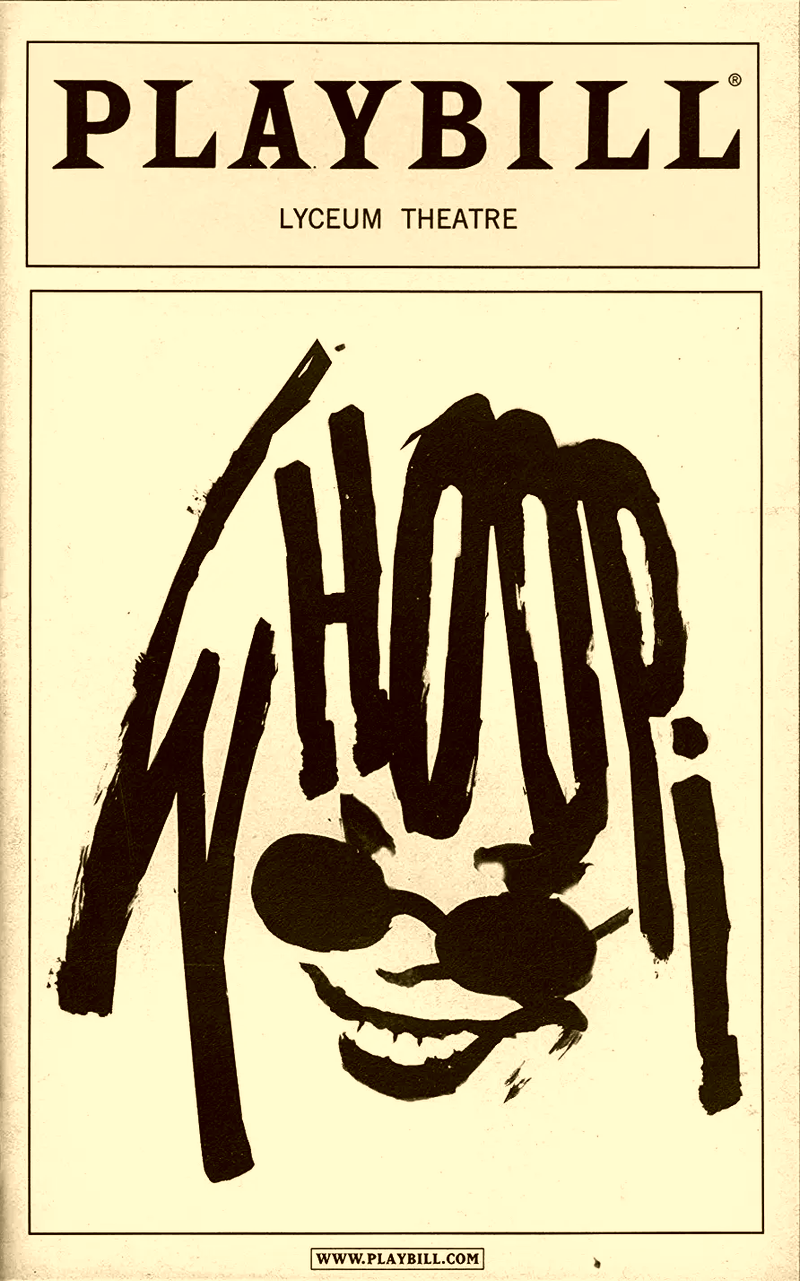
17 November, 2004 – 30 January, 2005
Whoopi Goldberg presents an evening of comic monologues spoken by various characters, from a nine-year-old girl to an elderly man, from a “dope fiend” to a valley girl. Twenty years after making her Broadway debut with a one-woman show based on character work and comic observations on life, Whoopi Goldberg returns with a revised version of the same show, featuring two new characters and updated political commentary. (Source: Playbill)
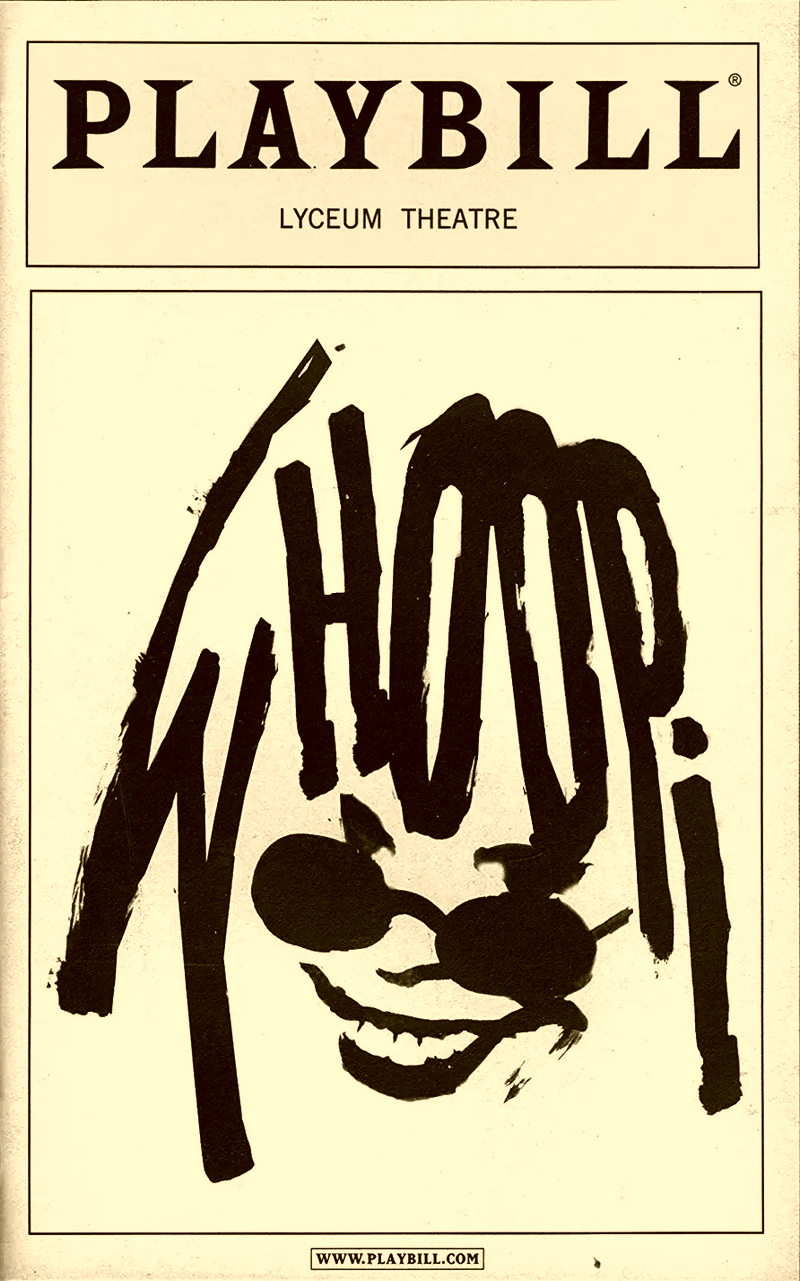
1937
Swing It
Eubie Blake (Music)
22 July – 1 September, 1937
Original musical, Unable to find a synopsis.
1970
Les Blancs
Lorraine Hansbury (Playwright)
15 November – 19 December, 1970
Best American play of 1970, Les Blancs prophetically confronts the hope and tragedy of Africa in revolution. The setting is a white Christian mission in a colony about to explode. The time is that hour of reckoning when no one the guilty nor the innocent can evade the consequences of white colonialism and imperatives of black liberation. Tshembe Matoseh, the English educated son of a chief, has come home to bury his father. He finds his teenage brother a near alcoholic and his older brother a priest and traitor to his people. Forswearing politics and wanting only to return to his wife and child in England, Tshembe is drawn into the conflict symbolized by a woman dancer, the powerful Spirit of Africa who pursues him. (Source: Samuel French)
1899
The Policy Players
Jesse A. Shipp (Book), Will Marion Cook (Music)
6 October – 21 October, 1899; 2 April – 9 April, 1990
A lottery winner wishes to enter high society; a swank affair is arranged, at which he is introduced to the Ex-President of Liberia.
1992
Jelly’s Last Jam
George C. Wolfe (Playwright)
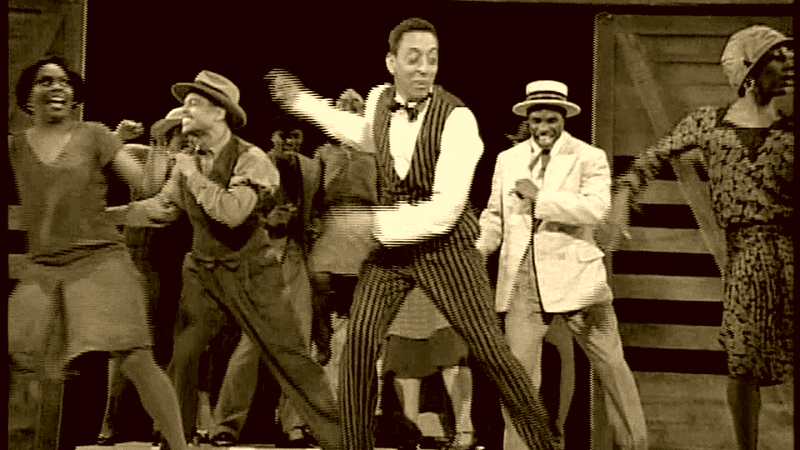
1 April – 5 September, 1992
The play opens with the recently deceased Morton in a state of limbo, looking back on his life. He is reluctantly guided by the mysterious ‘Chimney Man,’ who forces him to recall the more painful moments of his life when he attempts to ignore or embellish them. Born into an old and wealthy mixed-race Creole family in New Orleans, the young Morton rebels against his upbringing by going into the streets and absorbing the rhythms of the vendors and poor blacks, meeting blues musician Buddy Bolden. When his Creole grandmother discovers his new lifestyle, she disowns him. Forced to go on the road, Morton becomes a prominent composer and musician, and the self-proclaimed creator of jazz. His sadness over his family's rejection causes him to stress his Creole ancestry and claim that there are 'no black notes in my song.' Eventually his pride and racism cause him to betray his best friend and the woman he loves. In his later years, as the Jazz culture continues to grow, Morton is largely forgotten and reduced to dealing with crooked music publishers and gangsters, eventually dying of a knife wound in the colored wing of a Los Angeles hospital. At the moment of his death, Morton at last admits to his heritage - "Ain't no black notes in my song/I was wrong/ I was wrong." At this moment, the shadows of the people in his life surround him to congratulate him, and Morton takes his place in history among the other Jazz legends.
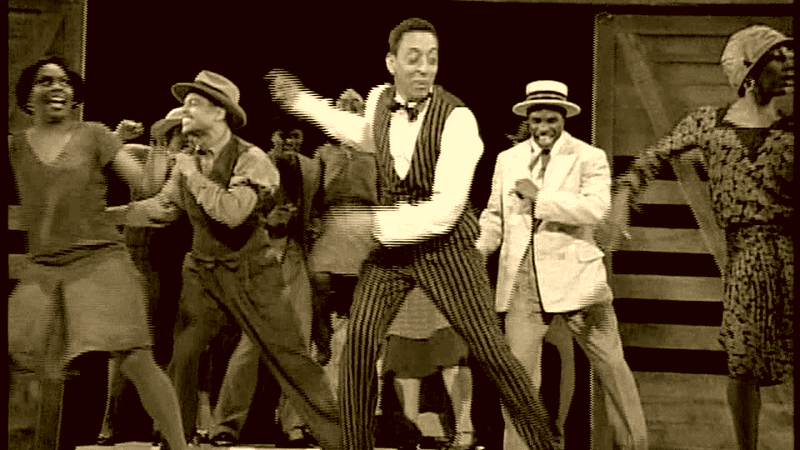
1987
Fences
August Wilson (Playwright)
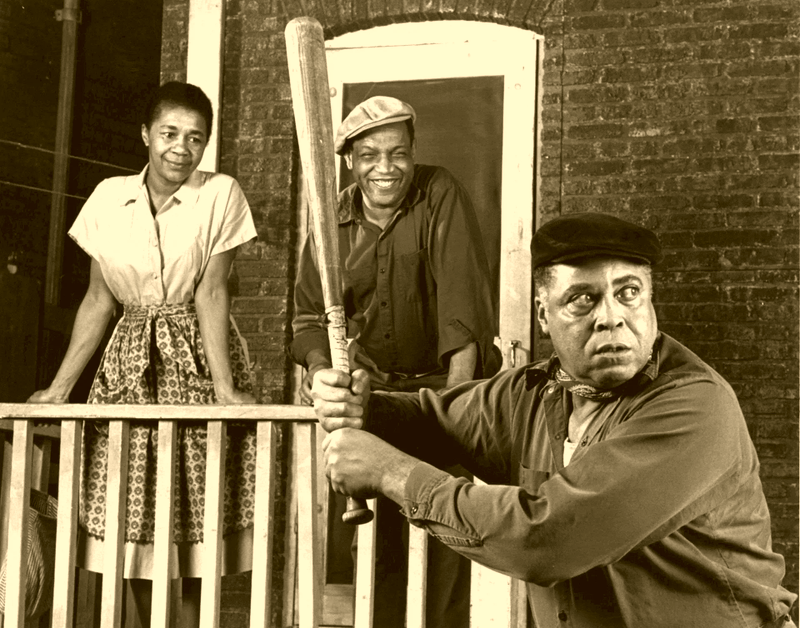
17 March, 1987 – 26 June, 1988
The focus of Wilson's attention in Fences is Troy, a 53-year-old head of household who struggles with providing for his family. The play takes place in Pittsburgh, Pennsylvania; although never officially named, it makes mention of several key locations in Pittsburgh. In his younger days, Troy was an excellent player in Negro league baseball and continued practicing baseball while in prison for an accidental murder he had committed during a robbery. Because the color barrier had not yet been broken in Major League Baseball, Troy was unable to get into MLB to make good money or to save for the future. He now lives a menial, though respectable life of trash collecting; later in the play, he remarkably crosses the race barrier and becomes the first black truck driver in Pittsburgh instead of just a barrel lifter.
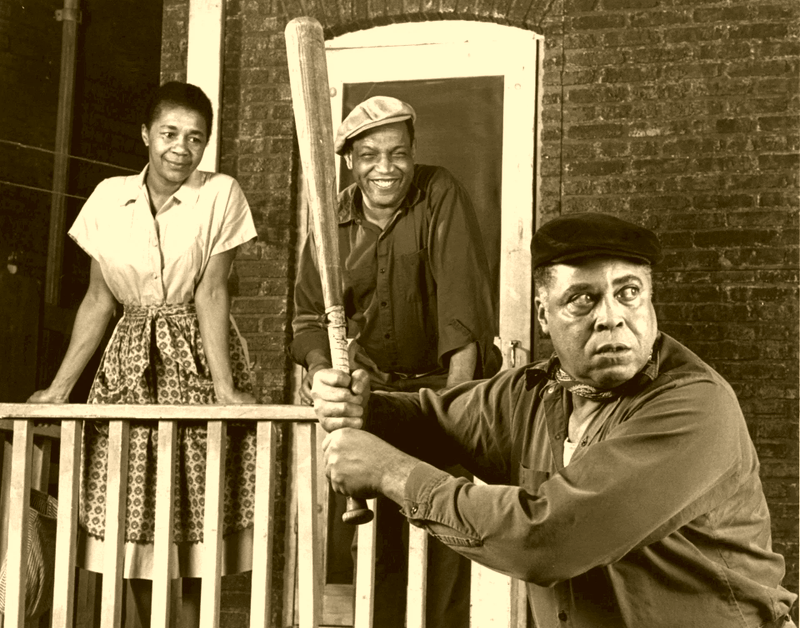
1990
The Piano Lesson
August Wilson (Playwright)
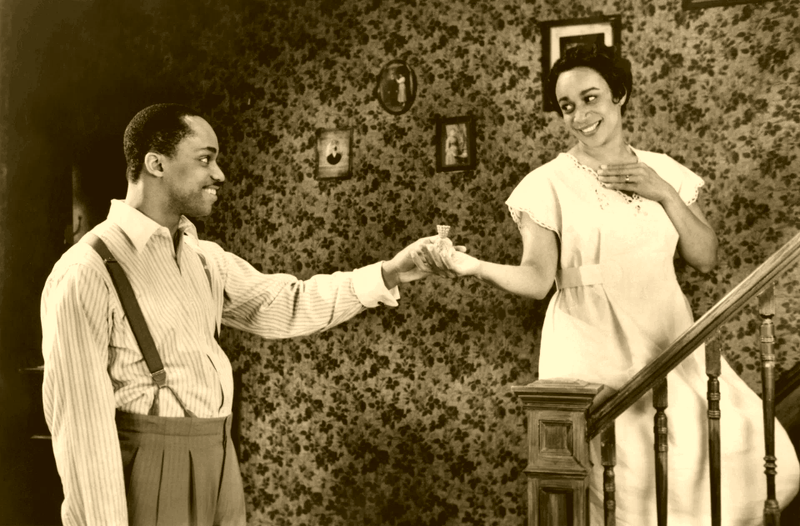
10 April, 1990 – 27 January, 1991
Set in 1936 Pittsburgh during the aftermath of the Great Depression, The Piano Lesson follows the lives of the Charles family in the Doaker Charles household and an heirloom, the family piano, which is decorated with designs carved by an enslaved ancestor. The play focuses on the arguments between a brother and a sister who have different ideas on what to do with the piano.
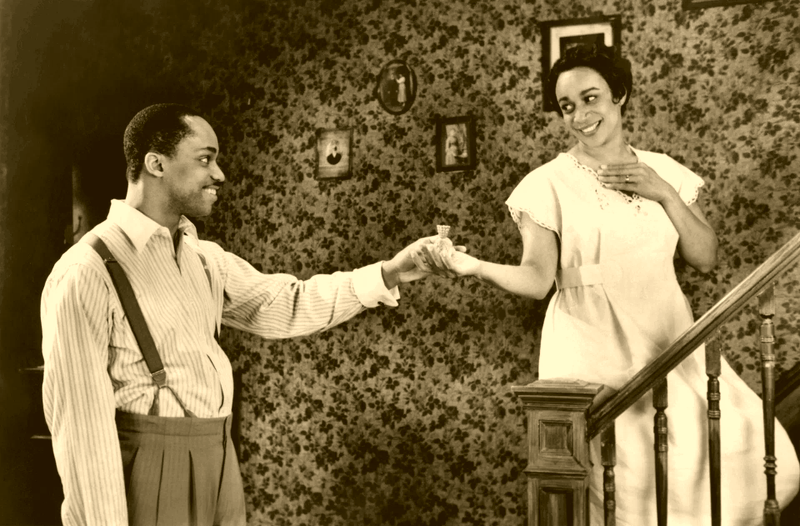
1947
Our Lan’
Theodore Ward (Playwright)
27 September – 01 November, 1947
Set in the closing moment and just after the Civil War, the play is comprised of two stories. The first, is that of a community of recently emancipated freedman who settle an island plantation off the Georgia coast given to them by General Sherman’s order and promised to them as part of post-war land reforms. Their struggle to make the land prosper and a betrayal by the government sets the scene for a second story. The second story focuses on the central character, Joshuah Tain, a “humble, but charismatic leader” who emerges among the freedmen. His character represents the spirit of the freedmen as well as the challenges inherent to being a community leader with a complicated interior life and personal goals and desires. At the center of Joshuah’s story is his growth as a leader and his love affair with Delphine, a former slave caught between two worlds. She is tempted to retain a slave mentality while also compelled to rebel and become a free and equal citizen of post-war America. (Source: “Theodore Ward's Our Lan': From the Slavery of Melodrama to the Freedom of Tragedy” by Owen E. Brady)
2011
The Mountaintop
Katori Hall (Playwright)
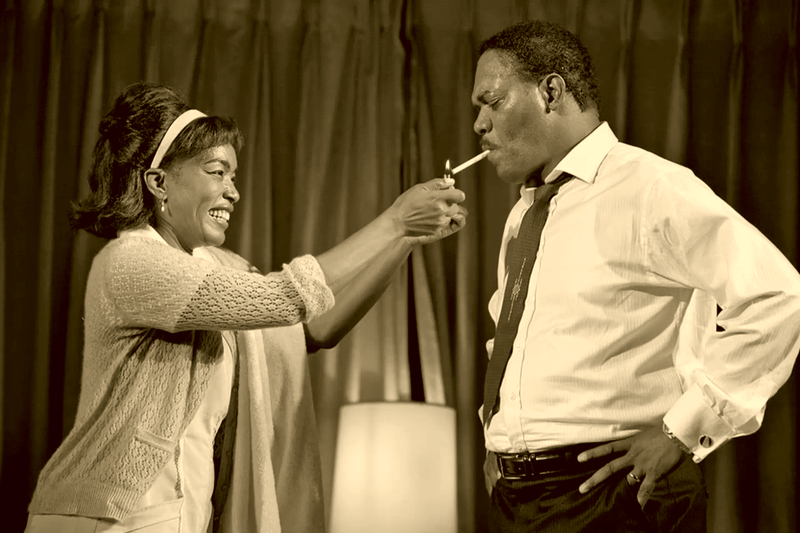
13 October, 2011 – 22 January, 2012
The Mountaintop is a fictional depiction of the Reverend Martin Luther King Jr.’s last night alive set entirely in Room 306 of the Lorraine Motel on the eve of his assassination in 1968. Ordering room service, King comes into contact with Camae (Carrie Mae), the mysterious and beautiful maid who strikes King's attention immediately. The beginning interactions between the two are filled with flirtation and humor but through the night it slowly progresses to something much deeper. King and Camae begin to discuss the hopes and fears that Martin Luther King Jr. has been feeling, forming a connection and understanding between the two. The conversation focuses on the fight for civil rights and reaches the climax when Camae reveals her true intentions for walking into King's motel room that night. Camae is revealed to be an angel sent by God to collect King and bring him to heaven; Camae reveals that King will die tomorrow, April 4, by being assassinated. Forced to confront his fears, King tries to bargain and plead with Camae to give him more time, explaining that he needs to continue his work in the civil rights movement before he can go. (Source: Wikipedia)
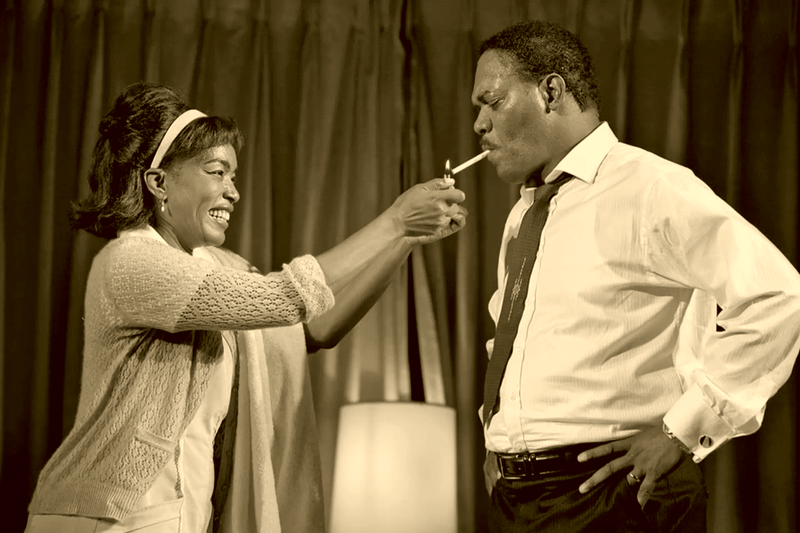
1909
Mr. Lode of Koal
J. Rosamund Johnson (Music), Alex Rogers (Lyrics), Jesse A. Shipp (Book)
1 November – 4 December, 1909
Bert Williams’ project after Walker’s became too ill to perform. The plot of this dream farce centered on Williams’ shipwrecked title character, Chester A. Lode, becoming a reluctant island king. After opening night, a New York Times reviewer wrote, “Any new plot there may be in Bert Williams’s new play is effectively disguised in a jumble of nonsense and music, though one is led to suspect the presence of such a commodity from the beginning of the first act. As a wild guess, it seems to be like this: The ruler of an unidentified country is kidnapped and a certain Chester A. Load [sic], of the Island of Koal, is engaged to fill the vacancy. This he does to his own satisfaction until the return of the real ‘Big Smoke,’ known familiarly as Blootch
1992
Two Trains Running
August Wilson (Playwright)
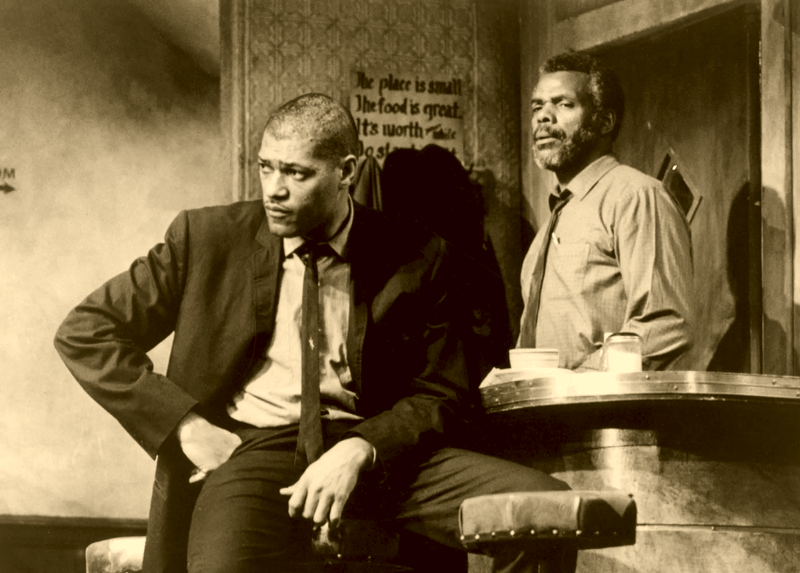
13 April – 30 August, 1992
Two Trains Running is a play by American playwright August Wilson, the sixth in his ten-part series The Pittsburgh Cycle. The play premiered on Broadway in 1993 and was a finalist for the Pulitzer Prize for Drama. (Source: Wikipedia)
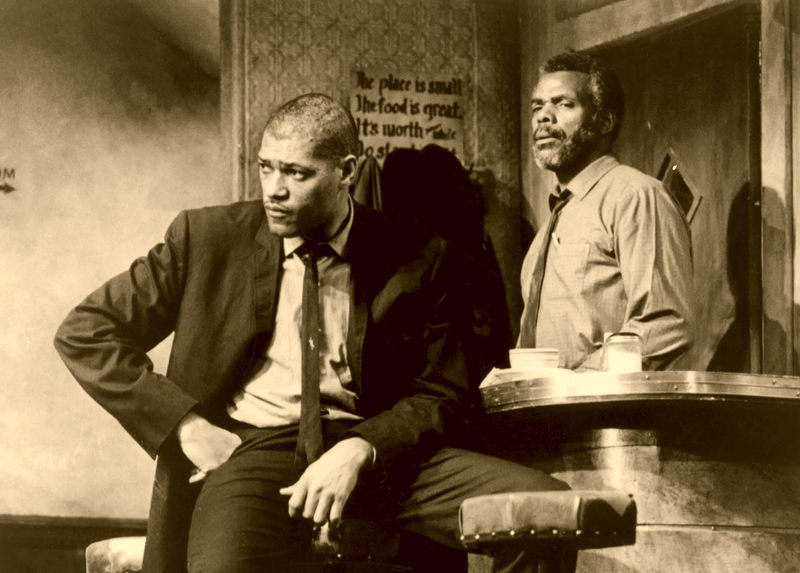
1957
Simply Heavenly
Langston Hughes (Playwright)
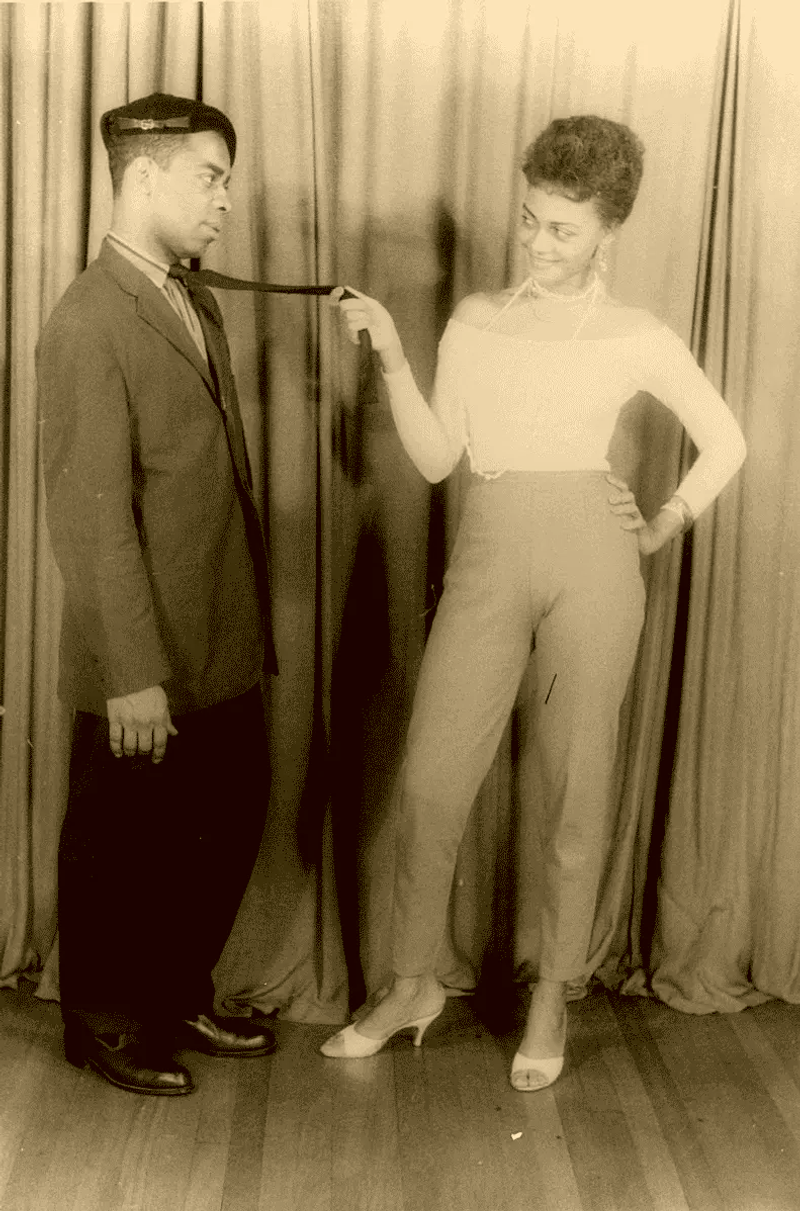
20 August – 12 October, 1957
Set in Harlem of the ‘50s, Simply Heavenly follows Jess Simple as he tries to raise enough money for a divorce so he can marry his new love and eloquently captures the color, humor and poetry of that time and place. The musical is based on Hughes' novel Simple Takes A Wife and other Simple stories. (Source: Masterworks Broadway)
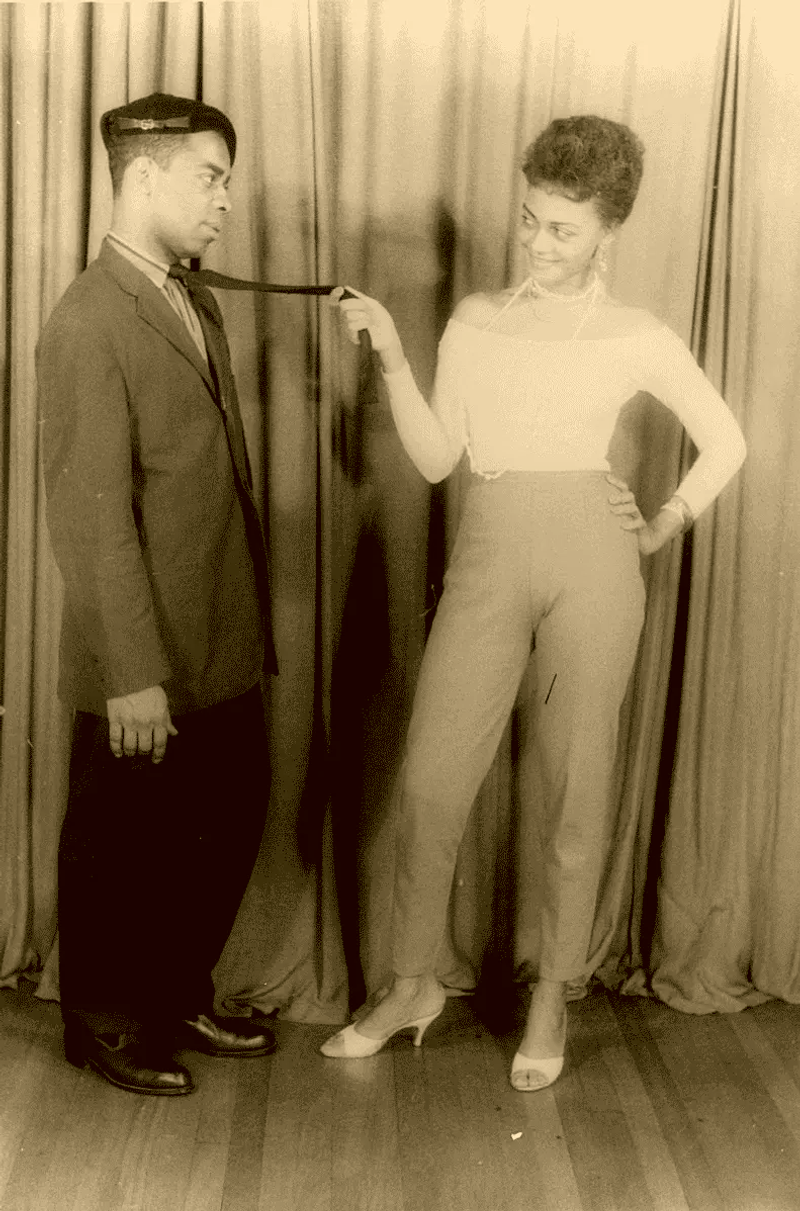
2006
Hot Feet
Maurice White (Composition, Lyrics), Maurice Hines (Concept), Heru Ptah (Book)
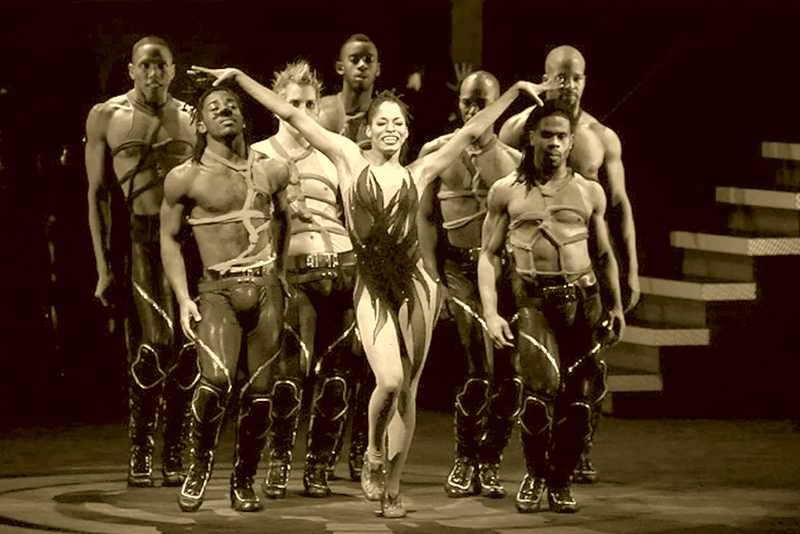
30 April – 23 July, 2006
Hot Feet is a jukebox musical featuring the music of Earth, Wind & Fire, a book by Heru Ptah and was conceived, directed, and choreographed by Maurice Hines. Hot Feet is about a beautiful young dancer whose dream is to dance on Broadway. When she puts on a pair of magical red shoes, they begin to take control of her fate. This story is a modern retelling of The Red Shoes, a fairy tale by Hans Christian Andersen. (Source: Wikipedia)
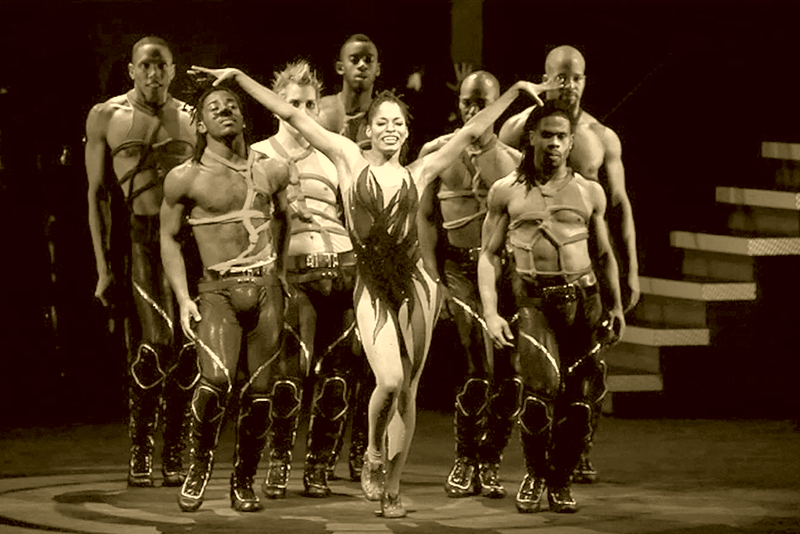
1952
Shuffle Along (1952 Revival)
Noble Sissle (Lyrics), Paul Gerard Smith (Revised Book), Flournoy Miller (Revised Book), Eubie Blake (Music)
8 – 10 May, 1952
1923
The Chip Woman’s Fortune
Willis Richardson (Playwright)
15 March, 1923 – June, 1923
The first serious work by an African American playwright to be produced on Broadway, The Chip Woman’s Fortune follows a Black family in debt as they try to figure out a plan before the debt collectors arrive.
1923
Elsie
Noble Sissle (Lyrics), Monte Carlo (Lyrics), Eubie Blake (Music), Alma M. Sanders (Music)
2 April – 5 May, 1923
The script is based on Charles W. Bell's 1918 play A Dislocated Honeymoon. The story concerns an ex-showgirl who elopes with a society boy, but his family tries to break up the marriage. The Gershwins wrote ten songs for the musical, eight of which were used in the production, which premiered in Atlantic City, New Jersey on March 21, 1921. The book was revised and retitled Elsie and, later, entirely new music was written for it by Eubie Blake and others. This version was produced on Broadway in April 1923. Even though Elsie ran for only 40 performances, it made history as a rare early example of black songwriters writing for white performers.
2021
Skeleton Crew
Dominique Morisseau (Playwright)

21 December 2021 – 20 February, 2022
In 2008 Detroit, a small automotive factory is on the brink of foreclosure, and a tight-knit family of workers hangs in the balance. With uncertainty everywhere, the line between blue collar and white collar becomes blurred, and this working family must reckon with their personal loyalties, their instincts for survival, and their ultimate hopes for humanity.

2019
Ain’t Too Proud: The Life and Times of The Temptations
Dominique Morisseau (Playwright)
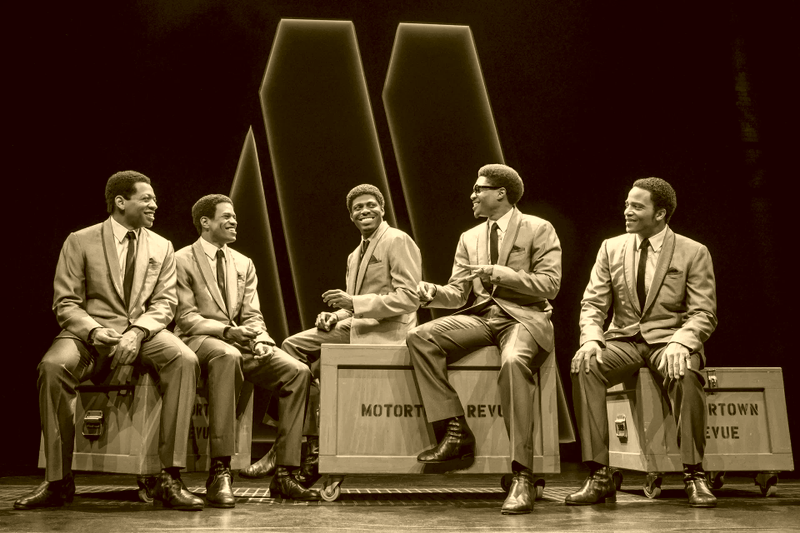
21 March 2019 – present
Ain’t Too Proud: The Life and Times of The Temptations is a 2018 jukebox musical based on the story of the musical sensation, The Temptations, who recorded with Motown Records in the 1960s and 1970s. (Wikipedia)
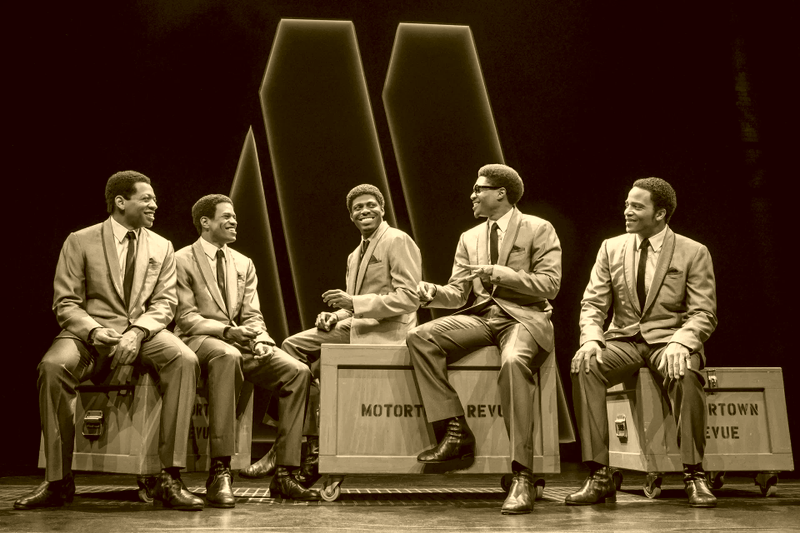
1929
Hot Chocolates
Andy Razaf (Book), Harry Brooks (Music), Thomas “Fats” Waller (Music)
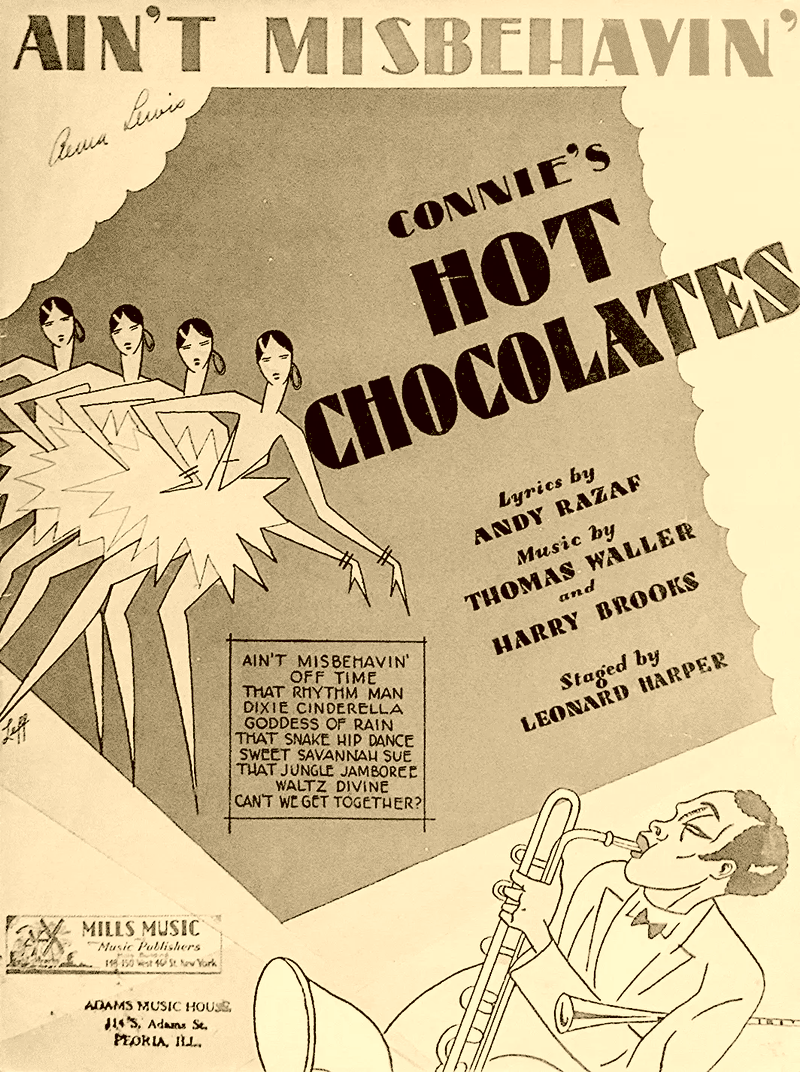
20 June – 14 December, 1929
A musical revue with music by “Fats” Waller and Harry Brooks and book by Andy Razaf. Performed at the Hudson Theater in New York City, the show was directed by Leonard Harper and ran for 219 performances from opening on June 20, 1929, to closing on December 14, 1929. Louis Armstrong made his Broadway debut with his role in the ensemble as part of the pit band for the show. The show is also referred to as Connie's Hot Chocolates. It was staged, directed, and produced by Leonard Harper. (Source: Wikipedia)
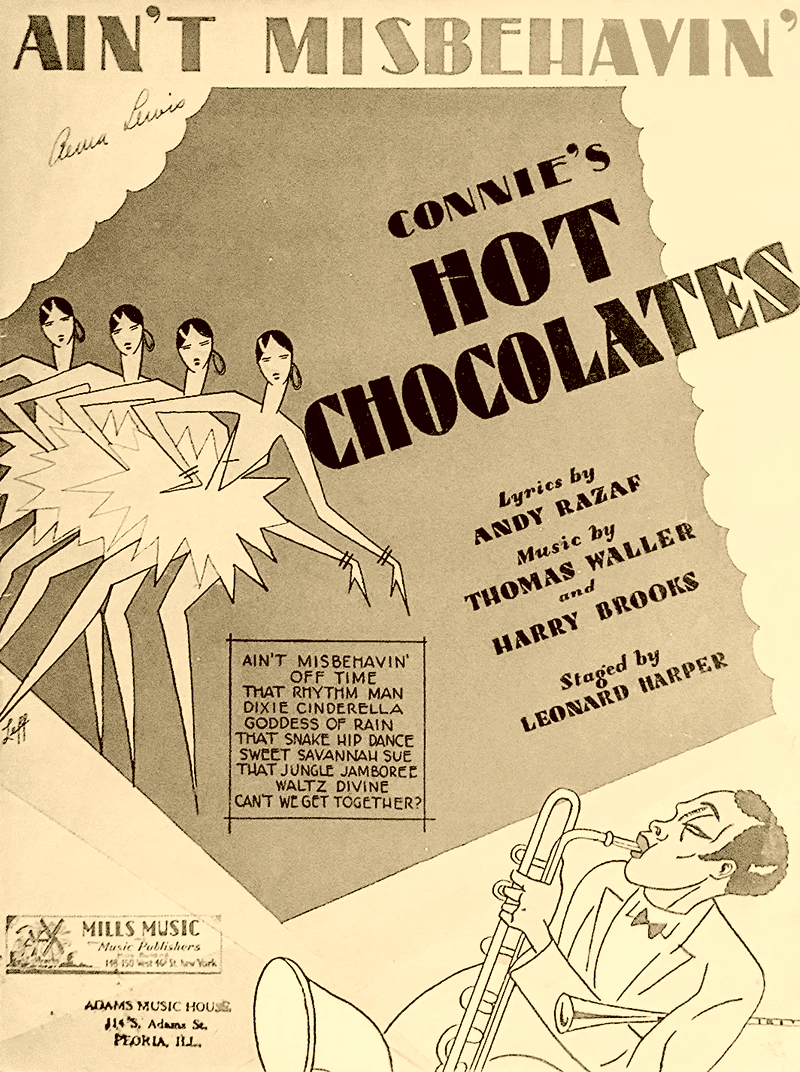
1979
But Never Jam Today
Bert Keyes (Music), Vinnette Carroll (Book, Director)
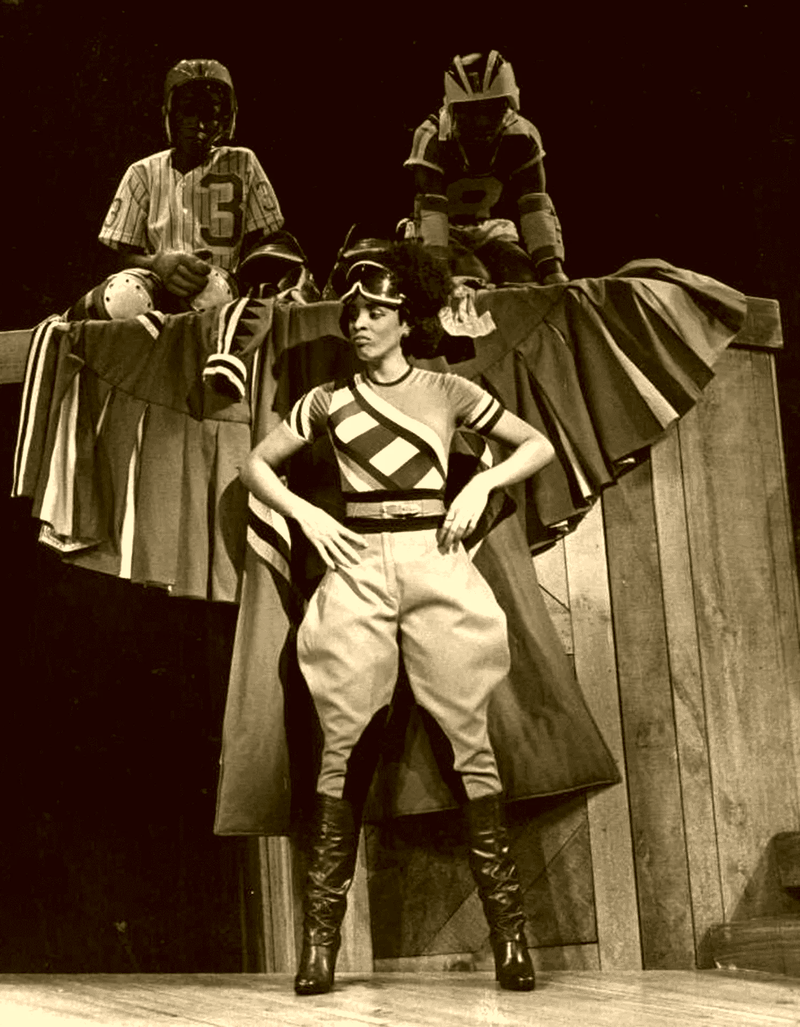
31 July – 5 August, 1979
A musical based on the works of Lewis Carroll, with a loose focus on Alice in Wonderland.
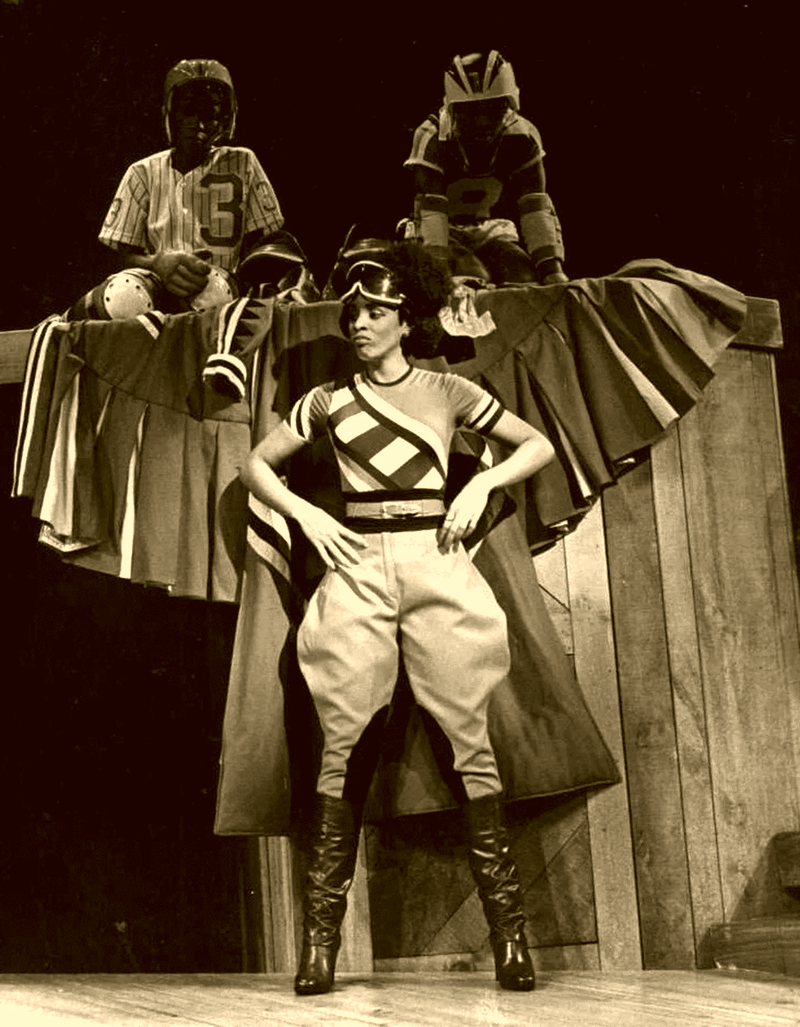
1924
Andre Charlot’s Revue
Noble Sissle (Lyrics), Eubie Blake (Music)
9 January – 20 September, 1924
The Revue, produced in New York by The Selwyns, was a compilation of new material with audience favorites from past London shows. Both Noël Coward and Ivor Novello songs were featured, as well as works by London songwriters Philip Braham, Ronald Jeans, Douglas Furber, and the American team of Noble Sissle and Eubie Blake. (Source: NYPL)
1987
Asinamali!
Mbogeni Ngema (Playwright)
15 April – 17 May, 1987
In an apartheid-era prison, black inmates share their stories of persecution and rebellion.
1999
It Ain’t Nothin’ But the Blues
Ron Taylor (Source Material, Playwright), Lita Gaithers (Playwright), Charles Bevel (Book, Playwright)
26 April, 1999 – 9 January, 2000
It Ain’t Nothin’ But the Blues is a musical revue that traces the history of blues music with more than three dozen songs. Ron Taylor acted as singing narrator. (Source: Wikipedia).
1923
How Come?
Eddie Hunter (Book), Ben Harris (Music, Lyrics)
16 April – 19 May, 1923
A song and dance show that attempted to imitate the success of Shuffle Along. Centered around the thin plot of the embezzlement of funds from a business venture by one of the partners.
2021
Chicken & Biscuits
Douglas Lyons (Playwright)
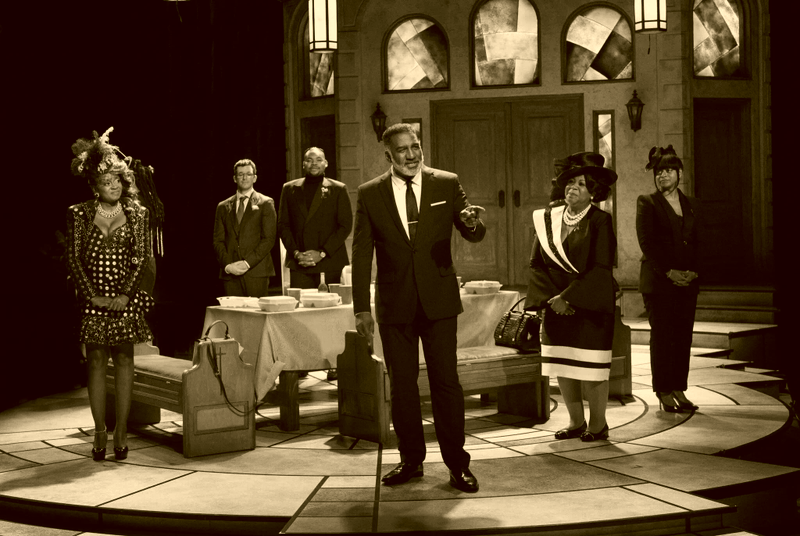
23 September, 2021 – 28 November
Rivaling sisters Baneatta and Beverly are burying their father, but it’s the non-stop family drama that might be the death of them. And when a family secret reveals itself at the church altar, things really go crazy…
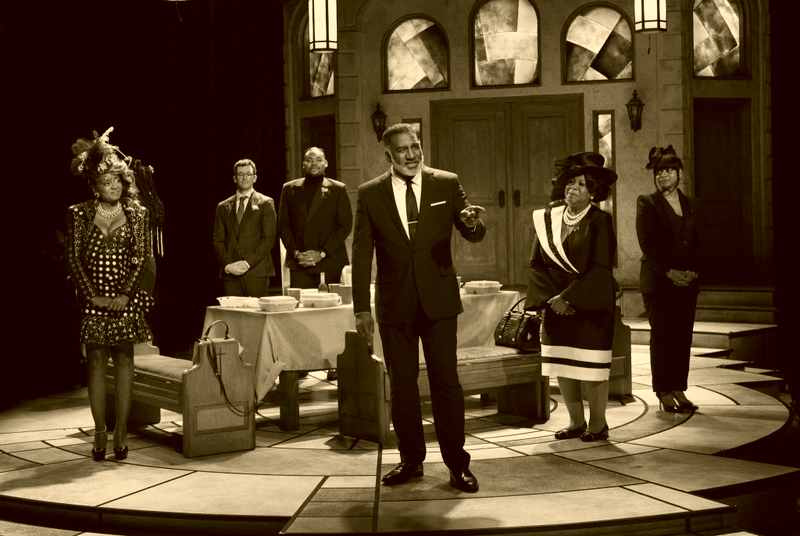
1899
The Sons of Ham
Jesse A. Shipp (Book), Will Marion Cook (Music)
1899
A Williams and Walker musical (their first on Broadway). Two bums, played by Williams & Walker, are mistaken for twin brothers who are heirs to a fortune.
1976
Your Arms Too Short to Box With God
Micki Grant (Music, Lyrics), Vinnette Carroll (Book, Director), Alex Bradford (Playwright)
22 December, 1976 – 1 January, 1978
Your Arms Too Short to Box with God: A Soaring Celebration in Song and Dance is a Broadway musical based on the Biblical Book of Matthew, with music and lyrics by Alex Bradford and a book by Vinnette Carroll, who also directed. Micki Grant was credited for “additional music and lyrics.” (Source: Wikipedia)
1938
Big White Fog
Theodore Ward (Playwright)
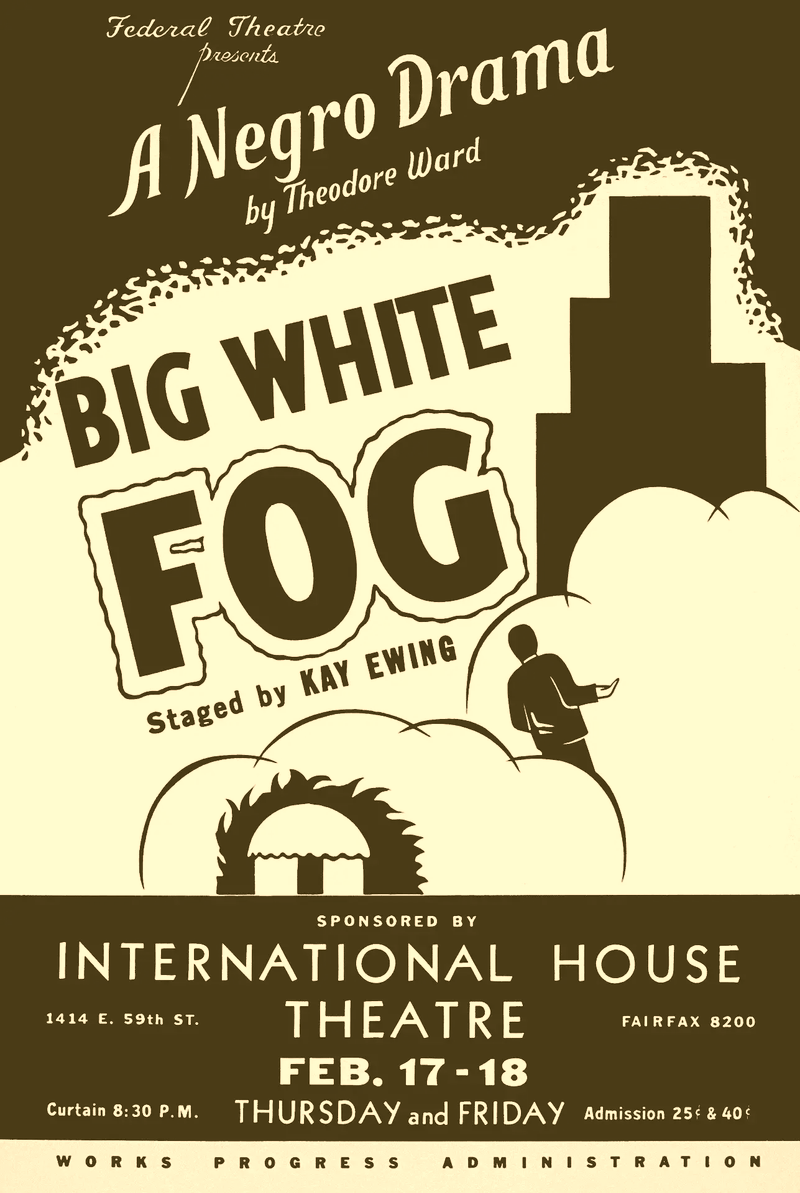
22 October, 1940 (64 performances)
Originally produced by the Federal Theatre Project in Chicago, “the play re-opened Off-Broadway in 1940 at Harlem's Lincoln Theatre as the inaugural production of Ward's new collaborative project, the Negro Playwrights Company, a theatrical organization born out of the burgeoning culture of the Harlem Renaissance and featuring such up-and-comers as Wright, Paul Robeson, Langston Hughes, Powell Lindsay, and Edna Thomas among others. Although both critics and Ward's contemporaries celebrated the work for its somber realism and politically relevant tone, the general public disapproved of its heavy-handed leftist rhetoric and, as a result, Big White Fog closed after only sixty-four performances, taking the still fledgling Negro Playwrights Company down in its wake.” (Source: Wikipedia) “The play follows the fictional Mason family across three generations between 1922 and 1933. Half of the family supports a return to Africa and Garveyism, while the other half of the family seeks the American Dream. Big White Fog demonstrates the internal black tensions of the 1920s by following the Masons, a black family living in a rented house in Chicago. The residents consist of Victor Mason, his wife Ella, their son Lester, Victor's brother Percy, and Ella's brother-in-law Dan. Lester has received a college scholarship, Percy is returning home from military service, and Dan is a landlord. Their situation slowly spirals downward, with Lester losing his scholarship because he is black, and when the Great Depression hits, the family faces eviction. Victor, in his disillusionment, turns to Garveyism, and plans to immigrate to Africa. Lester begins to support a Communist revolution. Dan remains committed to the American Dream.” (Source: Wikipedia)
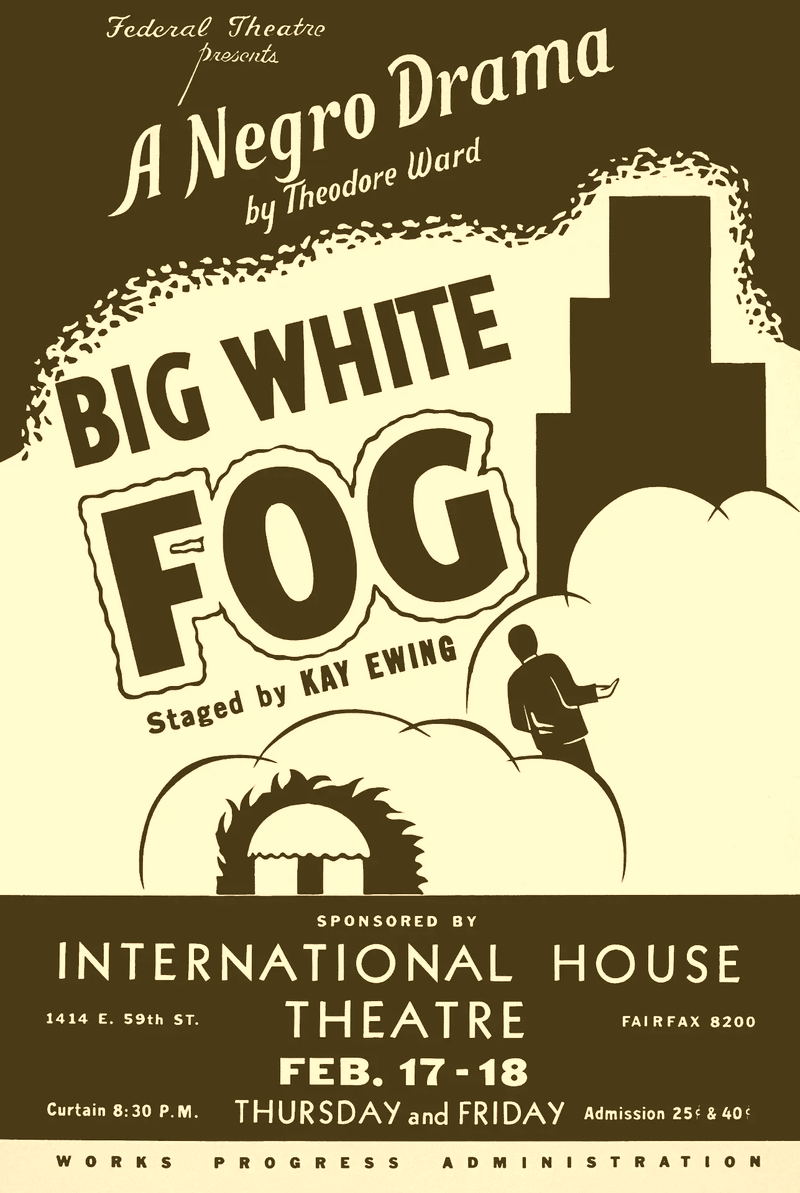
2008
Passing Strange
Stew (Book, Lyrics, Composition)

28 February – 20 July, 2008
Passing Strange is a comedy-drama rock musical about a young African American’s artistic journey of self-discovery in Europe, with strong elements of philosophical existentialism, metafiction, and the artistic journey. The Narrator introduces the African-American male protagonist as "the Youth"—whom the Narrator also refers to as the "hero" or "pilgrim". In a late 1970s South Central Los Angeles middle-class neighborhood, the Youth begins searching for "the real" during his teenaged years, having just briefly turned to Zen Buddhism in defiance of his single mother’s conservative Christian faith. The Youth saves money to travel to Europe where he hopes to truly develop as a musical artist, despite his mother and community's disapproval.

1998
Patti LaBelle on Broadway
James “Budd” Ellison (Music Director), Patti La Belle
13 – 25 January, 1998
Grammy Award winner Patti LaBelle returns to Broadway for a concert of her greatest hits, old favorites, and selections from her latest album, Flame.
2021
Pass Over
Antoinette Chinonye Nwandu (Playwright)

22 August – 10 October, 2021
The first play to open on Broadway following the pandemic shutdown, Pass Over played its final performance October 10. Moses and Kitch talk smack, pass the time, and hope that maybe today will be different. As they dream of their promised land, a stranger wanders into their space and disrupts their plans.

1972
Don’t Play Us Cheap!
Melvin Van Peebles (Playwright)
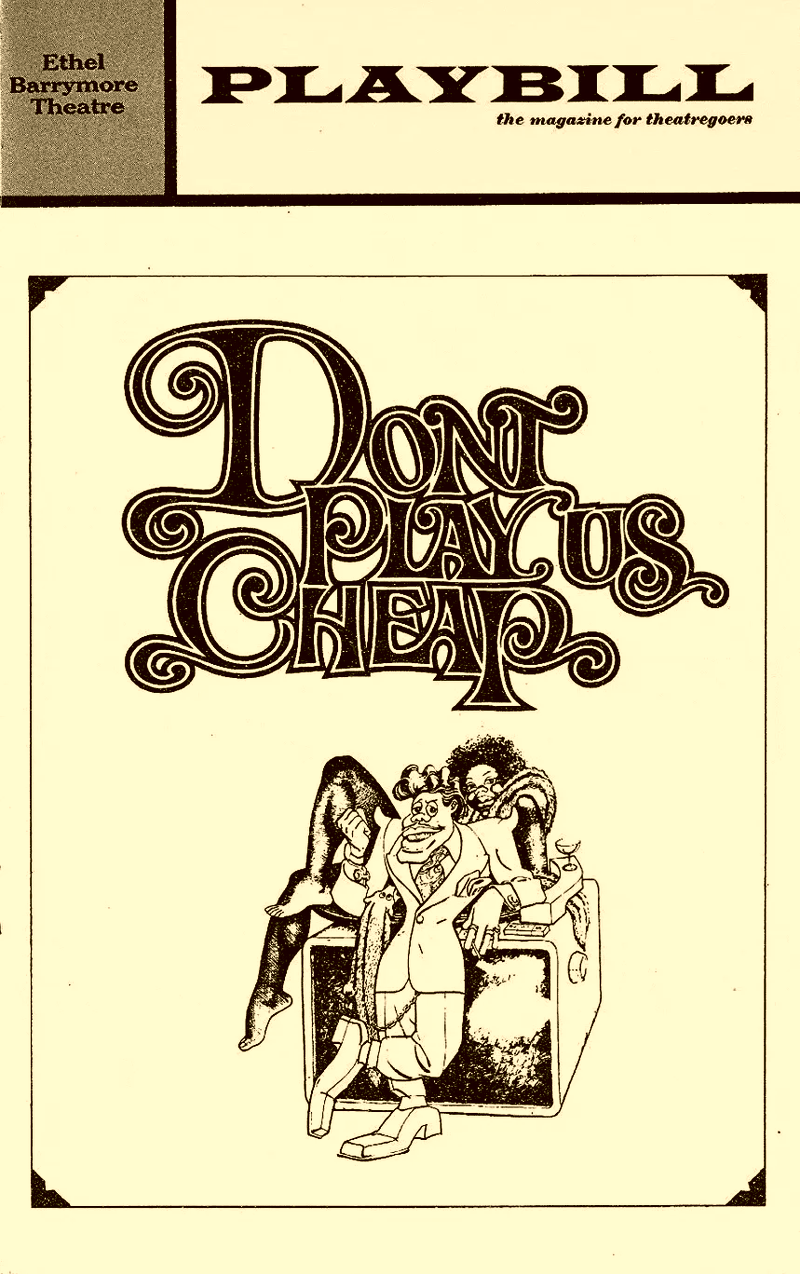
12 May – 30 September, 1972
Trinity and Brother Dave are a pair of devil-bats looking for a party to break up. They come across a party in Harlem. Although Trinity is eager, Dave warns him not to touch it: “When black folks throw a party, they don't play!” Trinity joins the party anyway, already in progress. Dave persuades Trinity to try to break up the party before midnight, when they will both be turned into the thing that they pretend to be: human beings. Was later adapted into a staged film (1973).
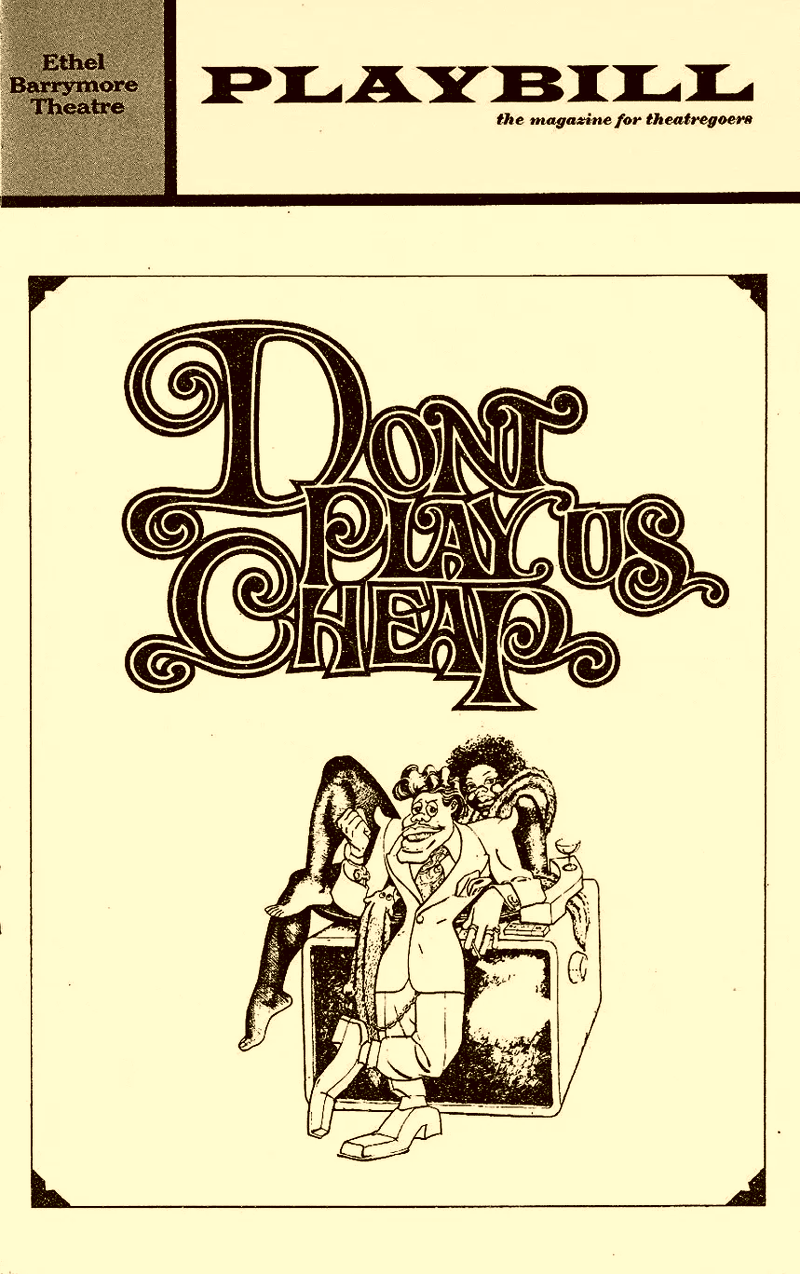
1946
Beggar’s Holiday
Duke Ellington (Music, Lyrics)
26 December, 1946 – 29 March, 1947
An updated version of The Beggar's Opera by John Gay, it focuses on a corrupt world inhabited by rakish mobsters and their double crossing gangs, raffish madams and their dissolute whores, panhandlers and street people as they conduct their dirty business, ply their trade, and struggle to survive in brothels, shanty towns, and prisons. (Source: Wikipedia)
1964
The Sign in Sidney Brustein’s Window
Lorraine Hansbury (Playwright)
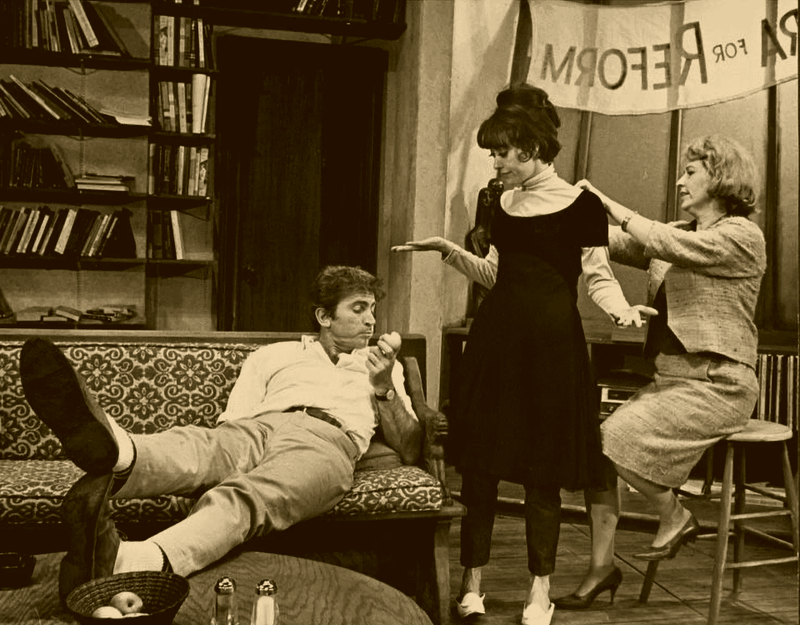
15 October, 1964 – 10 January, 1965
The Sign in Sidney Brustein's Window depicts Sidney, an intellectual writer and his wife, Iris, who are in a difficult marriage. Sidney struggles through life in New York City's Greenwich Village neighborhood as an unsuccessful artist. His ideals cause him to avoid politics and its corruption while facing a painful home life. Iris is a struggling actress who, during the course of the play, leaves her antagonistic husband to enter the television scene. Both Sidney and Iris attack each other's self-confidence through extensive dialogue, despite their affection for each other. Alton Scales is an African-American activist and Sidney's friend who falls in love with Iris's beautiful sister Gloria, a supposed international model. He is able to persuade Sidney to support the candidacy of Wally O’Hara despite Sidney's initial refusal to incorporate politics into his newly established artistic newspaper. Wally is a local reform politician who is appalled by the extensive drug use in Greenwich Village and the surrounding area. Sidney agrees to support him but later learns of O’Hara’s corruption; afterwards Sidney harbors significant hatred for the reform politician. Gloria's idealistic image is shattered when Alton learns that she is a prostitute and not an international model as she and her sister Iris had insisted. Wrought with anguish at the idea of his beloved being used as a commodity, and tying it to the same ideology used to justify the African slave trade (to which he traces his roots), Alton leaves Gloria. In an act of desperation and shame, she commits suicide. Attributing Gloria's suicide to the campaigning slogans of Wally, Sidney develops a position in opposition to the politician. This creates problems that reconcile Sidney and Iris. The play ends with a scene of Sidney and Iris in a devastated embrace at the loss of Gloria. Iris indicates with her last lines of the play that she wants to come home. Sidney makes a silent agreement that they will figure everything out. Despite the constant dark bickering that the two had throughout the play, it closes while the two are interlocked as the sun rises. (Source: Wikipedia)
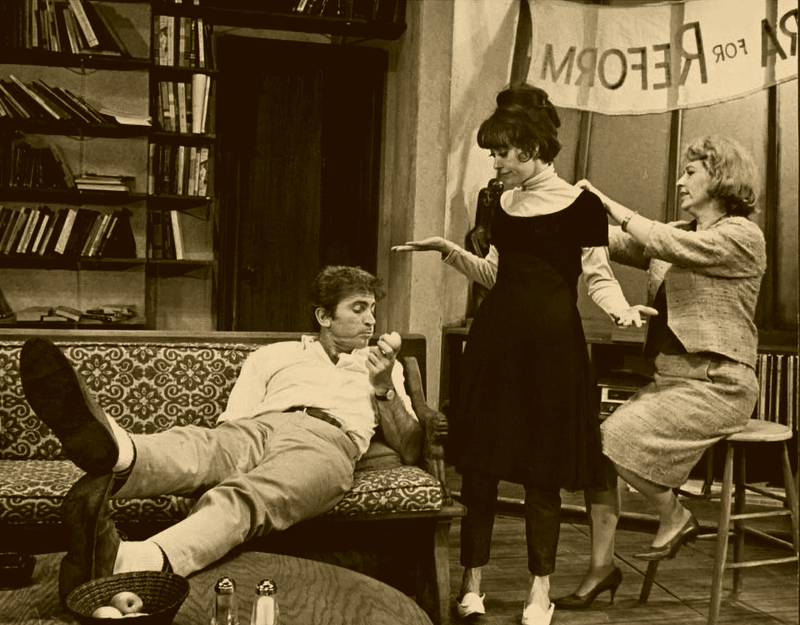
1969
No Place to Be Somebody
Charles Gordone (Playwright)
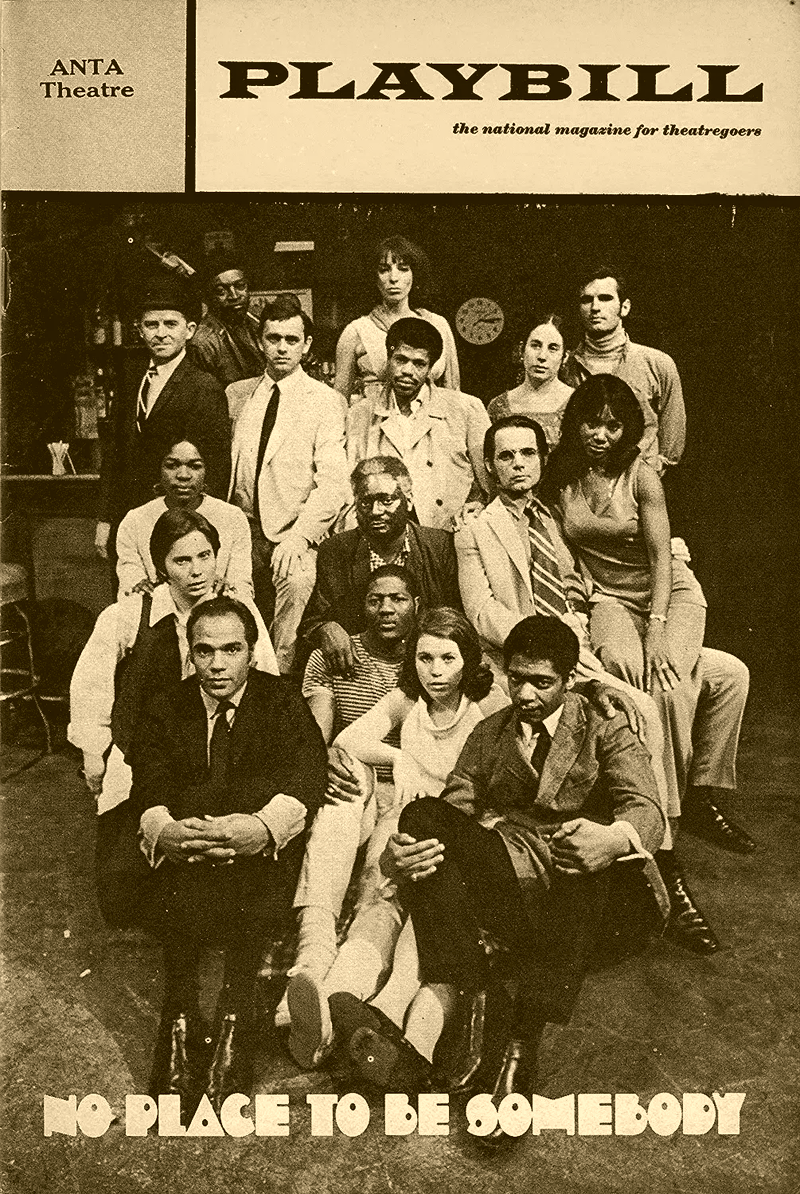
30 December, 1969 – 10 January, 1970
Written over the course of seven years, the play explores racial tensions in a Civil Rights-era story about a black bartender who tries to outsmart a white mobster syndicate. In his final speech, in June 1995, delivered at the Museum of the American West in Los Angeles, Gordone described the play as being “about country folk who had migrated to the big city, seeking the urban myth of success, only to find disappointment, despair, and death.” No Place to Be Somebody is the first play by an African-American to win the Pulitzer Prize for Drama as well as the first play to win during an off-broadway run.
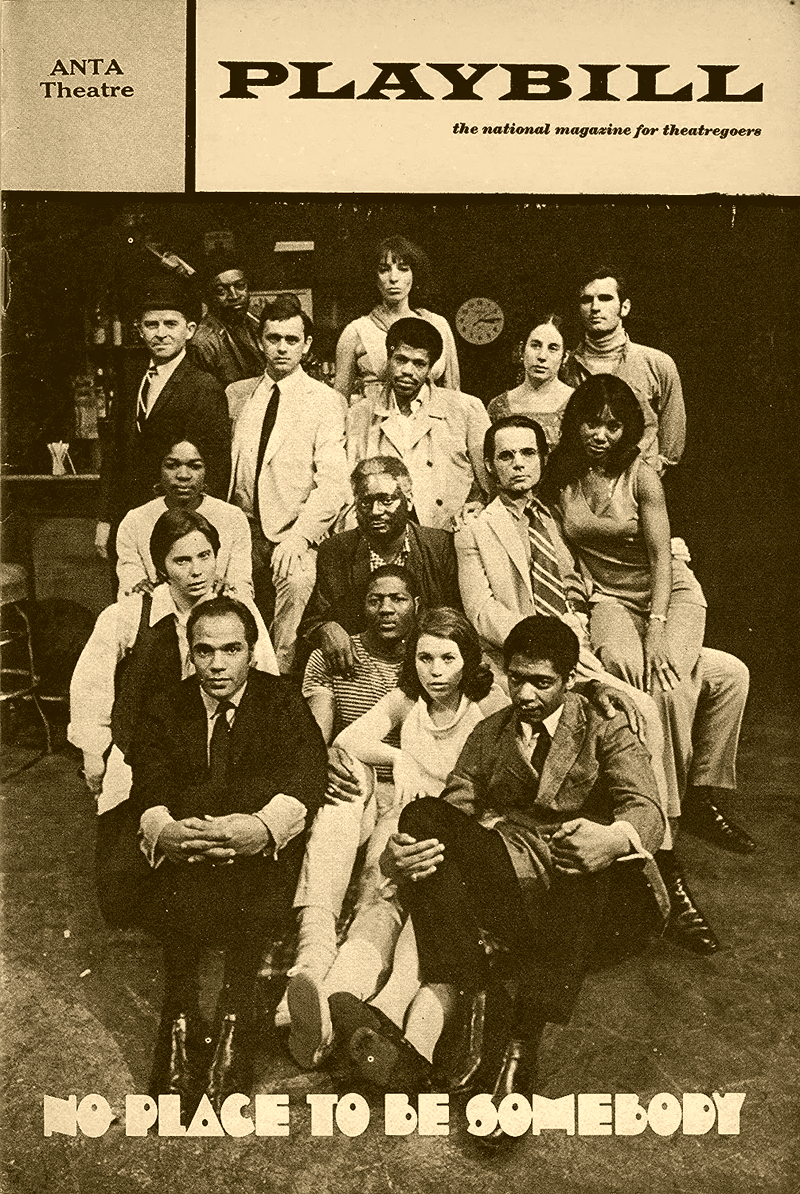
1911
His Honor: the Barber
James Brymm (Music), James Burris (Lyrics), Chris Smith (Lyrics), Edwin Hanaford (Book)
8 – 20 May, 1911
A musical comedy in three acts. Ada Overton Walker sang and danced "Golly, Ain't I Wicked" and "Porto Rico" and in male impersonation performed "That's Why They Call Me Shine" to great acclaim.
1931
The Green Pastures
Hall Johnson (Music Director)
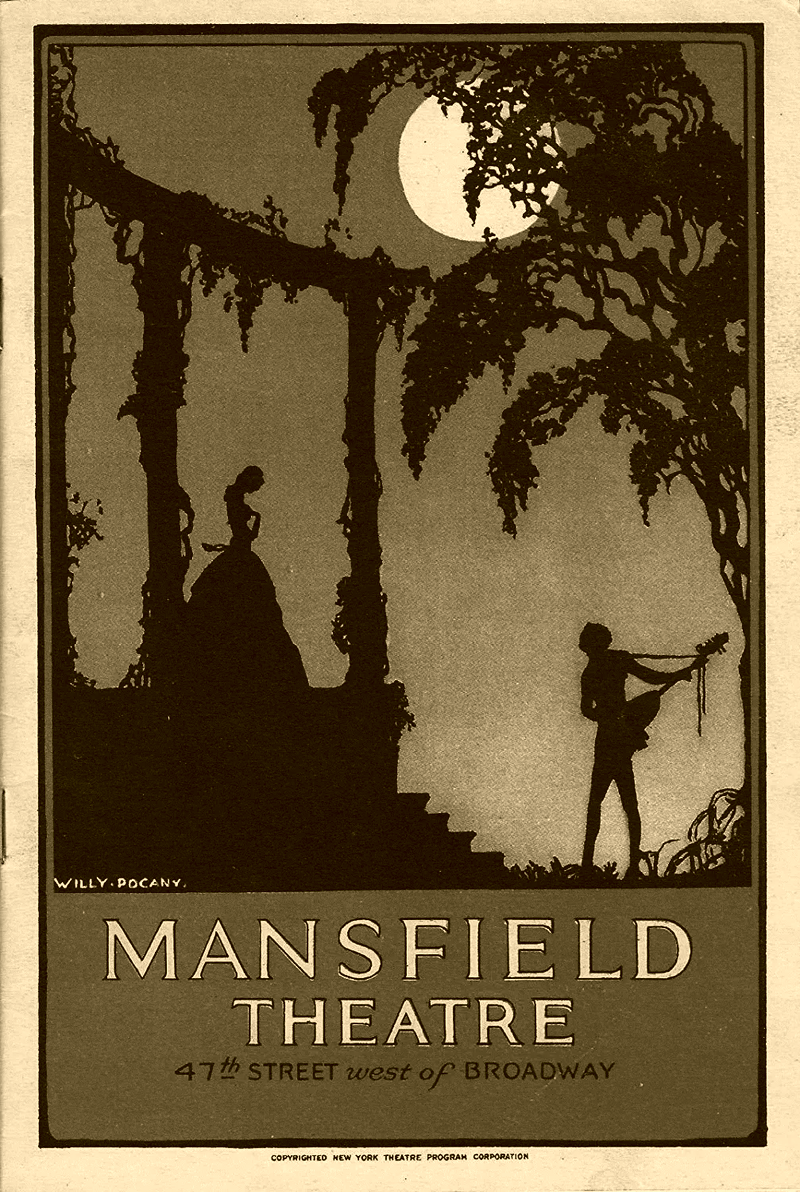
26 February, 1930 – 29 August, 1931
The play portrays episodes from the Old Testament as seen through the eyes of a young African-American child in the Depression-era South, who interprets The Bible in terms familiar to her. Following Bradford's lead, Connelly (a white man) set the biblical stories in New Orleans and in an all-black context. He diverged from Bradford's work, however, in enlarging the role of the character "De Lawd" (God), played on stage by Richard B. Harrison (1864–1935). The Green Pastures also featured numerous African-American spirituals arranged by Hall Johnson and performed by The Hall Johnson Choir. The cast also included singer Mabel Ridley. (Source: Wikipedia)
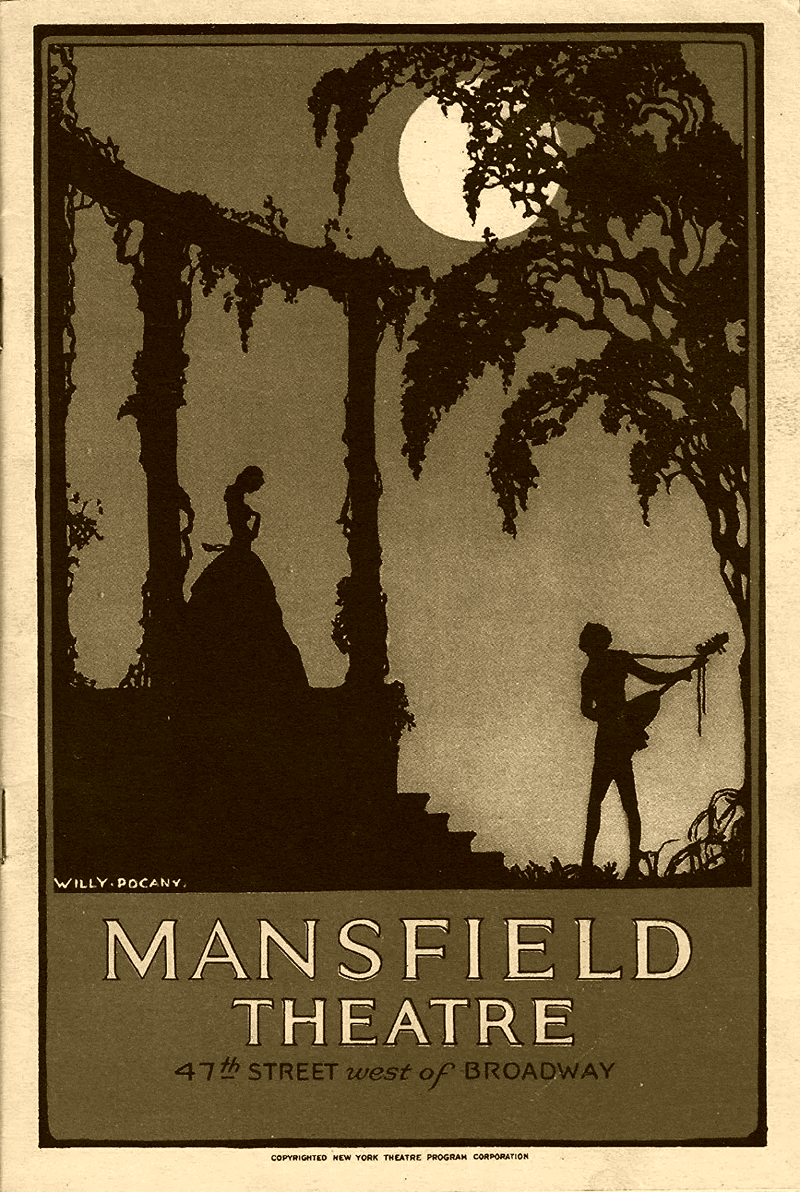
2007
Radio Golf
August Wilson (Playwright)
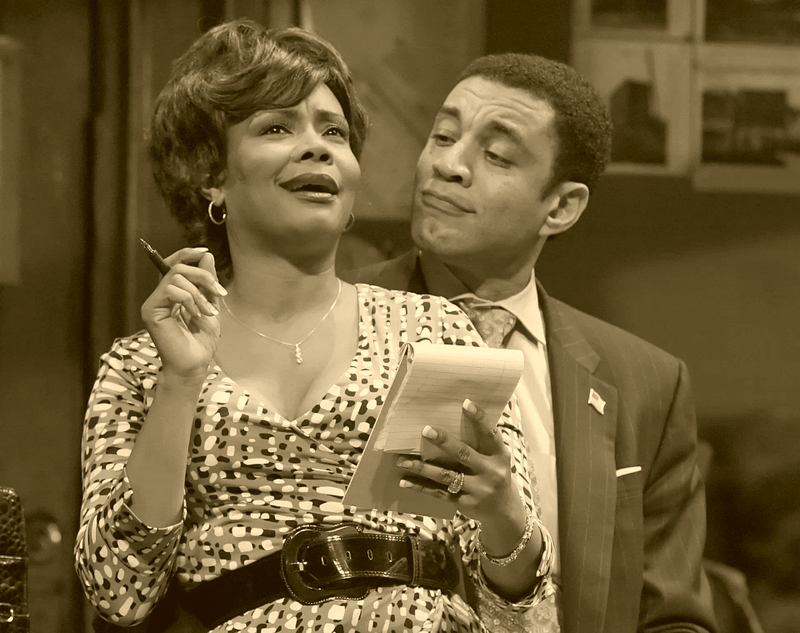
8 May – 1 July, 2007
The tenth and final play in August Wilson’s Pittsburgh Cycle, Radio Golf follows a black man named Harmond Wilks on his quest to revive his childhood neighborhood and become the first black mayor of Pittsburgh. Wilks, his wife Mame, and his best friend Roosevelt, have planned a redevelopment project that will bring a new high-rise apartment building and chain-stores to the old and devastated Hill District. Initially, Wilks envisions this as a great plan to restore his childhood home, but as the play progresses and he meets characters from the past (Sterling Johnson and Elder Joseph Barlow), his eyes are opened to the possibility that what he thought would be a gift to the future might actually be hurting the district’s history. Harmond begins to fundamentally question his intentions, while Mame and Roosevelt try to keep him on the path he started, with little consideration for the ghosts of the past. (Source: StageAgent)
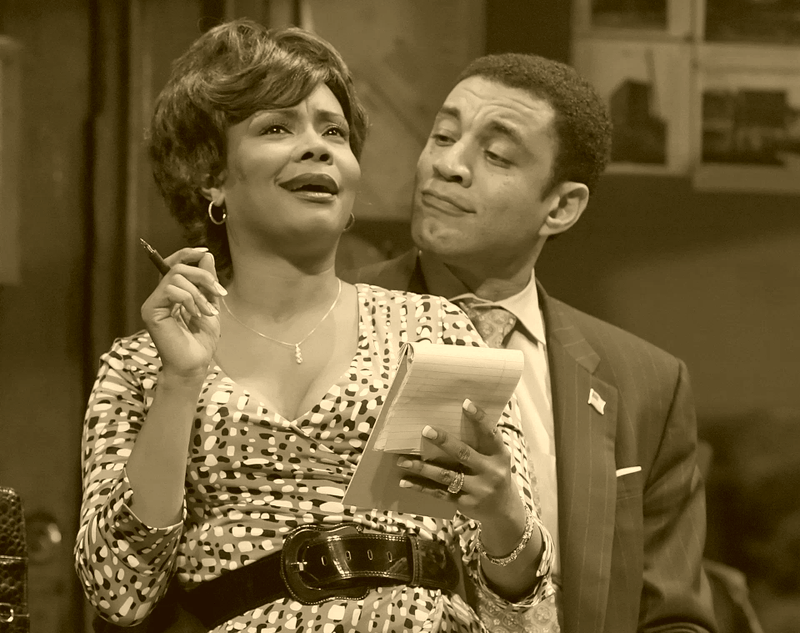
1925
Lucky Sambo
Porter Grainger (Book, Music, Lyrics), Freddie Johnson (Book, Music, Lyrics)
6 June – 13 June, 1925
Musical farce comedy wherein Sambo Jenkins and Rufus Johnson, two porters at a local hotel, are tricked into buying stock in a phony oil-drilling scam by Jim Nightingale, after oil is discovered in some of the slum dwellings in the all-black section of the town. The swindle is eventually uncovered with the help of a detective, and the swindler and his cohorts are jailed. However, the tables are turned when oil is really discovered on the land. The oil swindle plot is combined with a love story involving June Whitby, the daughter of the hotel proprietors, and Jack Stafford, which ends happily for the couple. The musical ends with a celebration of the discovery of oil and the forthcoming marriage, by a floorshow at a midnight cabaret, where a number of specialty acts are performed.
1983
Amen Corner
1 November – 4 December, 1983
A Musical by Peter Udell and Phillip Rose based on The Amen Corner by James Baldwin. The score consists of mostly gospel-inspired music.
1950
The Barrier
Langston Hughes (Playwright)
2 – 4 November, 1950
2002
One Mo’ Time
Vernel Bagneris (Concept, Book)
6 – 27 March, 2002
One Mo' Time is a musical revue conceived by Vernel Bagneris. It is an evening of 1920s African-American vaudeville, set in the Lyric Theatre in New Orleans in 1926. (Source: Wikipedia)
2016
Shuffle Along Or The Making of the Musical Sensation of 1921 and All That Followed
Noble Sissie (Lyrics), Eubie Blake (Music), George C. Wolfe (Playwright)
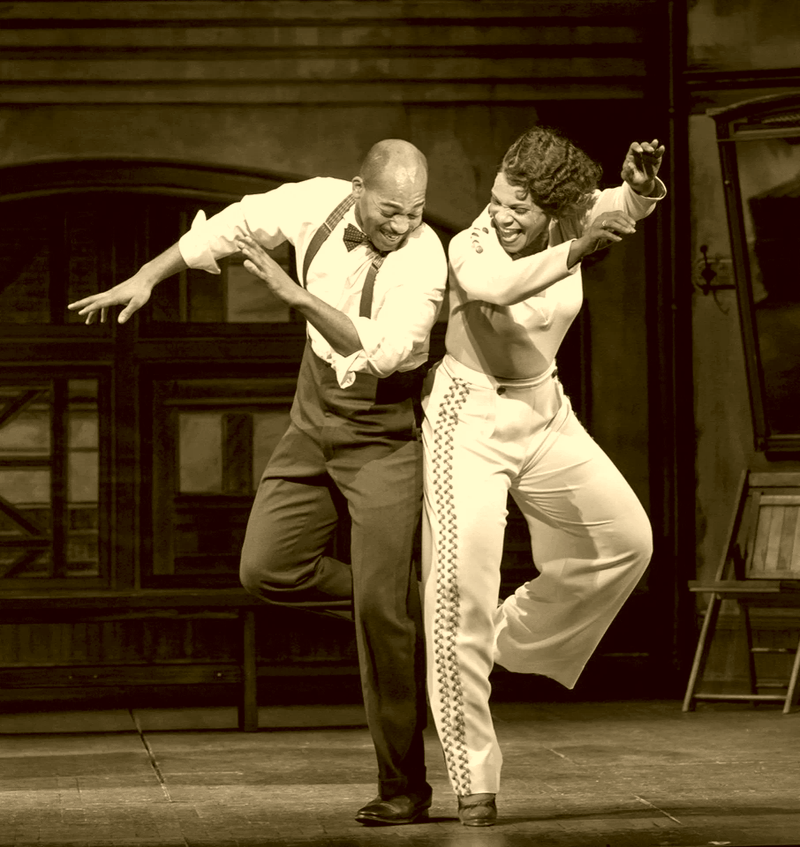
28 April, 2016 – 24 July, 2016
F. E. Miller and his vaudeville partner Aubrey Lyles conceive the show that was to become Shuffle Along. They meet fellow vaudevillians Noble Sissle and Eubie Blake and decide to team up to create the all-black production. They tour the show, playing one-night stands in Maryland, Washington, D.C., and Pennsylvania, packing the cast into cheap motels and selling their personal possessions to pay for train fare. A romance develops between the married Eubie Blake and the show's leading lady, Lottie Gee, a veteran vaudeville performer who finally got her chance to star in the show. The creatives discuss whether or not to include a love song and embrace between the two black leads, a controversial experiment that had been received with tar and feathers in the few instances where it had been tried before; fortunately, the audiences accept it. Arriving in New York during the Depression of 1920-1, Shuffle Along is deep in debt and struggles to raise money. It faces stiff competition on Broadway in a season that includes surefire hits from Florenz Ziegfeld Jr.. and George White and it was relegated to a remote theater on West 63rd Street with no orchestra pit. Opening night is a hit! Shuffle Along becomes a long-running success, with popular songs like “I’m Just Wild About Harry.” The partners do not have the same success during the following years and argue about royalties. Lyles announces that he is moving to Africa, and the creators go their separate ways. The romance between Blake and Gee ends. Everyone wants to be remembered for having done something important, but over the decades, the show fades into obscurity. (Soucre: Wikipedia)
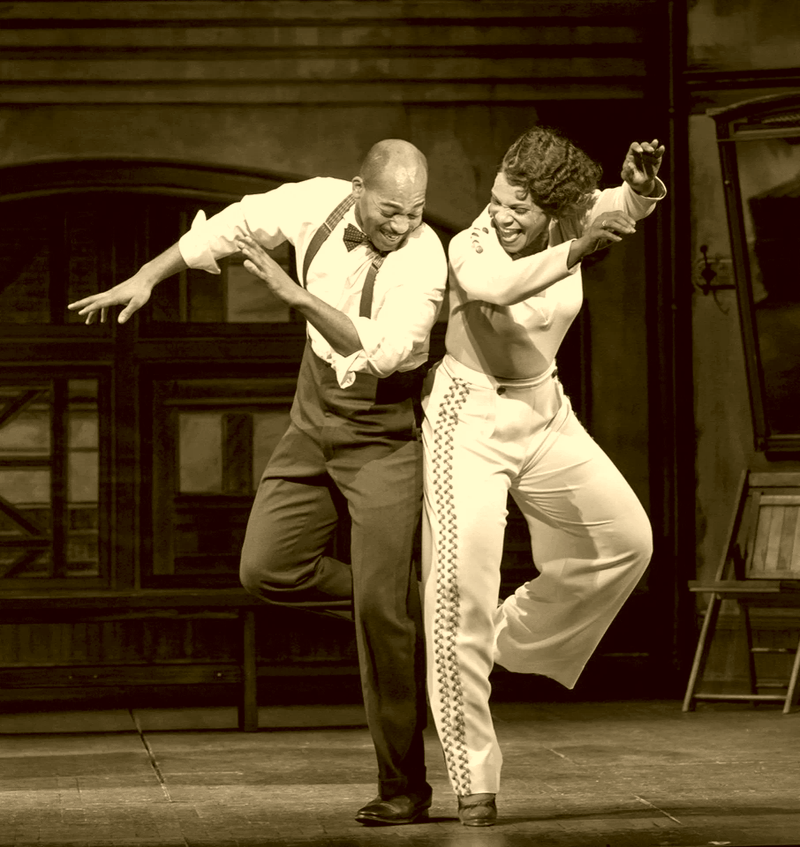
1973
The River Niger
Joseph A. Walker (Playwright)
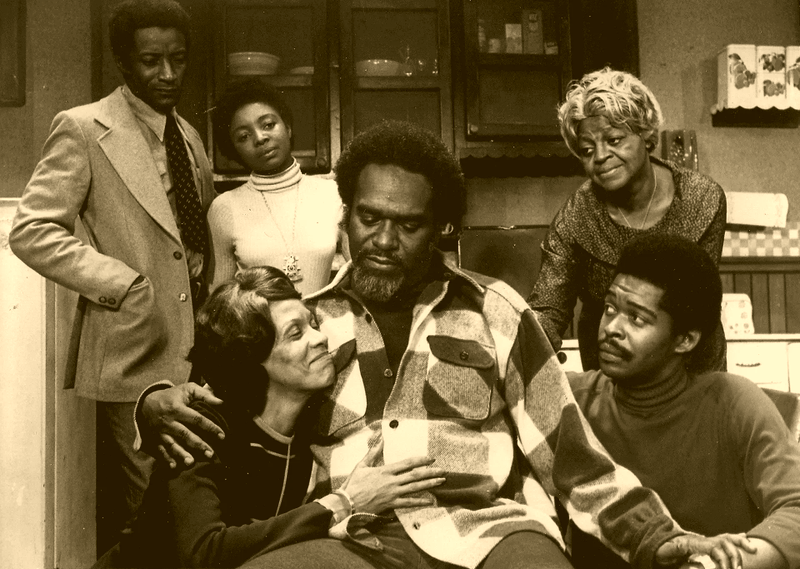
23 March – 25 November, 1973
Johnny Williams is a working house painter and amateur poet who is trying to live in a contemporary ghetto in Watts, Los Angeles, California. Though he is trying to provide for his almost stable family, times are hard. Johnny's main pride and joy, his son Jeff just returned from U.S. Air Force flight school, where he finally reveals that he flunked out, causing great disillusionment. This film follows Johnny's struggle and a few who try to help, including his physician friend Dr. Dudley Stanton, who purchases Johnny's poems while treating his ailing wife Mattie, whose cancer is recurring. When Johnny's son kills a local gang member, and the gang shoots a police officer, the situation escalates to a standoff with the police and another shootout in Johnny's house.
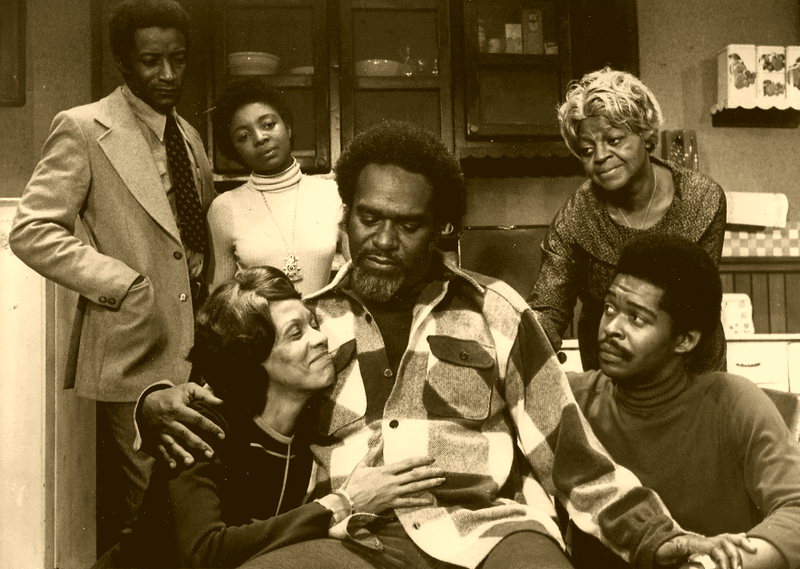
2021
Thoughts of a Colored Man
Keenan Scott II (Playwright)
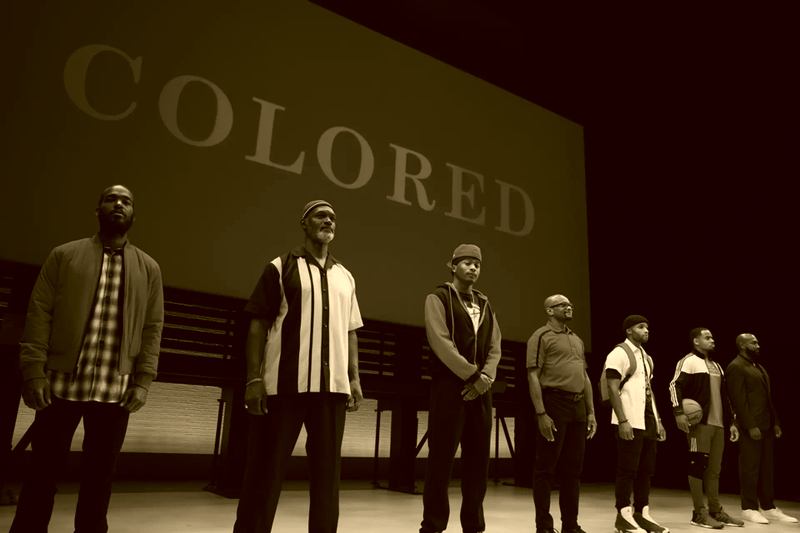
1 October 2021 – 20 February, 2022
As the sun rises on a single day in the pulsing heart of Brooklyn, seven Black men are about to discover the extraordinary—together. Thoughts of a Colored Man blends spoken word, slam poetry, rhythm, and humor into a daringly universal new play. Welcome to the vibrant inner life of being Black, proud, and thriving in the 21st century.
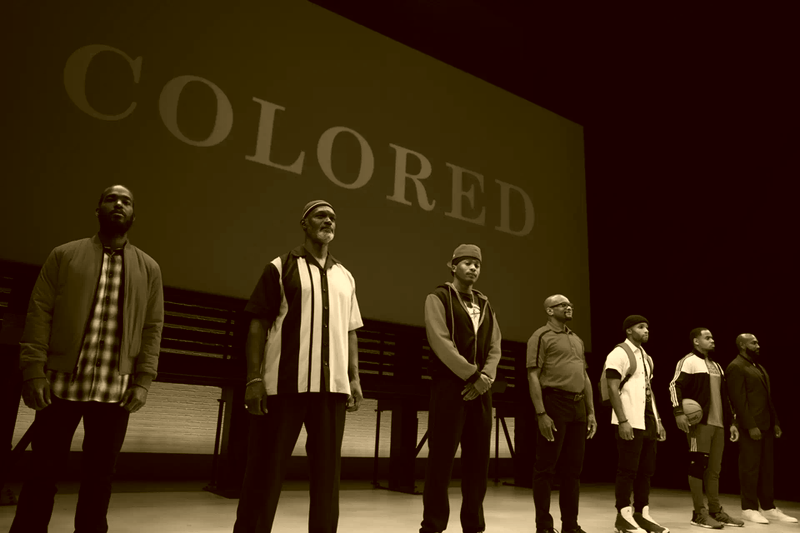
2013
Motown The Musical
Allen Henry McGrier (Lyrics, Composer), Alonzo Miller (Lyrics, Composer), Alfred W. Cleveland (Lyrics, Composer)
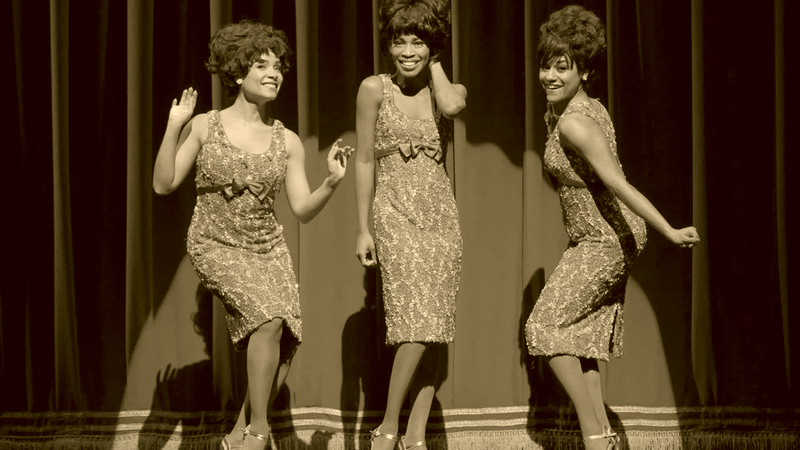
14 April, 2013 – 18 January, 2015
Motown The Musical tells the story of Berry Gordy and the founding of his musical empire, Motown Records, a label of legendary artists that would create a soundtrack that transformed America. On the eve of the 25thanniversary of Motown in 1983, Berry Gordy is looking back on his career.
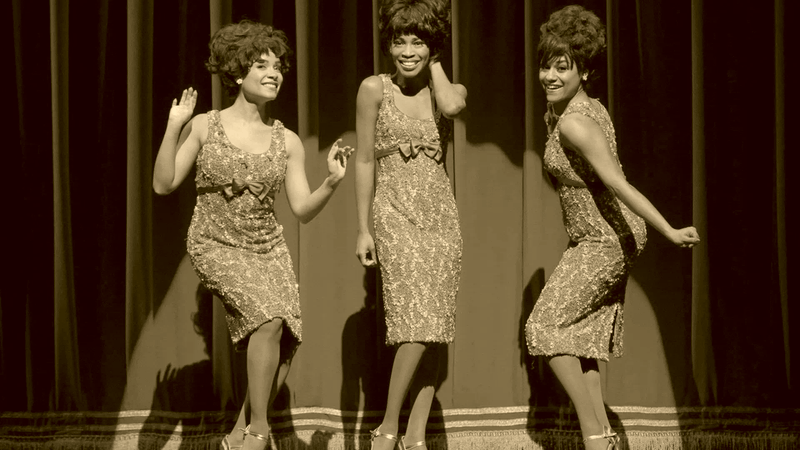
1898
Clorindy: The Origin of the Cakewalk
Paul Laurence Dunbar (Book, Lyrics), Will Marion Cook (Music)
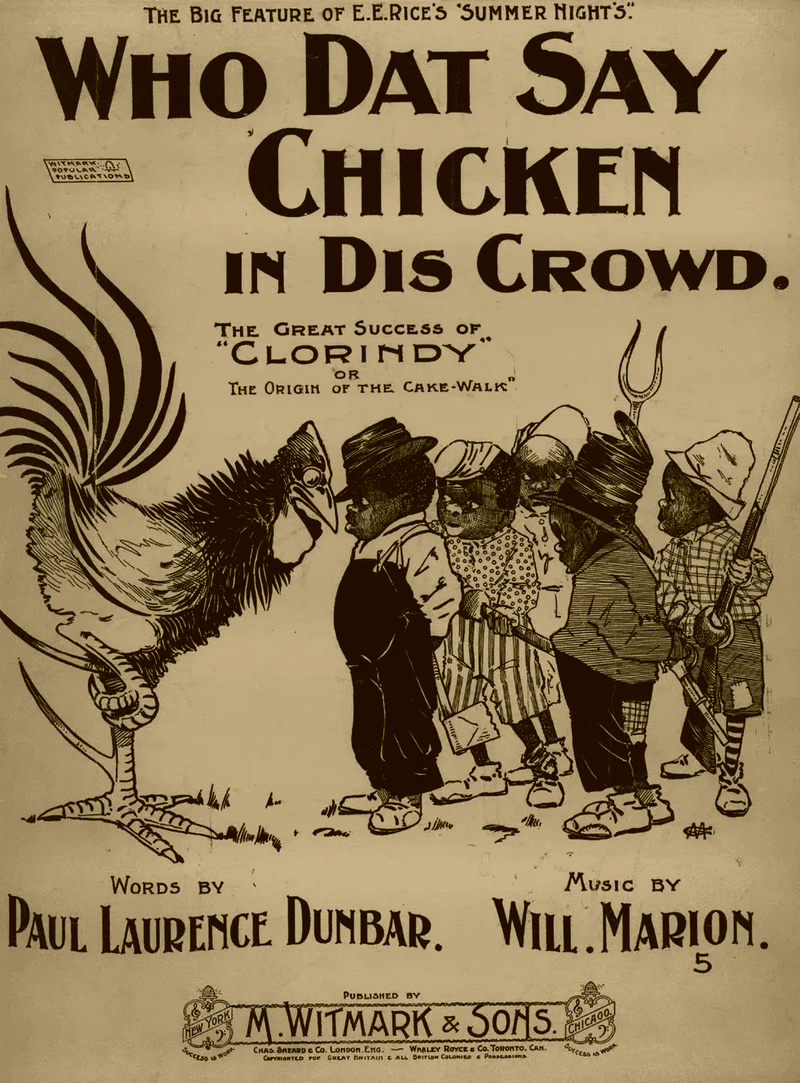
1898
A one-act comedy-musical that ran an hour-long and was the first all-black show to play in an upper class Broadway theater. The lyricist and librettist for this show was Paul Lawrence Dunbar who wrote (perhaps at Cook's insistence) in a dialect style. Cook managed to get Clorindy performed as an extended afterpiece at the Casino Roof Garden on Broadway. When the show began there were only 50 people in the rooftop audience but people coming out of the main show downstairs heard magnificent choral singing coming from the roof and rushed up to see who was performing. By the end of the opening chorus, the house was packed and the performers were given a 10-minute ovation.
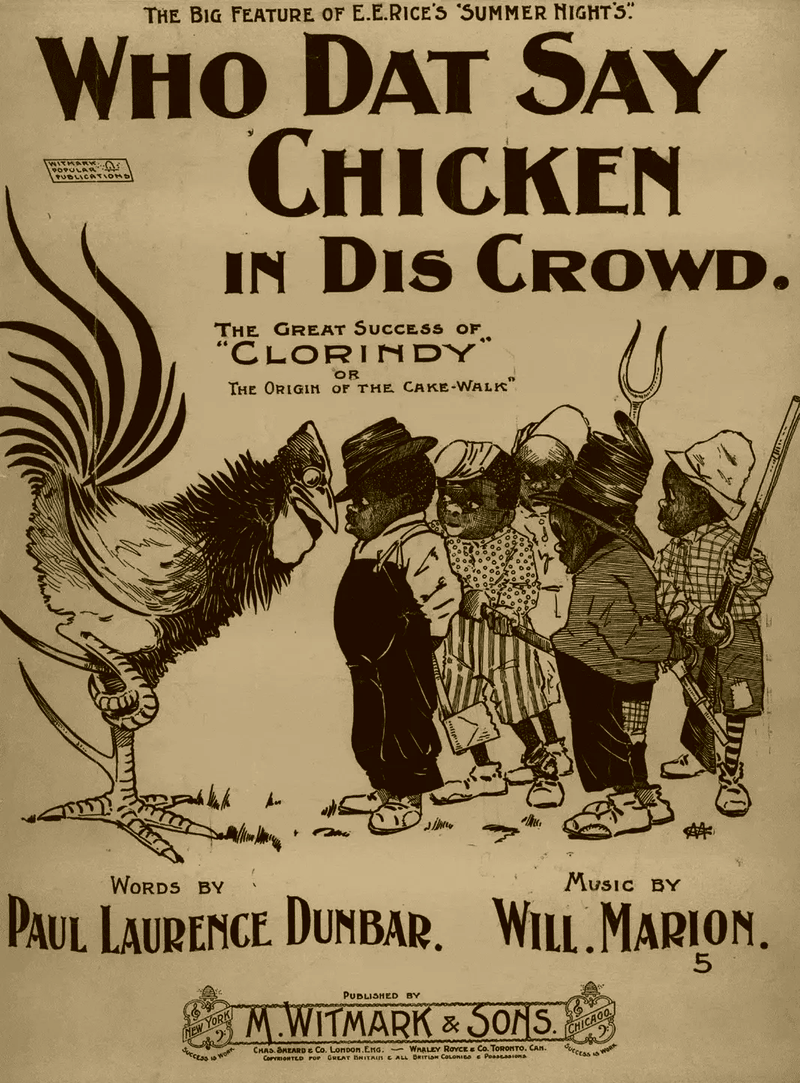
1921
Put and Take
Tim Brymn (Music, Lyrics), Perry Bradford (Music, Lyrics), Spencer Williams (Music, Lyrics), Irvin C. Miller (Book)
1921
A musical revue in 2 acts that was a reworking of Miller’s successful touring show Broadway Rastus. It was set in the Urban North. It attempted to avoid many minstrel stereotypes and was considered by some critics as being too “white.”
1980
The Dance Theater of Harlem
25 February – 8 March, 1980
1980
It’s So Nice To Be Civilized
Micki Grant (Music, Lyrics)
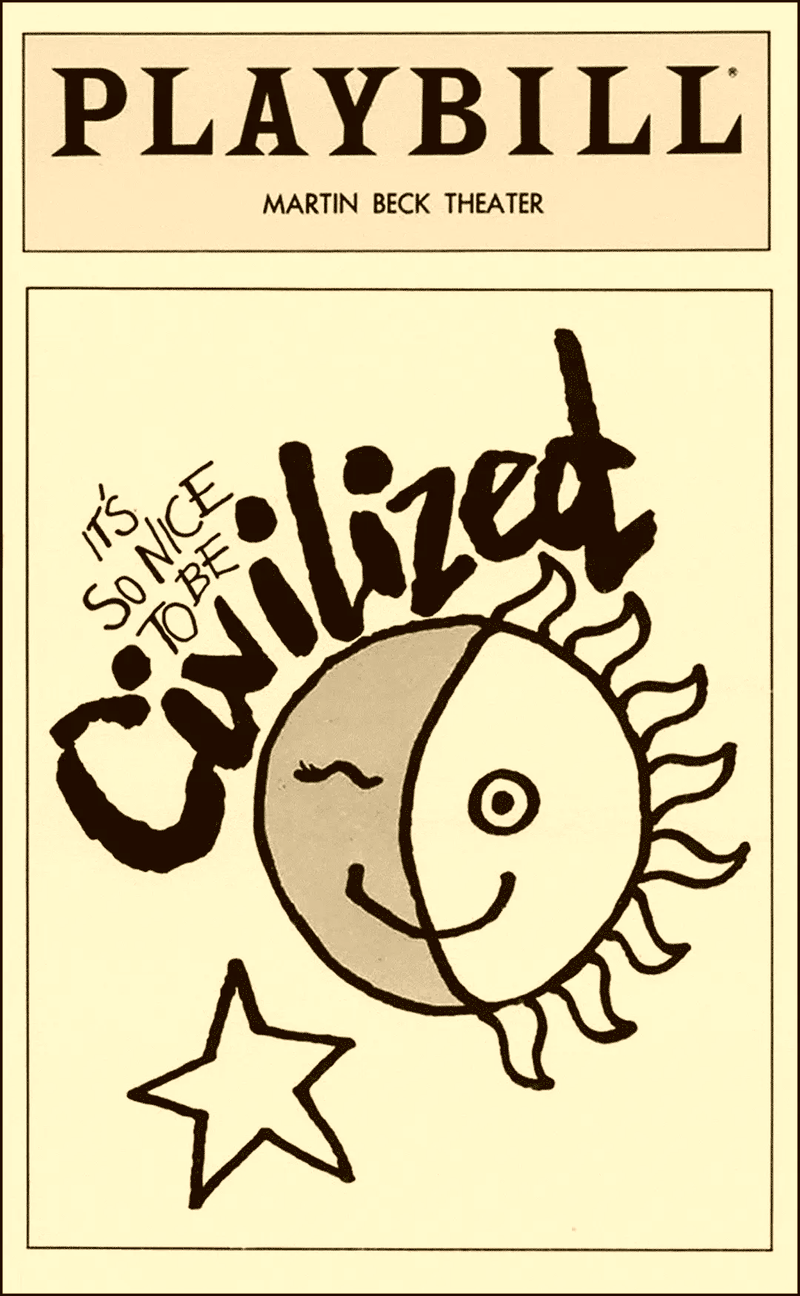
13 May – 8 June, 1980
A musical revue.
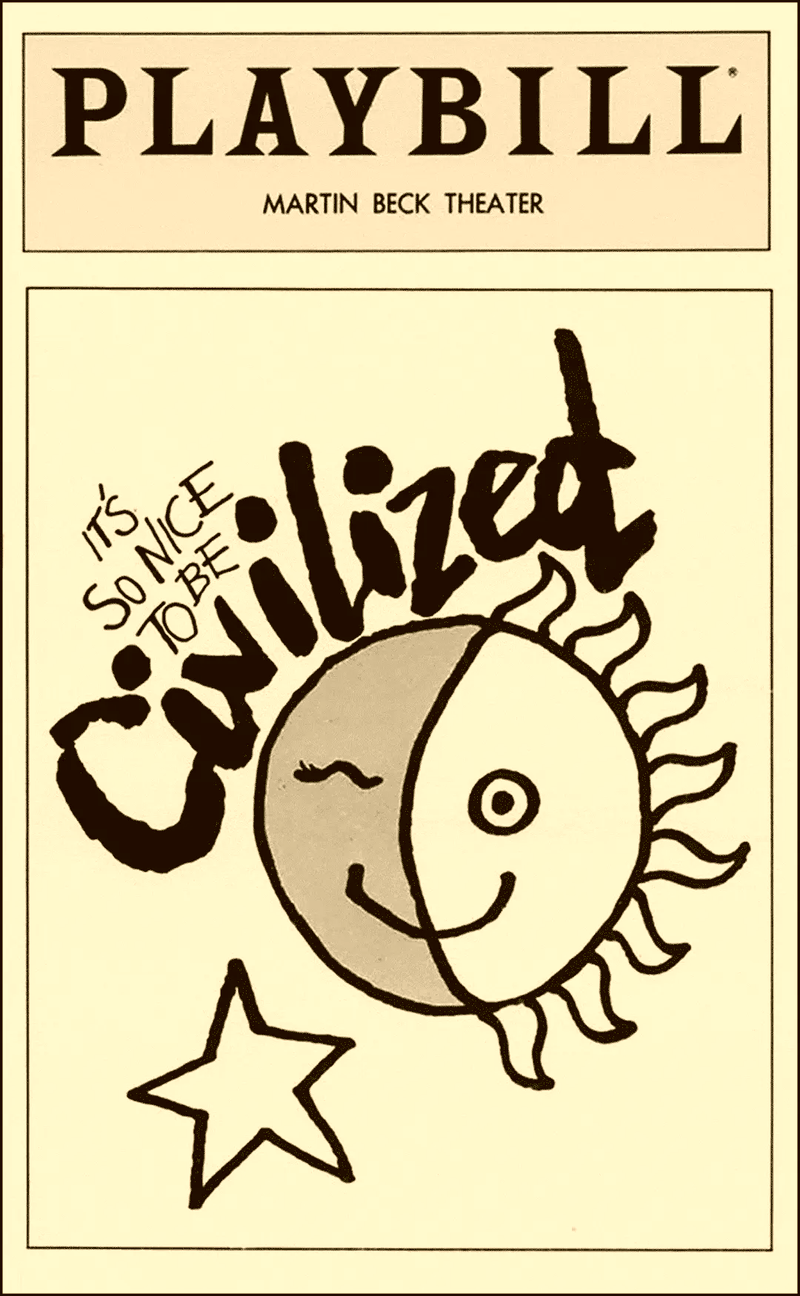
1928
Meek Mose
Frank WIilson (Playwright)
6 February, 1928
A play centered on a Black preacher who believes the Old Testament principle that the “meek shall inherit the earth.” Set in Texas, the play follows a group of “poor Negroes” who are forced to abandon their home for a harsh, inhabitable marsh because local white businessmen wish to erect a cotton gin on the Black community’s land. After much suffering and perseverance, Brother Mose, the pastor of the displaced community and his followers discover that the marsh is incredibly rich with oil deposits. This affirms their faith in the biblical sentiment. It was later produced by the Federal Theatre under the title Brother Mose in 1934. It was described as, “A Negro play, showing the efficacy of prayer and optimism.” (Source: “The Great White Way: Critics and the First Black Playwrights on Broadway” by Doris E. Abramson; Theorizing Black Theatre: Art Versus Protest in Critical Writings, 1898–1965 by Henry D. Miller)
2019
Slave Play
Jeremy O. Harris (Playwright)

6 October, 2019 – 5 January, 2020
Slave Play takes place at the MacGregor Plantation, where nothing is as it seems, and yet everything is as it seems. It’s an antebellum fever-dream as three interracial couples converge to rip open history at the intersection of race, love, sex, and sexuality in 21st-century America.

1970
Purlie
Ossie Davis (Book)
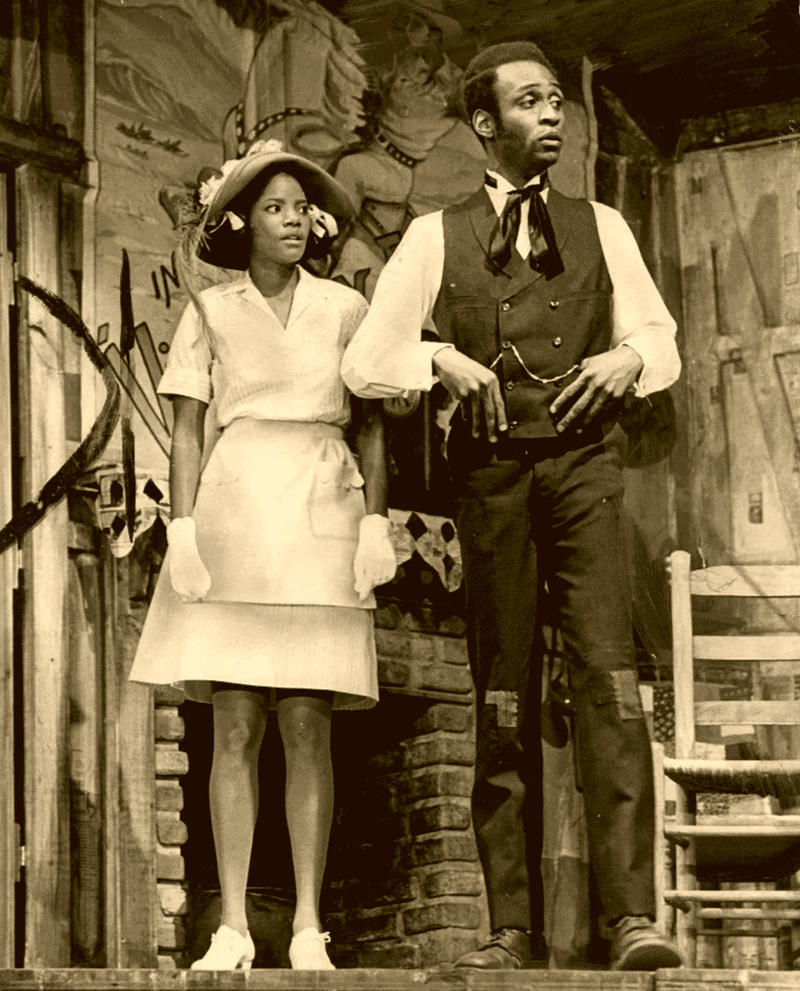
15 March, 1970 – 06 November, 1971
Traveling preacher Purlie Victorious Judson returns to his small Georgia town hoping to save Big Bethel, the community's church, and emancipate the cotton pickers who work on oppressive Ol' Cap'n Cotchipee's plantation. With the assistance of Lutiebelle Gussie Mae Jenkins, Purlie hopes to pry loose from Cotchipee an inheritance due his long-lost cousin and use the money to achieve his goals.
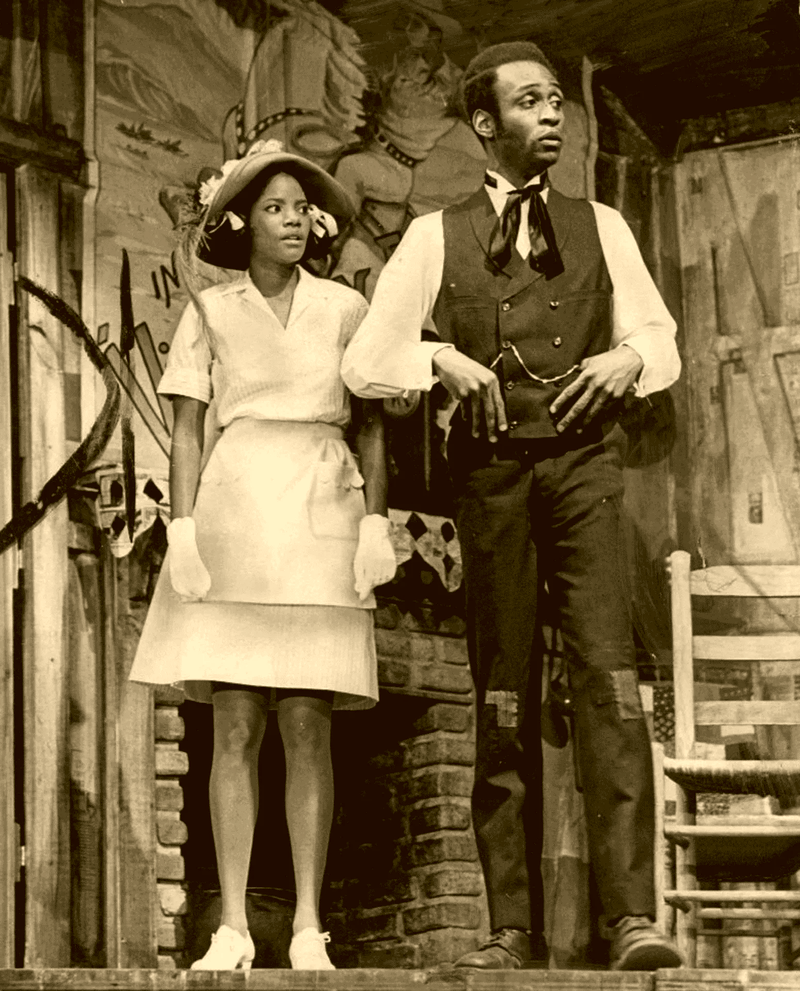
2017
Sweat
Lynn Nottage (Playwright)
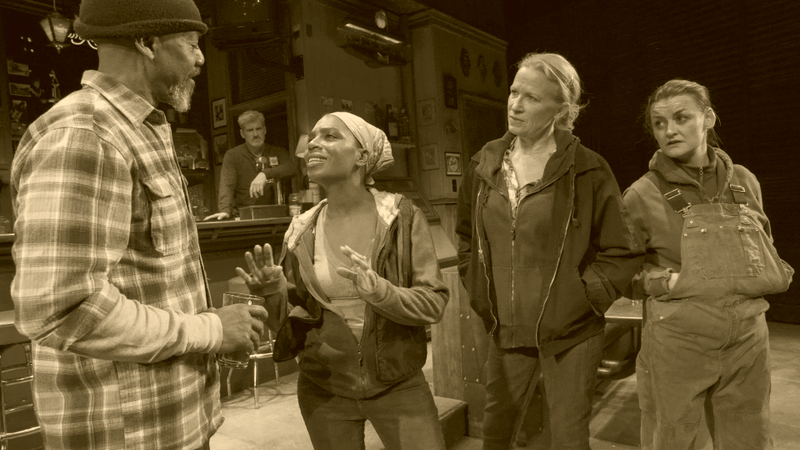
26 March – 25 June, 2017
Sweat portrays a meeting between a parole officer and two ex-convicts, and three women who were childhood friends and had worked in the same factory. The action takes place in a fictional bar in Reading, Pennsylvania. Nottage shifts in time, switching scenes and showing events of eight years earlier. The play also examines the disintegration of a friendship, after two of the women – one white, one black – apply for the same management job. The latter character gets the position. But soon the company moves jobs to Mexico. The trade union goes on strike, and company management locks out the workers. The management/worker division begins to separate the friends, and racial tensions separate them further. (Source: Wikipedia)
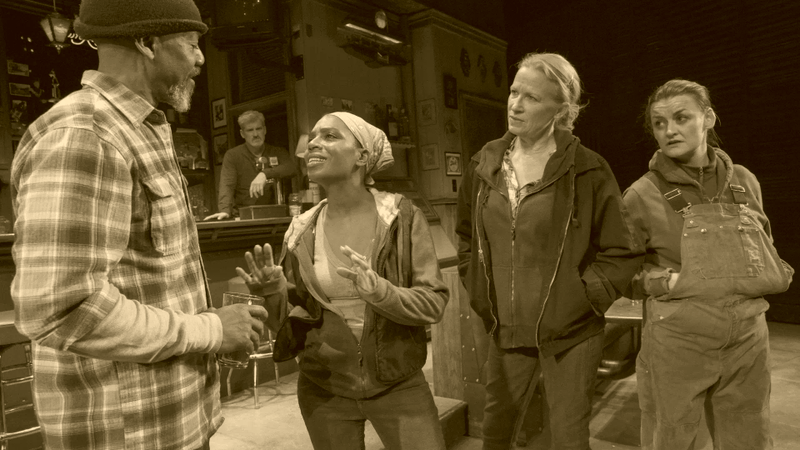
1949
Troubled Island
Langston Hughes (Playwright), William Grant Still (Playwright)
1 March, 1 April, 1 May, 1949 (3 presentations)
Set in Haiti in 1791, Troubled Island portrays Jean Jacques Dessalines (1758–1806) and the corruption of his leadership in the Haitian revolution. He declared himself as emperor of an independent Haiti but was assassinated by opponents. The opera premiered at the New York City Opera on March 31, 1949, notably making it the first grand opera composed by an African American to be produced by a major company. (Source: Wikipedia)
1943
Early to Bed
Thomas “Fats” Waller (Music)
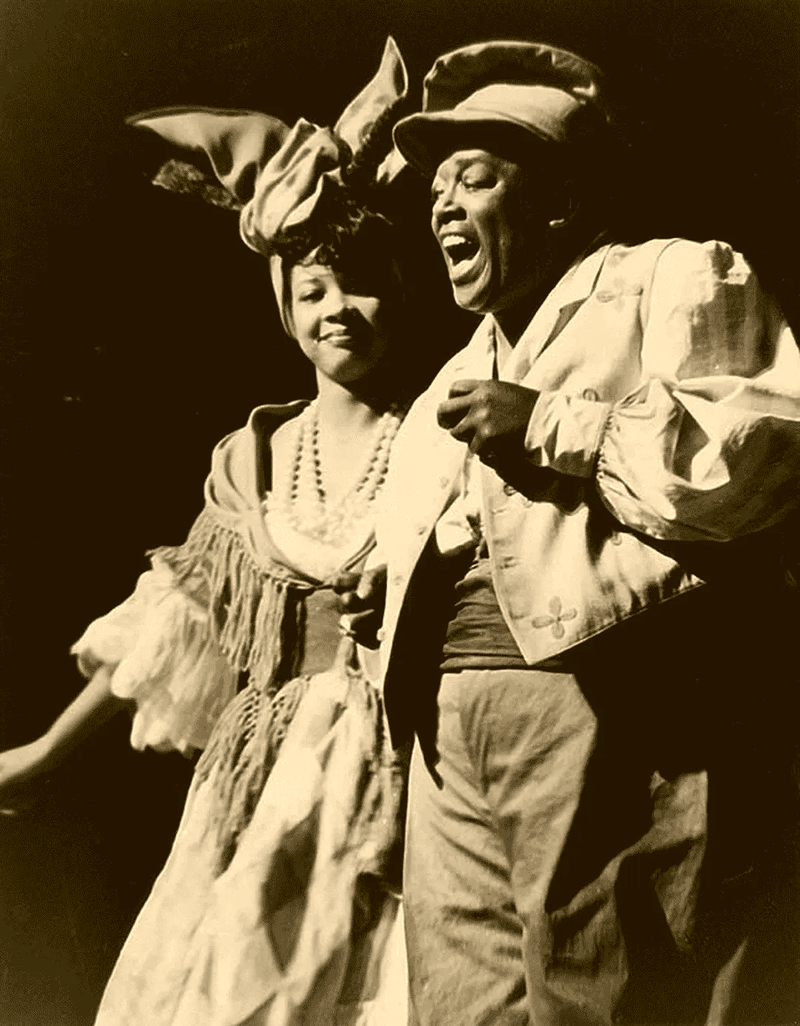
17 June, 1943 – 13 May, 1944
Early to Bed’s high-quality melodies have been under-acknowledged, to say the least. Moreover, the show marked the beginning of what would almost certainly have been a new direction in Waller’s creative output—toward musical theater, a development that in turn likely would have altered the history of Broadway, especially for blacks. Alas, Waller died early in the show’s run, and this history went unwritten, illustrating again the role that chance plays in events. (Source City Journal) The original idea was for Waller to perform in it as a comic character, not to write the music. Waller was, after all, as much a comedian as a musician. (Source: “The Fats Waller You’ve Never Heard” by John H. McWhorter, City Journal) From a modern perspective, the plot of Early to Bed is more generously viewed as an extended sketch than as a story. After Oklahoma!, even light musical-comedy plots were expected to show a basic coherence and relatively sophisticated integration of music with narrative. Early to Bed was created just before that revolution in standards, and its script was more like what mid-twentieth-century television variety shows would do with their skits. (Source: “The Fats Waller You’ve Never Heard” by John H. McWhorter, City Journal) Plot: In brief: an aging bullfighter’s car breaks down in Martinique, where he, with his son and his black valet (the role that Waller was to have played), has traveled in hopes of making a comeback at the Pan-American Goodwill Games. The son gets hit by a car and is taken to convalesce at the Angry Pigeon brothel, run by Rowena, a former schoolteacher. The woman driving the car, a nightclub dancer on her way to a gig, convalesces alongside him, and the two fall in love. Meanwhile, the bullfighter, “El Magnifico,” and Rowena turn out to have had a fling in the past and consider rekindling it. With the exception of Eileen, a newly hired prostitute, all the newcomers—including the California State University track team, coming through for the games—assume (despite what one would regard as rather obvious signs to the contrary) that the Angry Pigeon is a finishing school. (Source: “The Fats Waller You’ve Never Heard” by John H. McWhorter, City Journal)
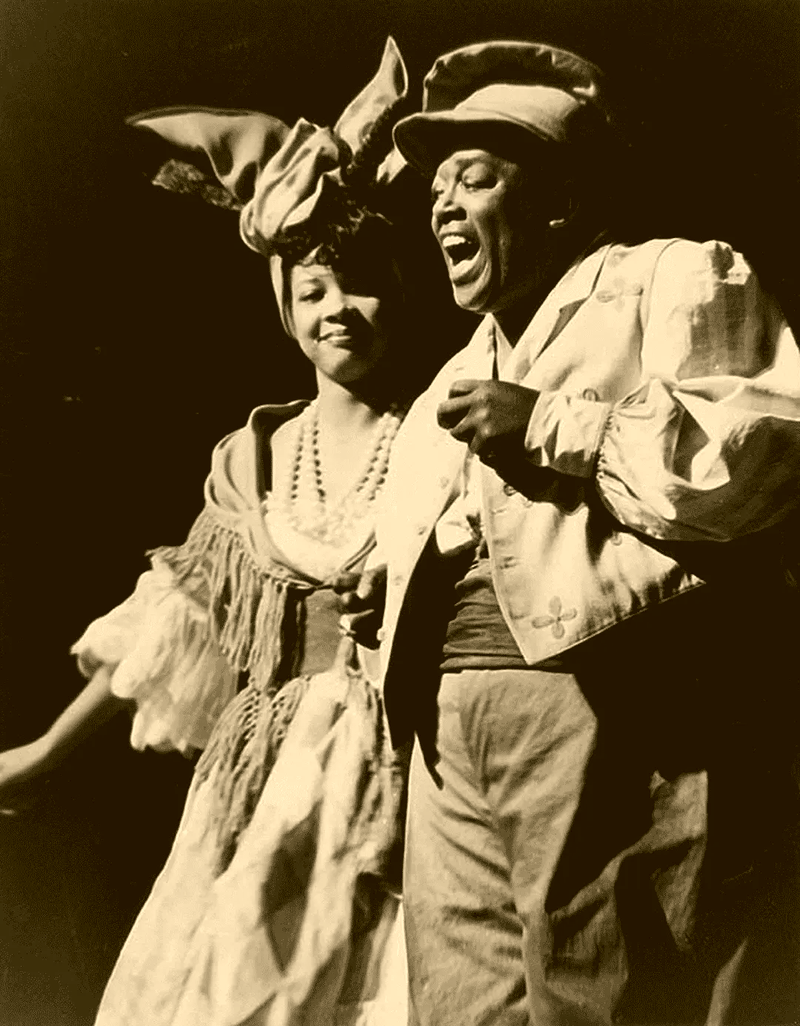
2006
Bridge and Tunnel
Sarah Jones (Playwright)
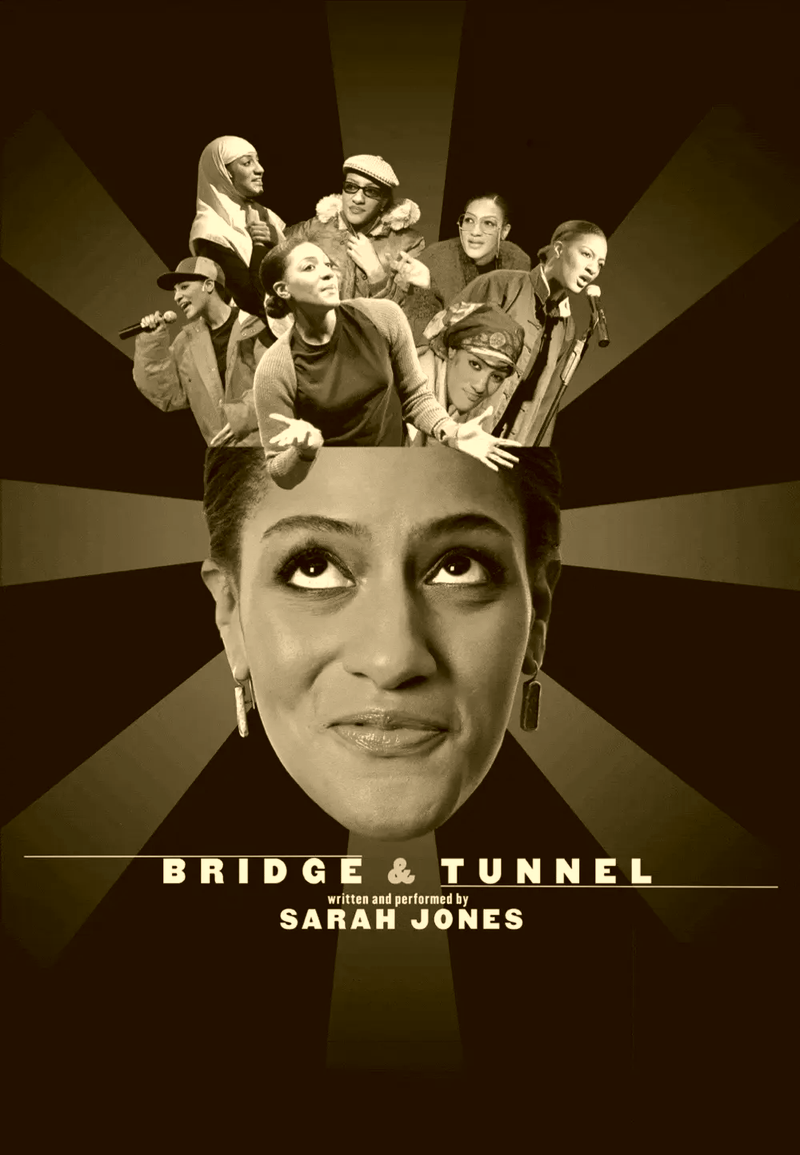
26 January, 2006 – 6 August, 2006
Bridge & Tunnel is a one-woman in which all of the roles are performed by stage actress Sarah Jones. Jones explores the diverse immigrant makeup of the New York City boroughs outside Manhattan by playing a variety of different characters, each of a different race. The play comprises a series of monologues, in which each character takes the stage during a poetry reading and ends up talking about his or her life. (Source: Wikipedia)
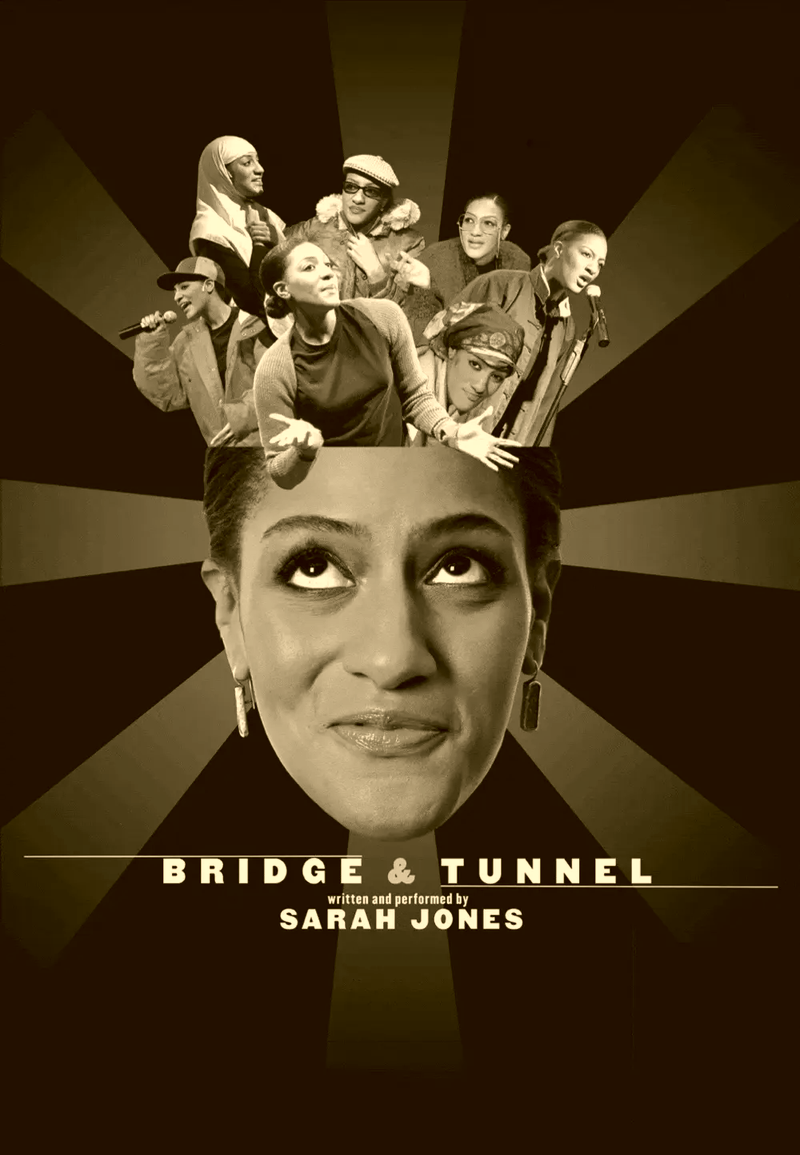
1945
Blue Holiday
Hall Johnson (Music Director), Duke Ellington (Music, Lyrics)
21 – 26 May, 1945
Ethel Waters, Josh White and the Katherine Dunham Dancers headline this all-black musical revue, featuring musical interpolations by Duke Ellington. (Source: Playbill)
1976
For Colored Girls Who Have Considered Suicide / When the Rainbow Is Enuf
Ntozake Shange (Playwright)
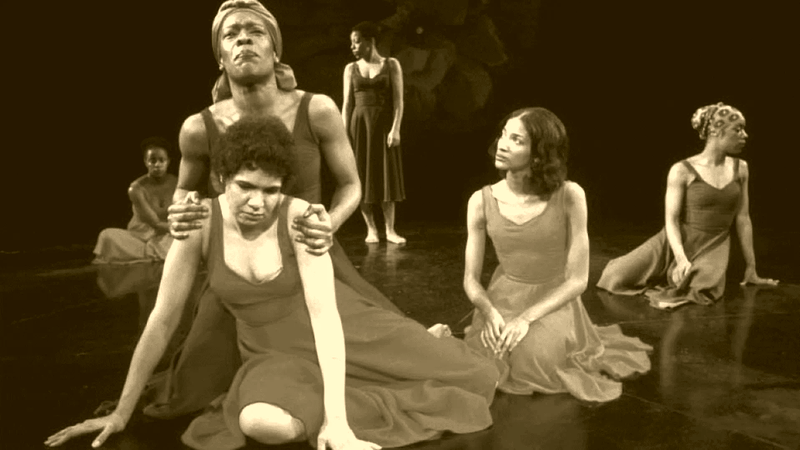
20 February, 1976 – 31 December, 1977
A “Choreopoem” in which a black woman explores inner space in seven facets of herself, with poetry dance and stories.
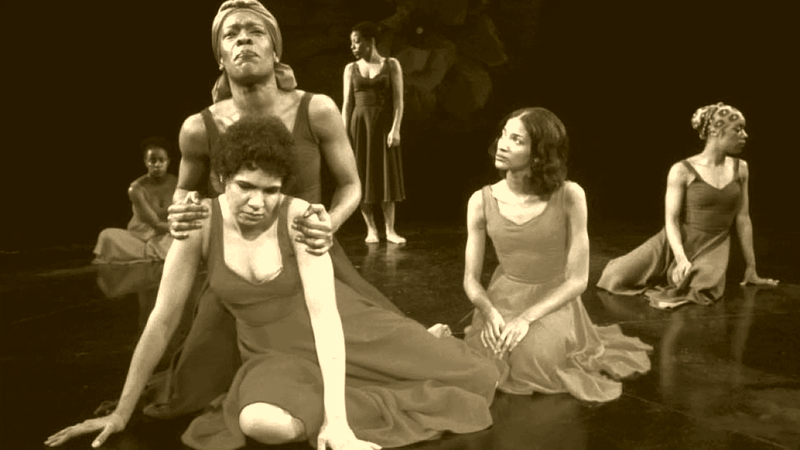
1908
Bandanna Land
Will Marion Cook (Music), Alex Rogers (Lyrics), Jesse A. Shipp (Book)
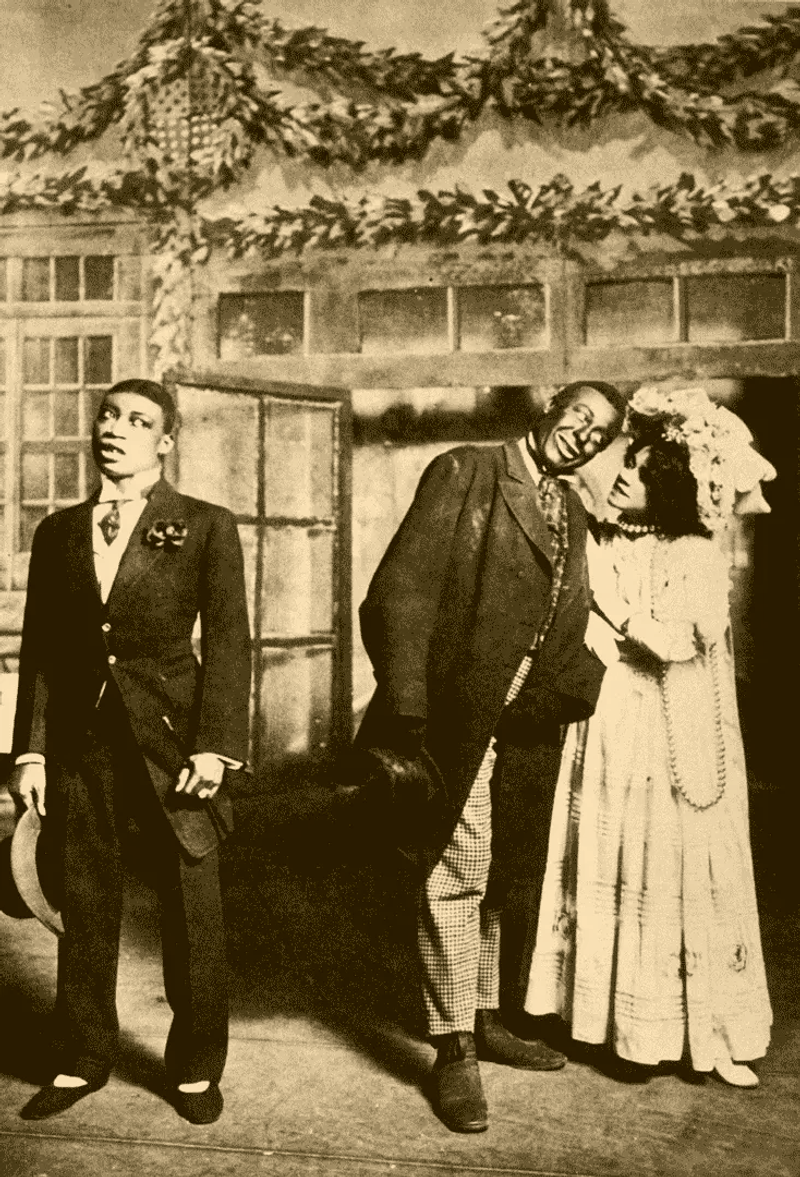
3 February – 18 April, 1908
The third and final Williams and Walker production on Broadway, about a real estate scam by Black people to move into a white neighbourhood and cause such a disturbance that their neighbours buy back their homes at twice the price. Skunkton Bowser, a performer who does one-night-stands with a minstrel show, inherits $25,000 as a bequest from his father's former owner. His educated friend, Bud Jenkins, appoints himself as guardian of Bowser and creates a park for African Americans called "Bandanna Land." Jenkins assists in selling the park to a railroad company that does not like the presence of the African Americans. Despite Jenkins, Bowser is determined to receive his fair share of the profits of the sale.
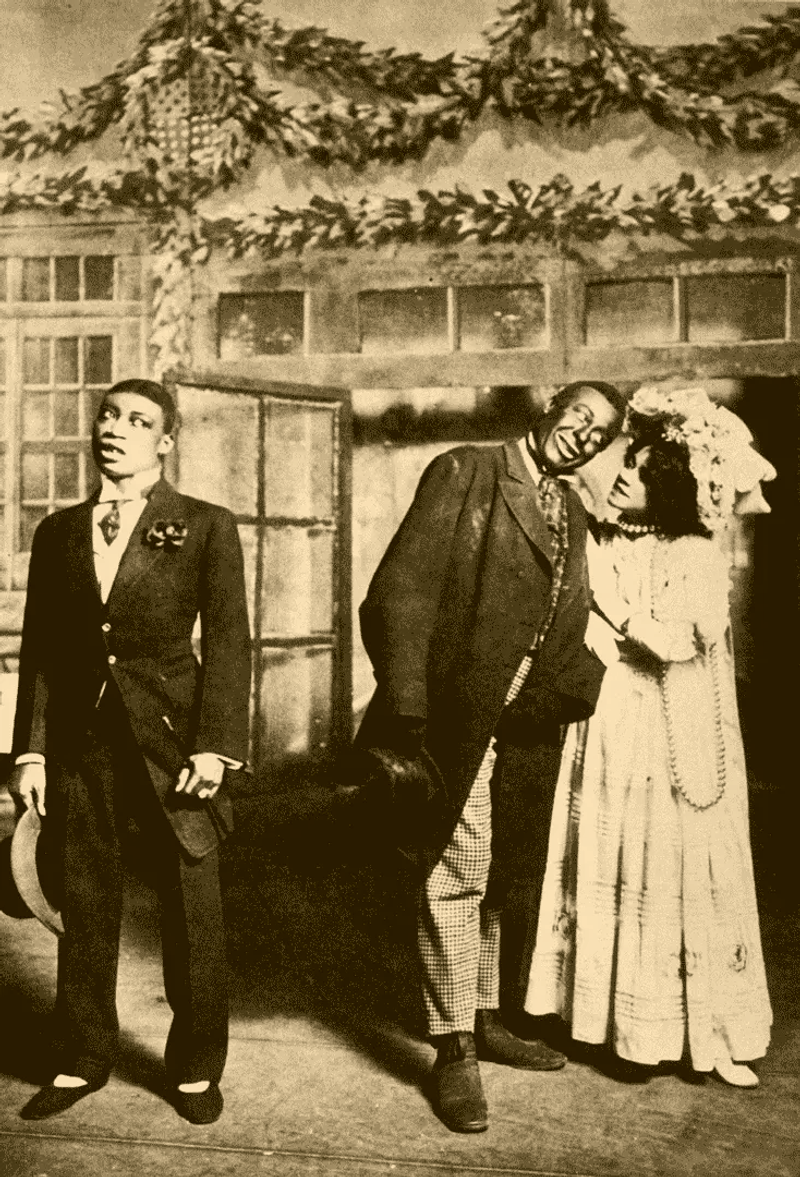
2019
Tina: The Tina Turner Musical
Tina Turner (Source Material), Katori Hall (Playwright)

Opens November 7, 2019
Tina: The Tina Turner Musical is a jukebox musical featuring the music of Tina Turner, and depicting her life from her youth in Nutbush, Tennessee, through her tumultuous relationship with Ike Turner, and comeback as a rock 'n roll star in her 40s.

1980
Reggae
Ras Karbi (Music, Lyrics), Stafford Harrison (Book), Melvin Van Peebles (Playwright), Kendrew Lascelles (Story)
27 March – 13 April, 1980
One day in Jamaica; a musical review.
1974
Sizwe Banzi is Dead & The Island
Winston Ntshona (Playwright), John Kani (Playwright), Athol Fugard (Playwright)
13 November, 1974 – 18 May, 1975
2021
Clyde’s
Lynn Nottage (Playwright)
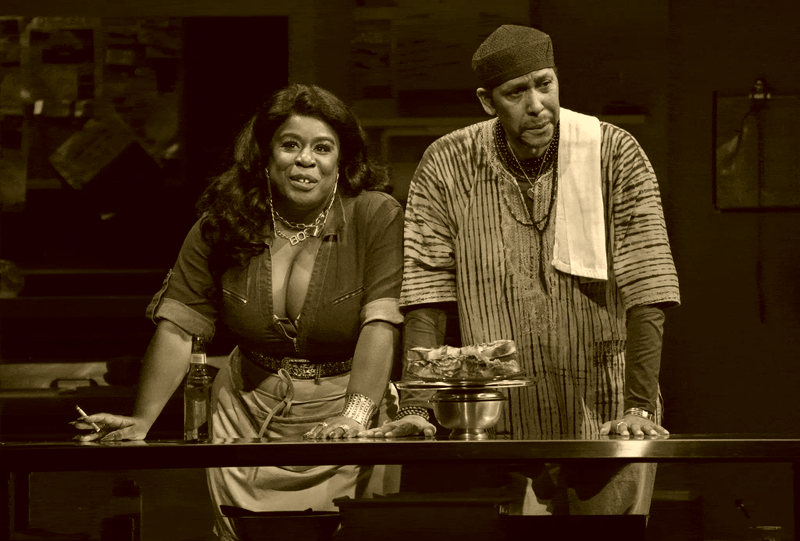
3 November, 2021 – 16 January, 2022
A truck stop sandwich shop offers its formerly incarcerated kitchen staff a shot at reclaiming their lives. Even as the shop’s callous owner tries to keep them under her thumb, the staff members are given purpose and permission to dream by their shared quest to create the perfect sandwich.
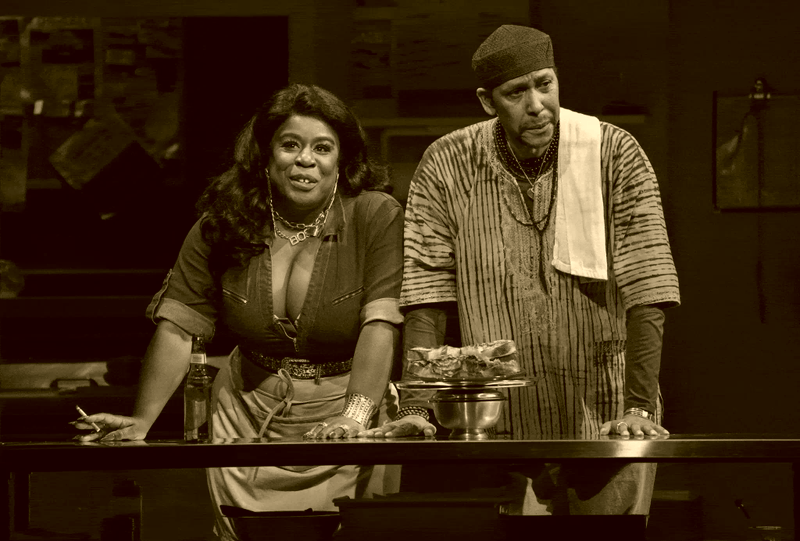
1999
Rollin’ on the T.O.B.A
Langston Hughes (Playwright), Jaye Stewart (Concept), Ronald “Smokey” Stevens (Concept, Direction, Choreography)
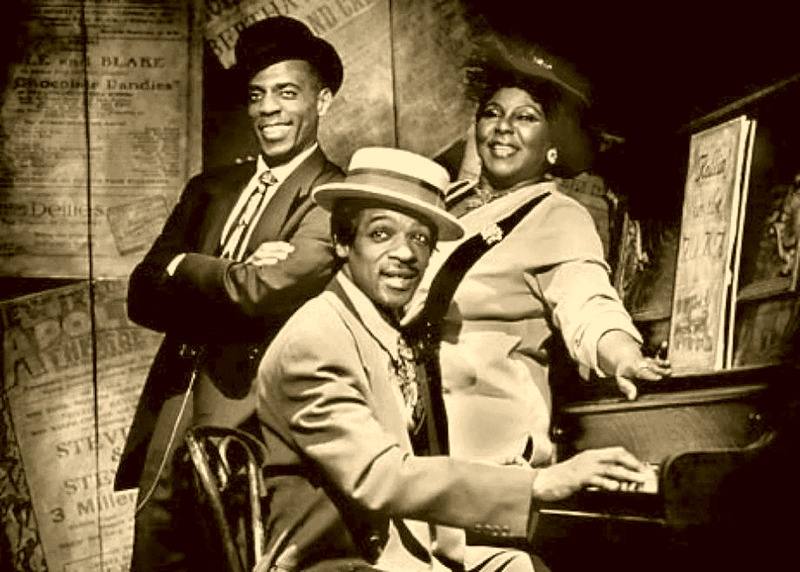
24 March – 4 April, 1999
Co-created, directed and choreographed by Stevens, “Rollin on the T.O.B.A.” focuses on the major trials and minor triumphs of three stalwart performers during 1931, the waning years of vaudeville. Power-lunged blues diva Bertha Mae Little (Reaves-Phillips) has taken on the dance and comedy duo of Stevens (Stevens) and Stewart (Levy) to be her opening act as the trio wend their way through a circuit of T.O.B.A. palaces, including the Monogram, Royal, Booker T. and Regal in Chicago. Along the way, the production makes telling use of poet Langston Hughes’ “Simple Stories” as an ongoing social commentary on the hard times of the day and the yearnings of a society struggling to establish its own identity. (Source: Variety)
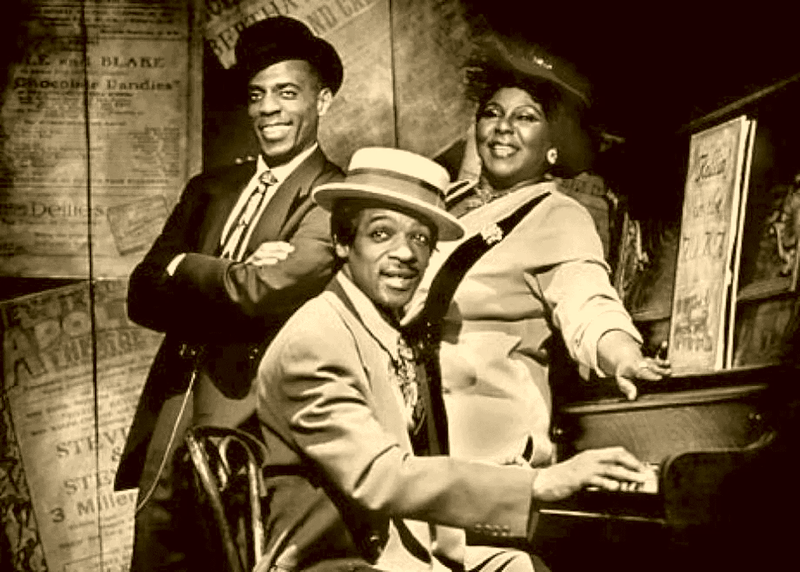
1946
Street Scene
Langston Hughes (Playwright)
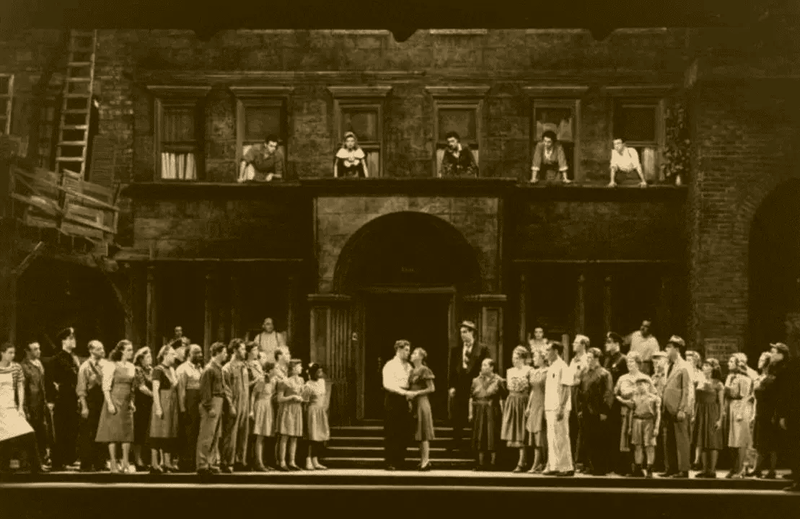
9 January – 17 May, 1947
An American opera by Kurt Weill (music), Langston Hughes (lyrics), and Elmer Rice (book). Written in 1946 and premiered in Philadelphia that year, Street Scene is based on the Pulitzer Prize-winning play of the same name by Rice. The opera takes place on the doorstep of a tenement on the East Side of Manhattan on two brutally hot days in 1946. The story focuses on two plotlines: the romance between Rose Maurrant and her neighbor Sam Kaplan; and on the extramarital affair of Rose's mother, Anna, which is eventually discovered by Rose's irritable father, Frank. The show portrays the ordinary romances, squabbles and gossips of the neighbors, as the mounting tensions involving the Maurrant family eventually build into a tragedy of epic proportions. (Source: Wikipedia/IBDB)
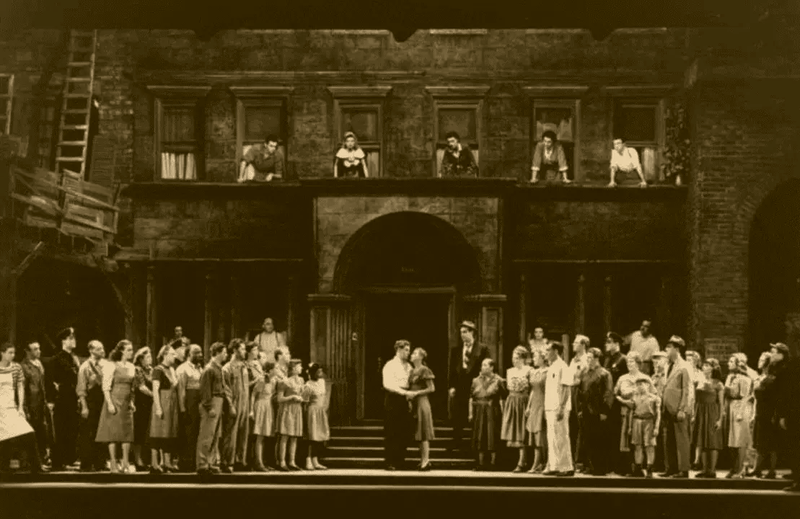
1973
Raisin
Loraine Hansberry (Playwright)
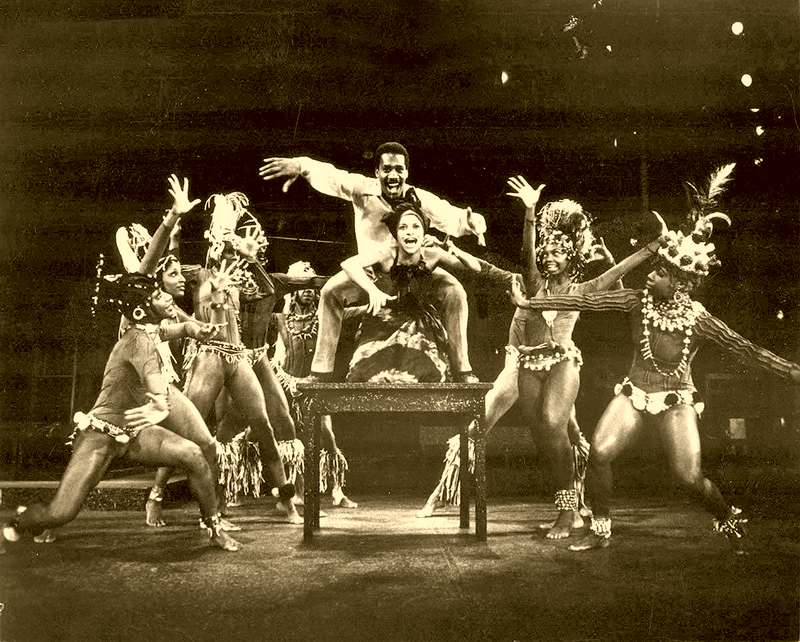
18 October, 1973 – 7 December, 1975
In Chicago in 1951, an African-American family, Ruth Younger, her husband Walter Lee Younger, their son Travis and Walter's mother are living in a cramped apartment. Walter is a chauffeur but thinks that his father's life insurance policy proceeds will buy a way to a better life. He plans on buying a liquor store, but his mother Mama Lena Younger is against the selling of liquor. Tensions arise as Walter tries to convince Mama Lena to forget her dream of buying the family its own small house.
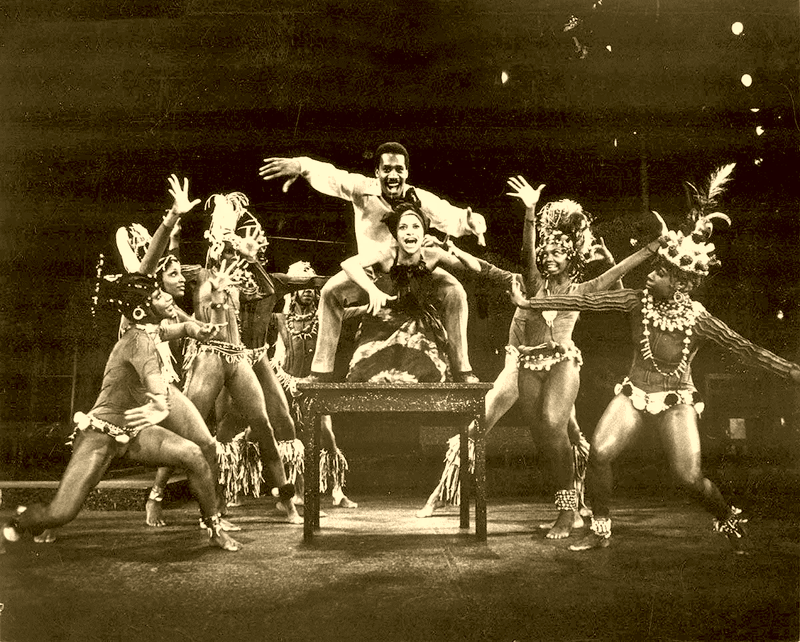
2001
King Hedley II
August Wilson (Playwright)
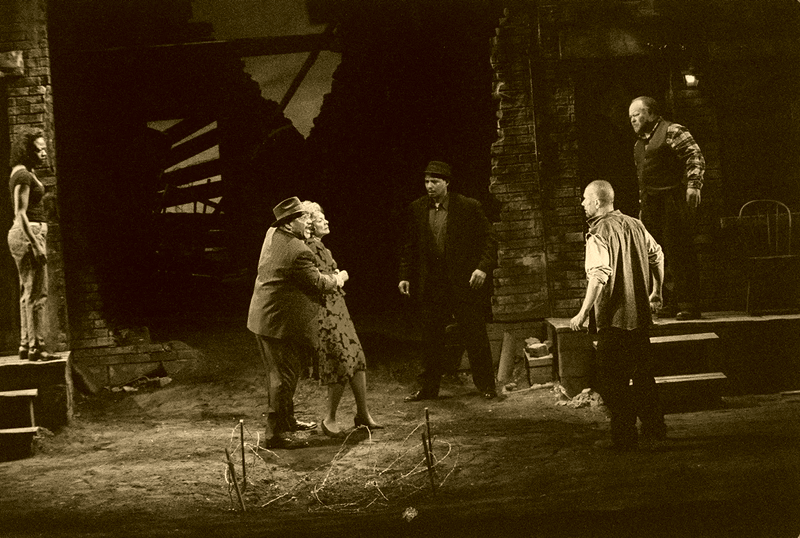
1 May – 1 July, 2001
King Hedley II is a play by American playwright August Wilson, the ninth in his ten-part series, The Pittsburgh Cycle. The play ran on Broadway in 2001 and was revived Off-Broadway in 2007. Set in Pittsburgh, Pennsylvania in 1985, it tells the story of an ex-con in Pittsburgh trying to rebuild his life. The play has been described as one of Wilson's darkest, telling the tale of a man trying to save $10,000 by selling stolen refrigerators so that he can buy a video store, as well as revisiting stories of other characters initially presented in Seven Guitars. (Source: Wikipedia)
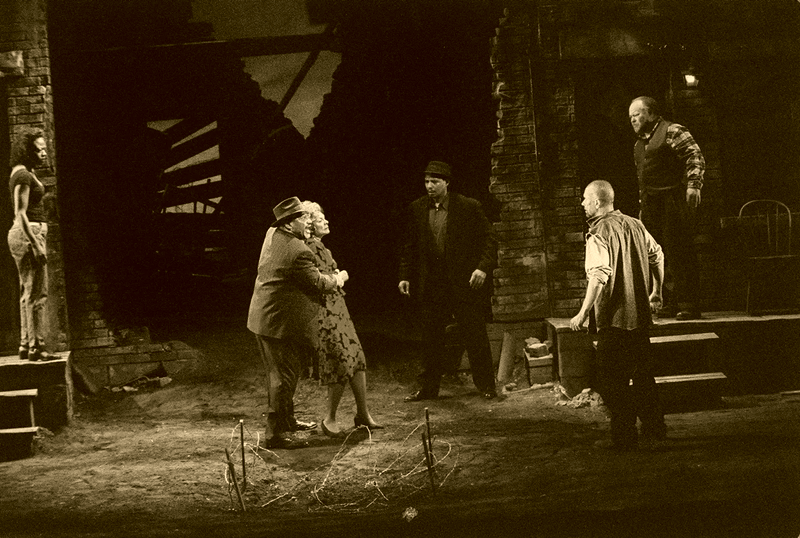
1980
Home
Samm-Art Williams (Playwright)
7 May, 1980 – 4 January, 1981
The action begins on the small farm in South Carolina that Cephus Miles, an orphan, has inherited from his family. Young and strong, he is content to work the land—until his childhood sweetheart rejects him and goes off to college. Not believing in the Vietnam war, Cephus is imprisoned as a draft evader for refusing to serve. By the time he is released, Cephus has lost his land to the tax collector so he heads north to build a new life. With a good job and a slinky new girlfriend, he finds the big city exciting and rewarding. But soon after, the dream begins to fade—Cephus loses his job and becomes involved in drugs and prostitution. Pulling himself together, he returns to South Carolina and settles back on the land with his old sweetheart. Despite all, he has never lost his joyous goodwill, his indomitable spirit and the conviction that one day his quest for fulfillment will be rewarded.
1982
Blues in the Night
Sheldon Epps (Concept, Direction)
20 May – 8 July, 1982
A musical revue featuring many classic Blues songs.
1921
Shuffle Along
Noble Sissle (Lyrics), Eubie Blake (Music), Aubrey Lyles (Book)
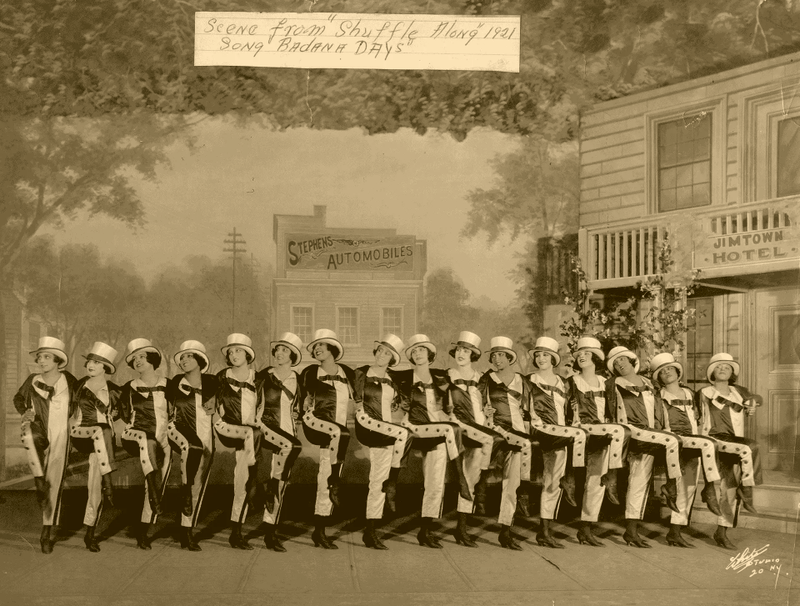
23 May, 1921 – 15 July, 1922
Set in Jimtown in Dixieville on election day, it concerned the ribalry between towo ignorant storekeepers (Miller & Lyles), both running for mayor of the town.
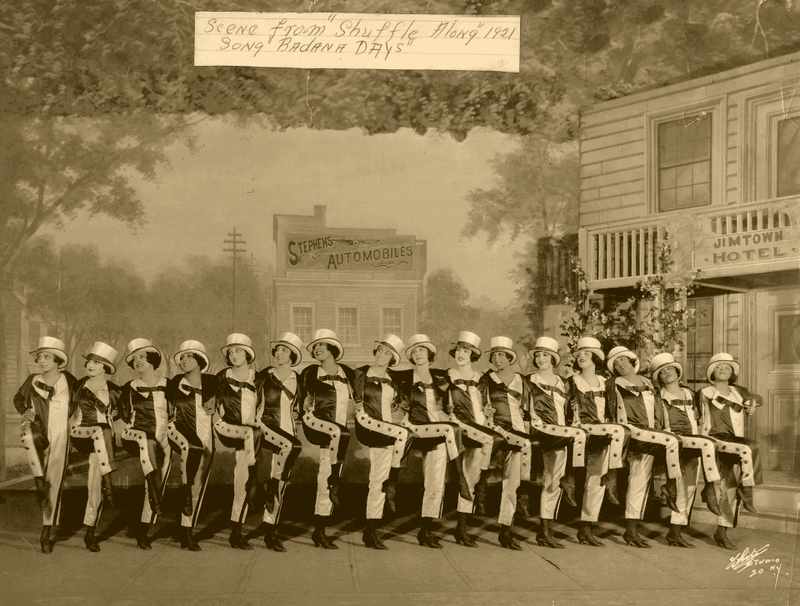
1924
The Chocolate Dandies
Lew Payton (Book), Noble Sissle (Lyrics), Eubie Blake (Music)
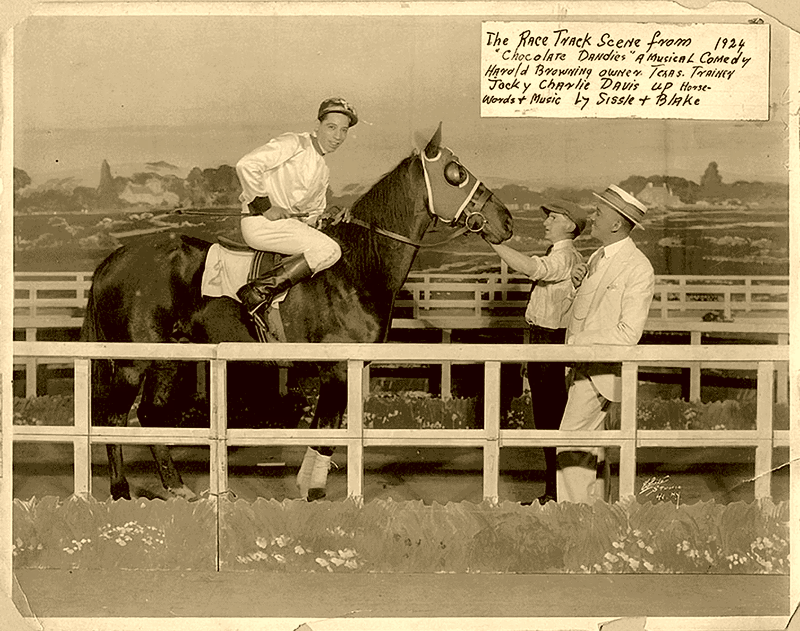
1 September – 22 November, 1924
A race horse owner dreams that his horse has won a fortune that enables him to live like a king and win the girl that he loves until he wakes up.
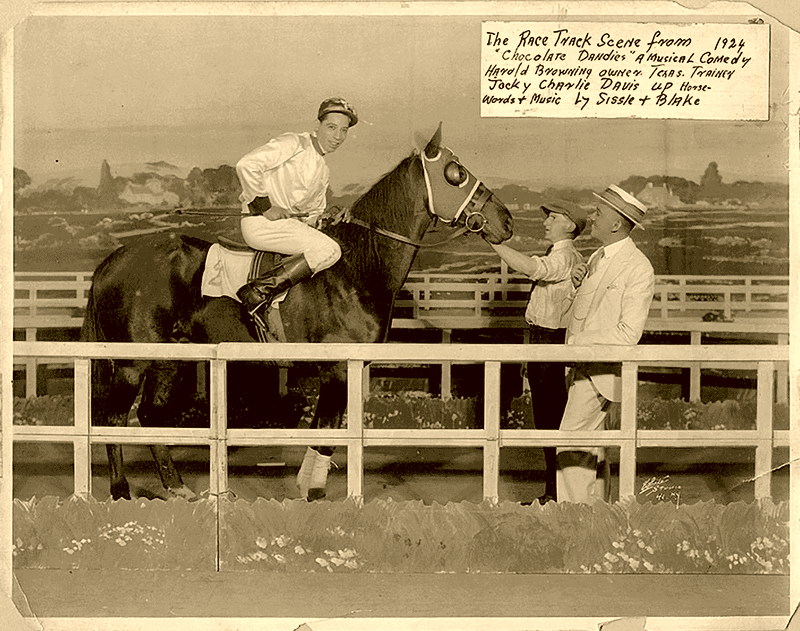
1922
Strut, Miss Lizzie
J. Turner Layton (Music), Henry Creamer (Lyrics)
19 June – 26 August, 1922
A musical revue with scenes taking place on the South Sea Islands, Southern plantations, and in restaurants. It opened with a scene of a young Black man returning to take his “mammy” back north with him.
1928
Keep Shufflin’
Thomas “Fats” Waller (Music)
27 February – 26 May, 1928
A follow-up to Noble Sissle and Eubie Blake’s smash hit Shuffle Along (1921), which starred Joséphine Baker, and was the show that is credited with making black music acceptable to Broadway audiences. Although not on stage in Keep Shufflin’, Waller made a considerable impression with his exuberant piano playing from the show’s orchestra pit at Daly’s Theatre. (Source: OLDIES) “In many ways a reprise of Shuffle Along...The musical brought back their characters Sam Peck and Steve Jenkins.” This time around, the two were presented at “benevolent would-be bank robbers literally dreaming up schemes to make themselves and everyone else rich.” Ultimately, they decide that so much wealth would be valueless and their good intentions prove fruitless. The play was interpreted as an attack against Communism, but the playwrights maintained than any political connotation were “coincidental” and they were only concerned with the value of the story. (Source: Encyclopedia of the Harlem Renaissance by Aberjhani, Sandra L. West)
1927
The Fool’s Errand
Eulalie Spence
2 May, 1927
Set in the home of a poor, rural southern family in the 1920s; the drama is about the dilemma of a young woman, Maza, whom a group of pious neighbors accuse of being pregnant out of wedlock. The accusation is based on evidence of baby clothing that Maza has allegedly made. At the end, Maza’s mother enters just as her daughter is about to be forced to marry the wrong Man, Freddi, whom Maza’s father (Doug) and the community have decided is the child’s father. Bur Maza’s mother has made the baby clothing; she is the expectant new mother. The accusations and persecution of the community towards Maza and her boyfriend (Jud) are completely baseless. (Source: Theorizing Black Theatre: Art Versus Protest in Critical Writings, 1898–1965 by Henry D. Miller)
1937
The Trial of Dr. Beck
Hughes Allison (Playwright)
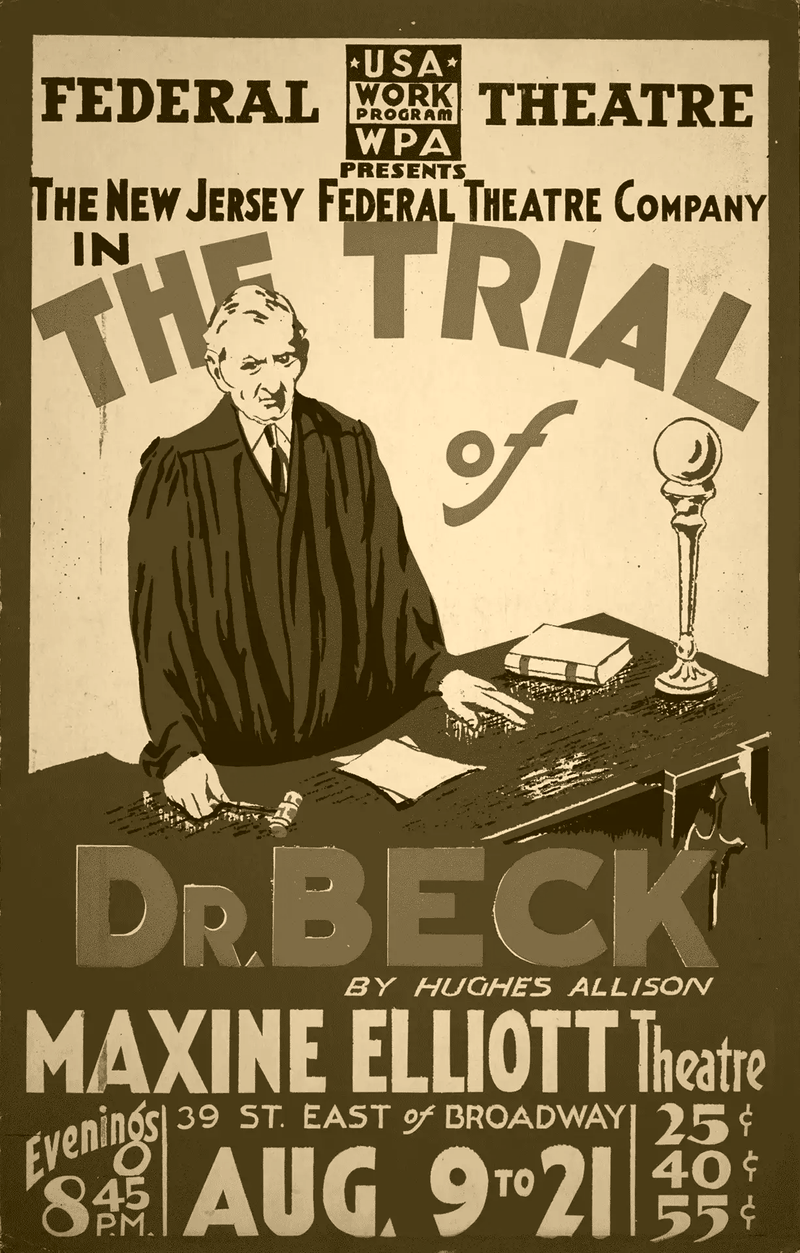
9 August, 1937 (24 performances)
The only Federal Theatre Project production to be picked up by Broadway (other plays went the opposite direction). It had a case of twenty Black and fourteen white performers. The play is a courtroom drama, described as “a living tragedy to Negro Americana with sociological implications” (Federal Theatre promotion), “something between frank melodrama and a somber study of some of the problems and prejudices that beset the Negro race” (New York Post). The New York Herald Tribune described it as, “a courtroom melodrama droning out a tale of high-powered passion and murder among Harlem’s upper moneyed classes.” (Source: Source: “The Great White Way: Critics and the First Black Playwrights on Broadway” by Doris E. Abramson)
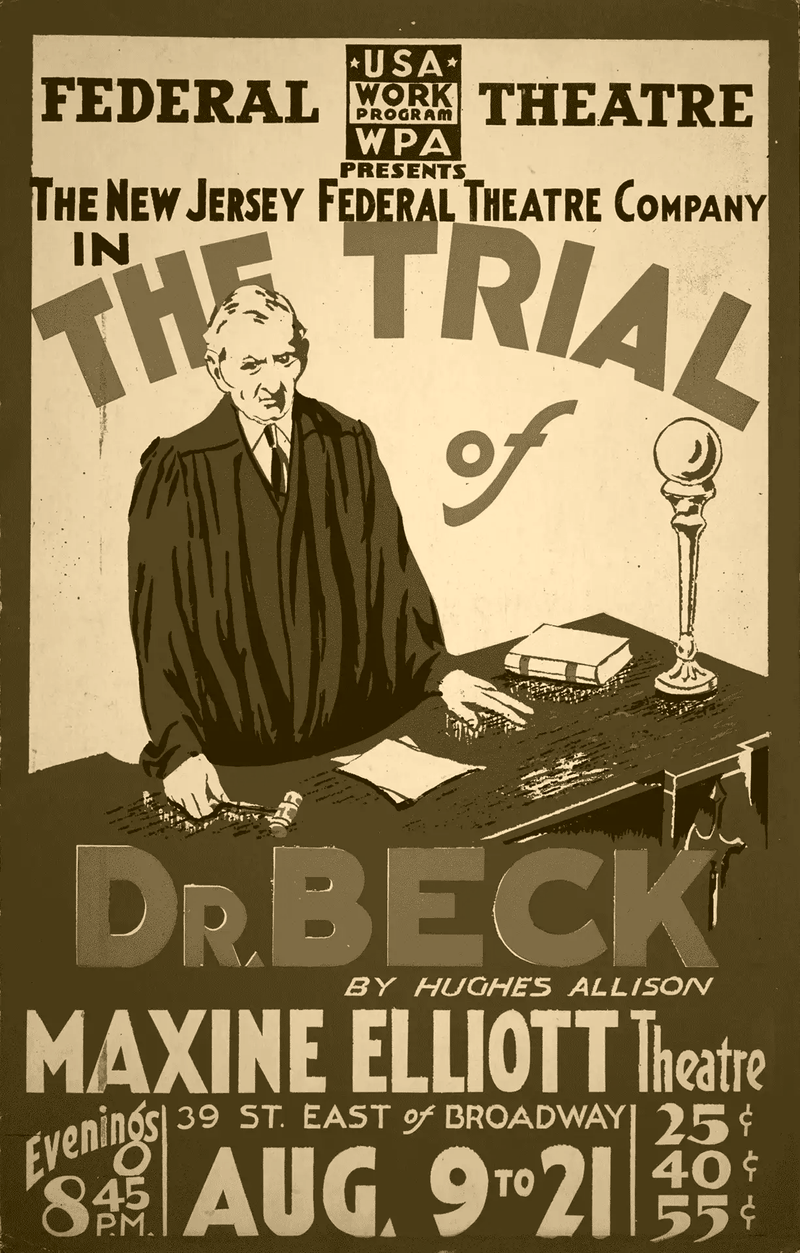
1984
André DeShields' Haarlem Nocturne
Murray Horwitz (Book), André De Shields (Book)
30 October – 30 December, 1984
A one-man musical revue starring André De Shields.
1903
In Dahomey: A Negro Musical Comedy
Paul Laurence Dunbar (Book, Lyrics), Alex Rogers (Lyrics), Jesse A. Shipp (Book), Will Marion Cook (Music)
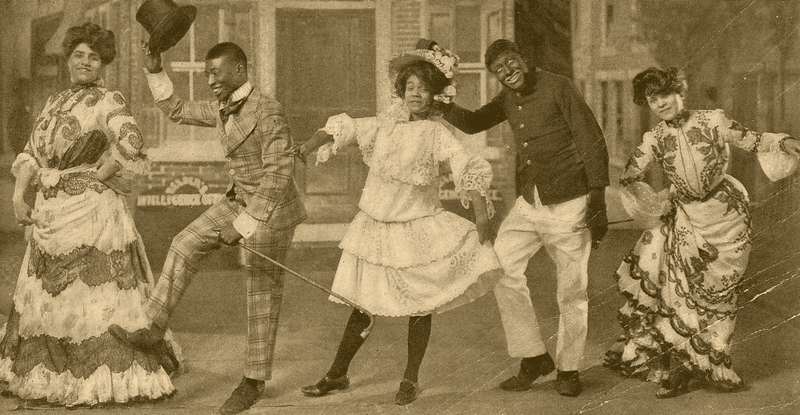
18 February – 4 April, 1903 (53 performances)
In Dahomey is often claimed to be the first African American production to ever be mounted on Broadway. African American blackface performers Bert Williams and George Walker star as two conmen from Boston who discover a pot of gold and devise a plan to move to Africa to colonize Dahomey (present day Benin) with a group of poor African Americans.
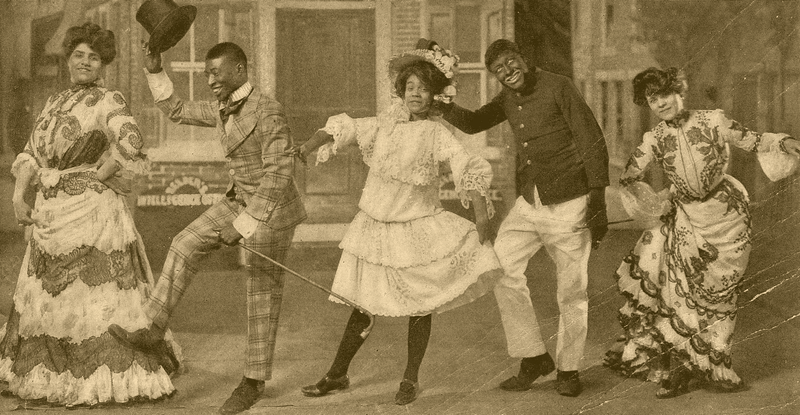
1974
My Sister, My Sister
Ray Aranha (Playwright)
30 April – 11 August, 1974
The early life cycle of a girl growing up with her sister and her mother in a lower class black neighborhood, with scenes switching back and forth in time to show her both as she is now and as she was when a little girl. Her mother was an evangelist, and her father a very likeable but contentious alcoholic. Her sister became a whore early in life. One night after the father has left the family, mother plans a pilgrimage to another town; and so this is the night that sister decides to bring home a white man and initiate the younger girl in the rites of sex. Sensing trouble, however, mother returns unexpectedly and discovers all. Ever since that night, sister has disappeared, and the girl has gone searching for her everywhere, ending up a prostitute herself. Her one remaining hope is her lover, who has made her pregnant.
1930
Lew Leslie’s Blackbirds
Eubie Blake (Music)
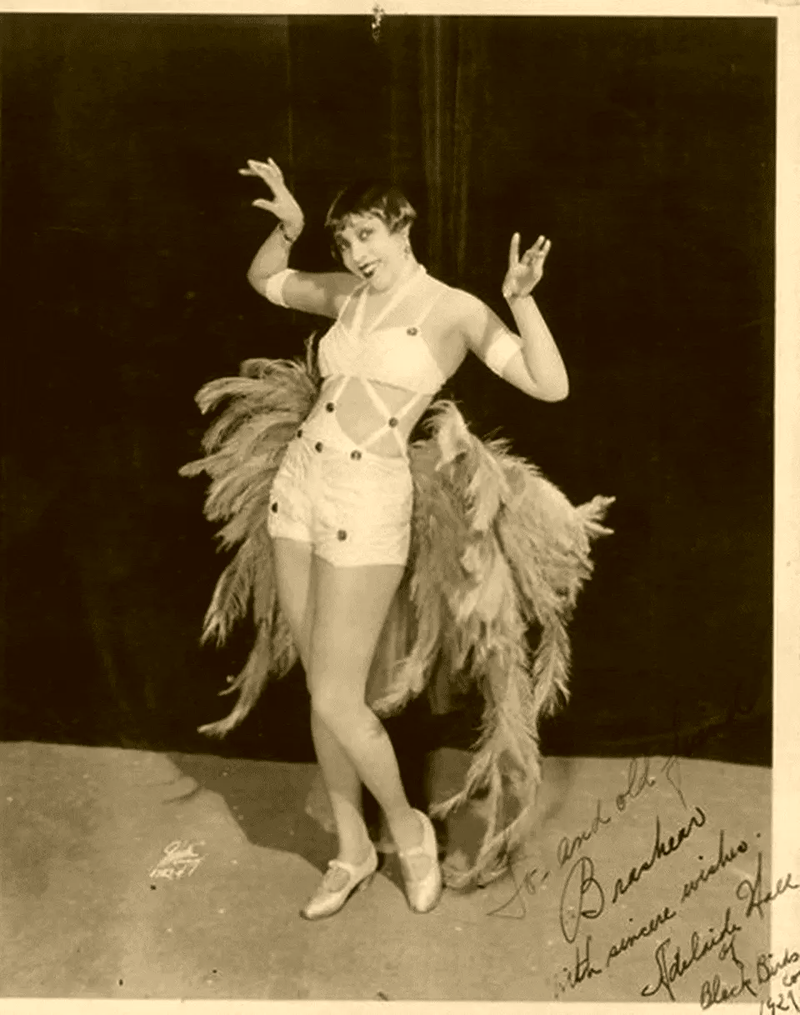
22 October – December, 1930
The idea of impresario Lew Leslie, who planned to build the show around Florence Mills in New York City after her success in the hit 1926 show Blackbirds in London. Mills died of appendicitis in 1927 before rehearsals for the new show had started and Adelaide Hall was enlisted to replace her. Blackbirds of 1928 started its life as a floorshow at Les Ambassadeurs Club on 57th Street, New York with songs written by Jimmy McHugh and Dorothy Fields. (Source: Wikipedia) The show was comprised of various live acts including musical and comedic numbers.
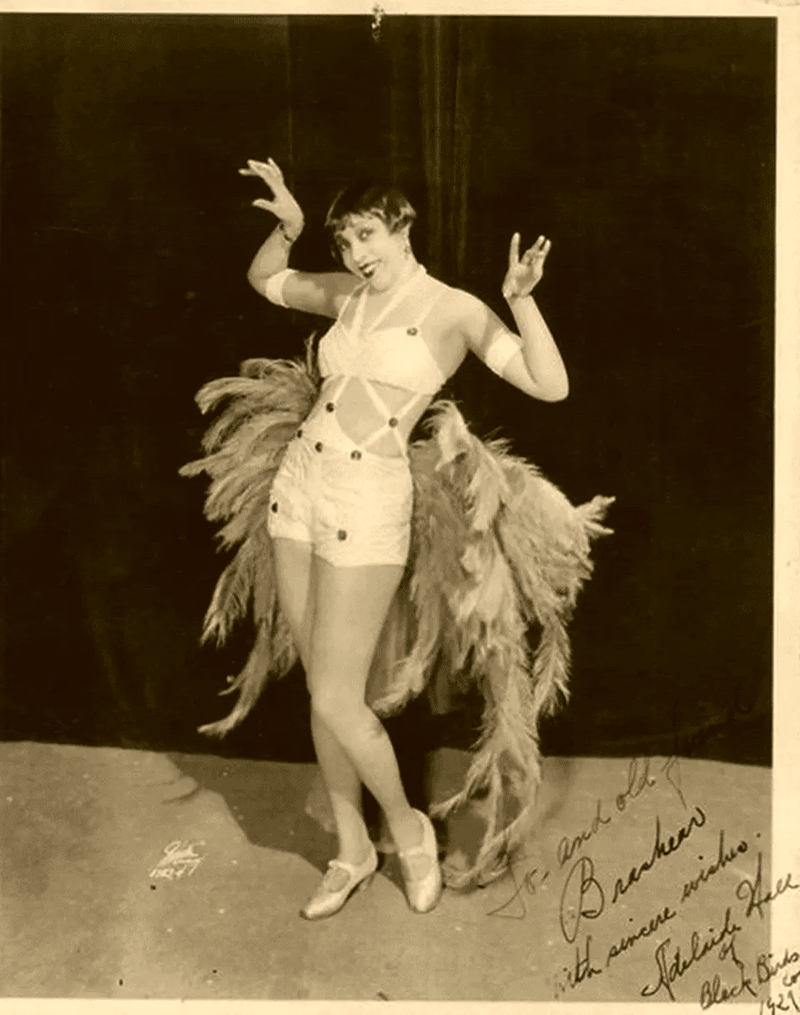
1923
Dew Drop Inn
Alfred Goodman (Composer), Cyrus Wood (Lyrics), Edward Delaney Dunn (Book), Walter DeLeon (Playwright)
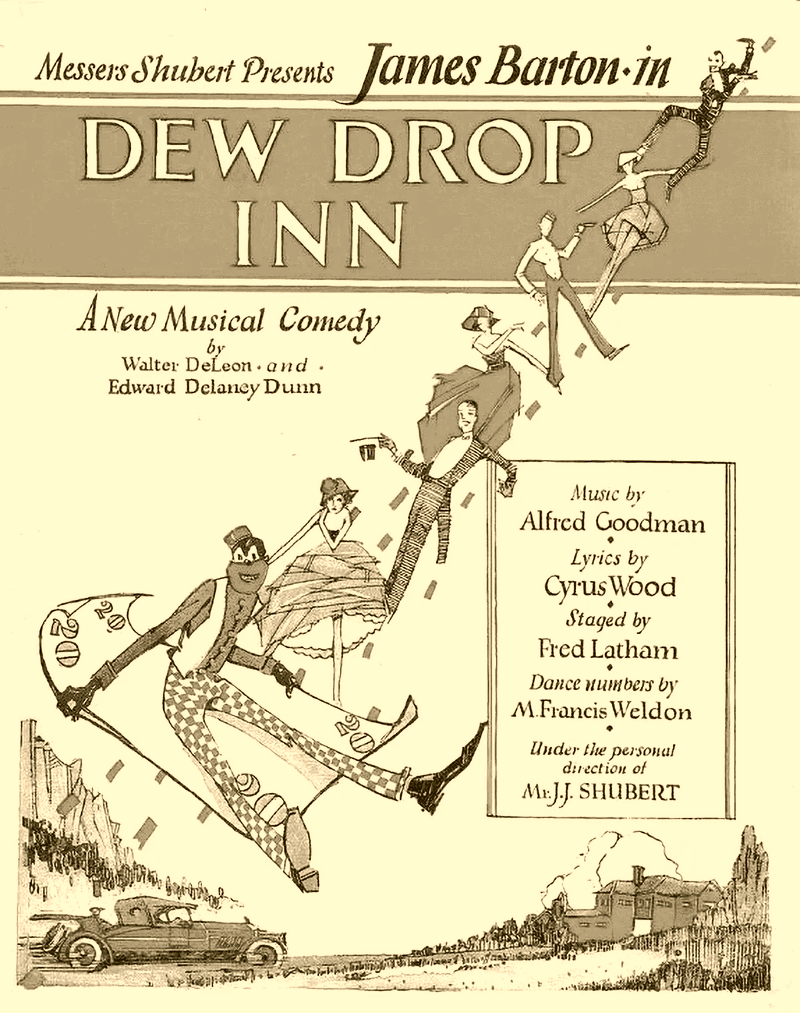
17 May – 25 August, 1923
Dew Drop Inn began as a vehicle for Bert Williams as The Pink Slip, and then was renamed Under the Bamboo Tree, but he died during the national tour (i.e. before it could reach Broadway). The show was then revised as Dew Drop Inn starring James Barton in Williams’ role, in blackface.
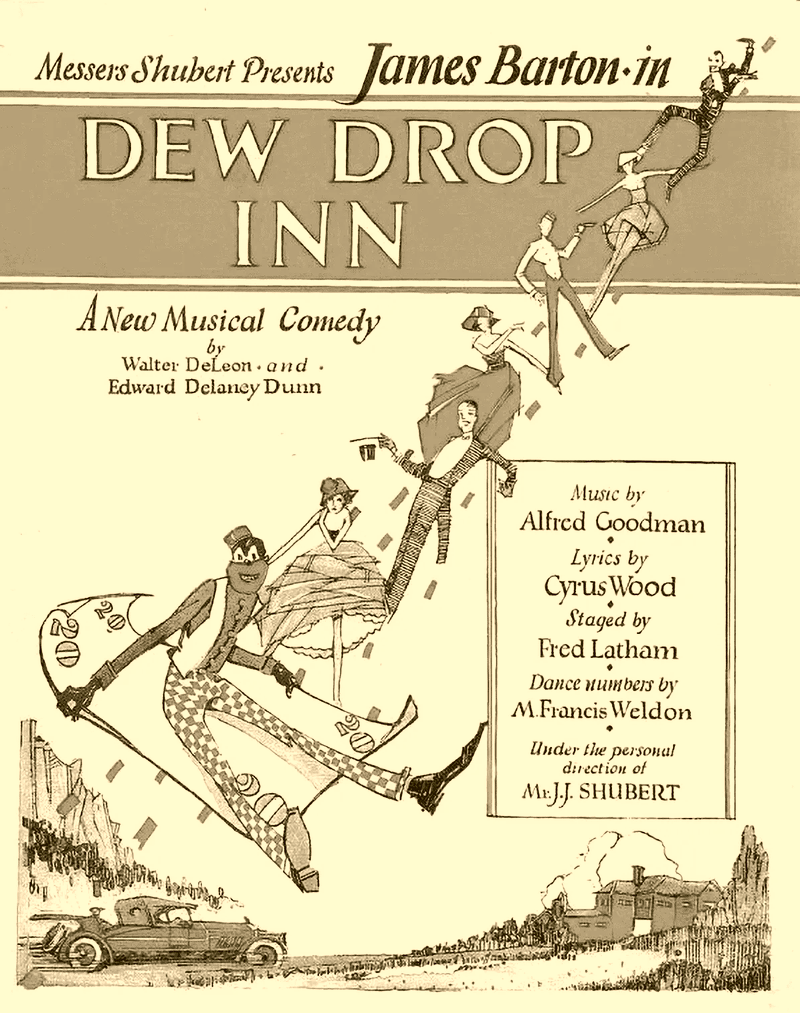
2004
Drowning Crow
Regina Taylor (Playwright)
15 February – 4 April, 2004
Playwright Regina Taylor updates Anton Chekhov's The Seagull to a world of television and hip-hop. The play is set on the Gullah islands off the coast of South Carolina, where a black family of artists gather to vacation for the summer as tensions and artistic hopes brew. (Source: Playbill)
1988
Joe Turner's Come and Gone
August Wilson (Playwright)
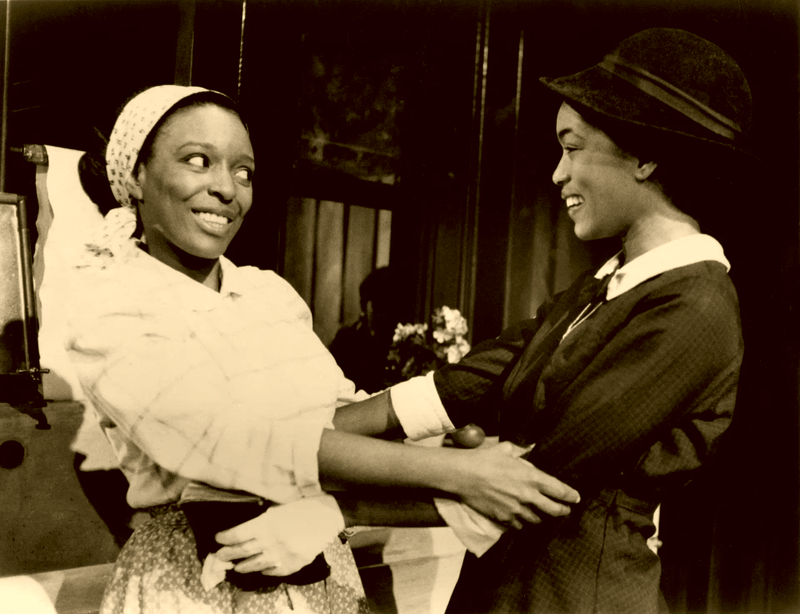
27 March, 1988 – 26 June, 1988
Joe Turner's Come and Gone, set in 1917,is a play by American playwright August Wilson. It is the second installment of his decade-by-decade chronicle of the African-American experience, The Pittsburgh Cycle. The play was first staged 1984 at the Eugene O'Neill Theater Center in Waterford, Connecticut and opened on Broadway on 27 March 1988 at the Ethel Barrymore Theatre—running for 105 performances. Set in 1917, the play is the story of Harold Loomis, who returns to Pittsburgh in search of his wife. He is haunted by the memory of bounty hunter Joe Turner, the man who had illegally enslaved him. Loomis is unable to fully embrace or release the past. (Source: Huntingtontheatre.org; Wikipedia)
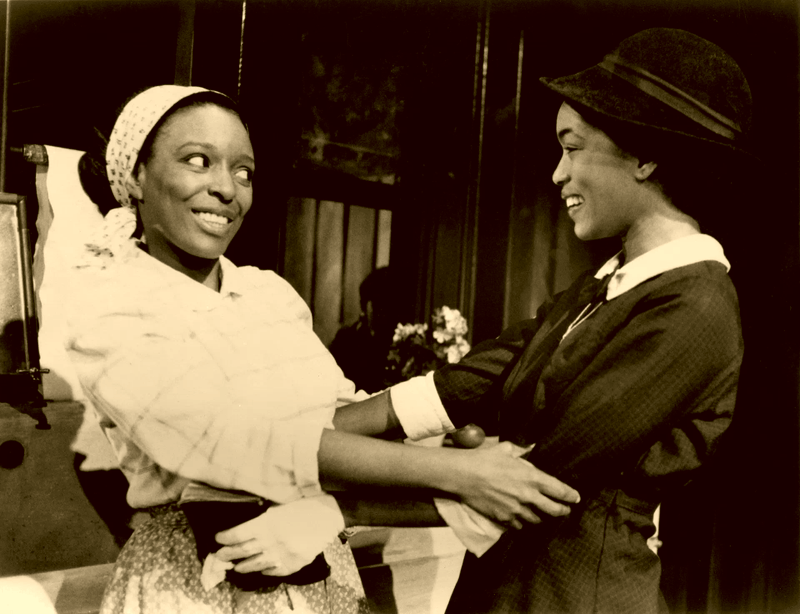
2013
After Midnight
Wynton Marsalis (Producer), Langston Hughes (Playwright)
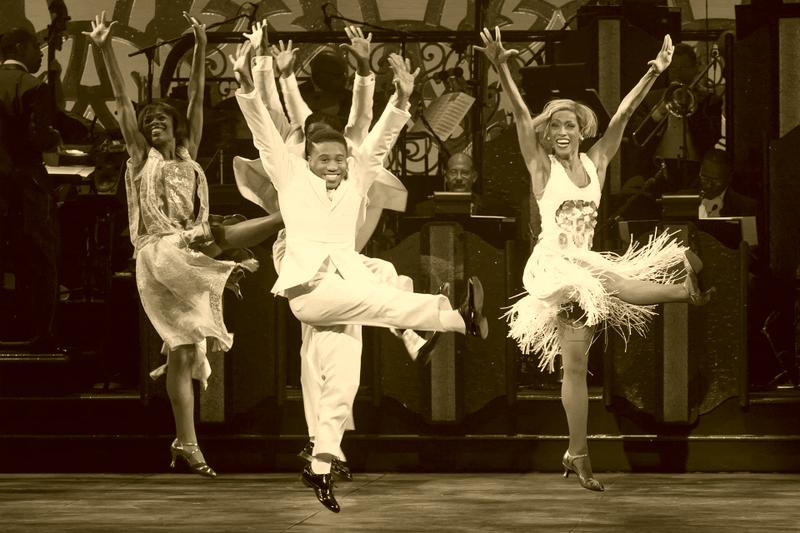
3 November, 2013 – 29 June, 2014
After Midnight is a musical revue that takes place "after midnight" in New York's Harlem. It features jazz pieces by Duke Ellington, Jimmy McHugh, Dorothy Fields and Harold Arlen, framed by the poetry of Langston Hughes. The show features an orchestra of 17 musicians, 25 vocalists, dancers and performers. It is headlined by a rotating list of performers. (Source: Wikipedia)
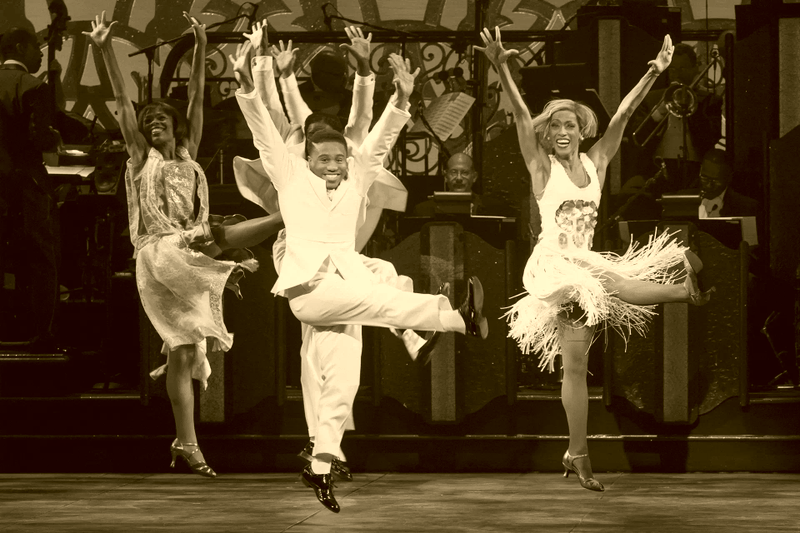
1987
Death and the King’s Horseman
Wole Soyinka (Playwright)
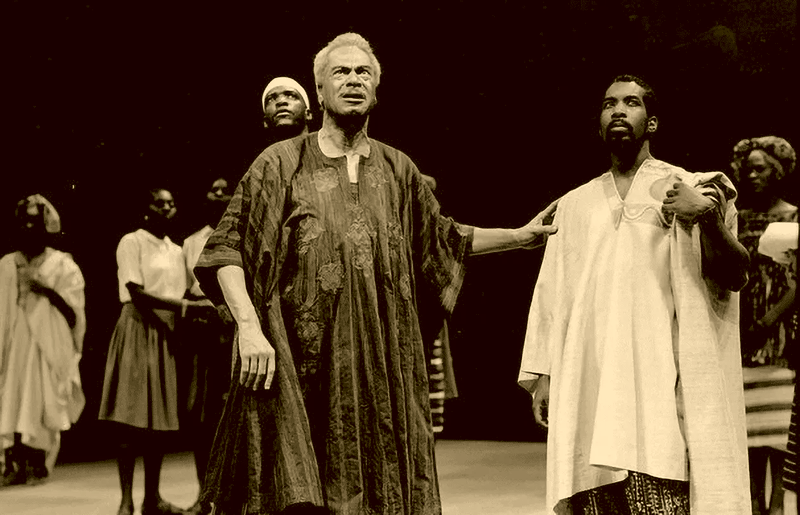
13 February – 9 March, 1987
Death and the King's Horseman builds upon the true story which Soyinka based the play off of, to focus on the character of Elesin, the King's Horseman of the title. According to Yoruba tradition, the death of the king must be followed by the ritual death of the king's horseman as well as the king's dog and horse, because the horseman's spirit is essential to helping the chief's spirit ascend to the afterlife. Otherwise, the king's spirit will wander the earth and bring harm to the Yoruba people. The first half of the play documents the process of this ritual, with the potent, life-loving figure Elesin living out his final day in celebration before the ritual process begins. At the last minute, the local British colonial ruler, Simon Pilkings, intervenes, the suicide being viewed as barbaric and illegal by the British authorities. In the play, the result for the community is catastrophic, as the breaking of the ritual means the disruption of the cosmic order of the universe and thus the well-being and future of the collectivity is in doubt. The community blames Elesin as much as Pilkings, accusing him of being too attached to the earth to fulfill his spiritual obligations. Events lead to tragedy when Elesin's son, Olunde, who has returned to Nigeria from studying medicine in Europe, takes on the responsibility of his father and commits ritual suicide in his place so as to restore the honour of his family and the order of the universe. Consequently, Elesin kills himself, condemning his soul to a degraded existence in the next world. In addition, the dialogue of the native suggests that this may have been insufficient and that the world is now “adrift in the void”.
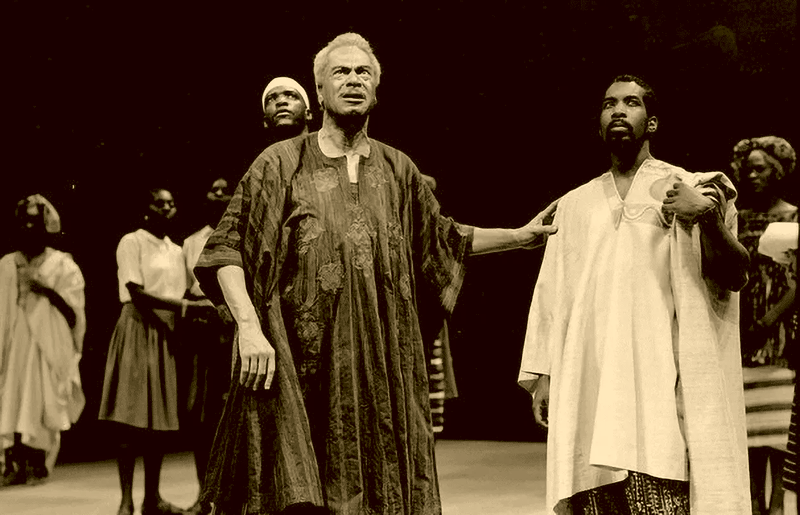
1898
A Trip to Coontown
Billy Johnson (Playwright), Bob Cole (Playwright)
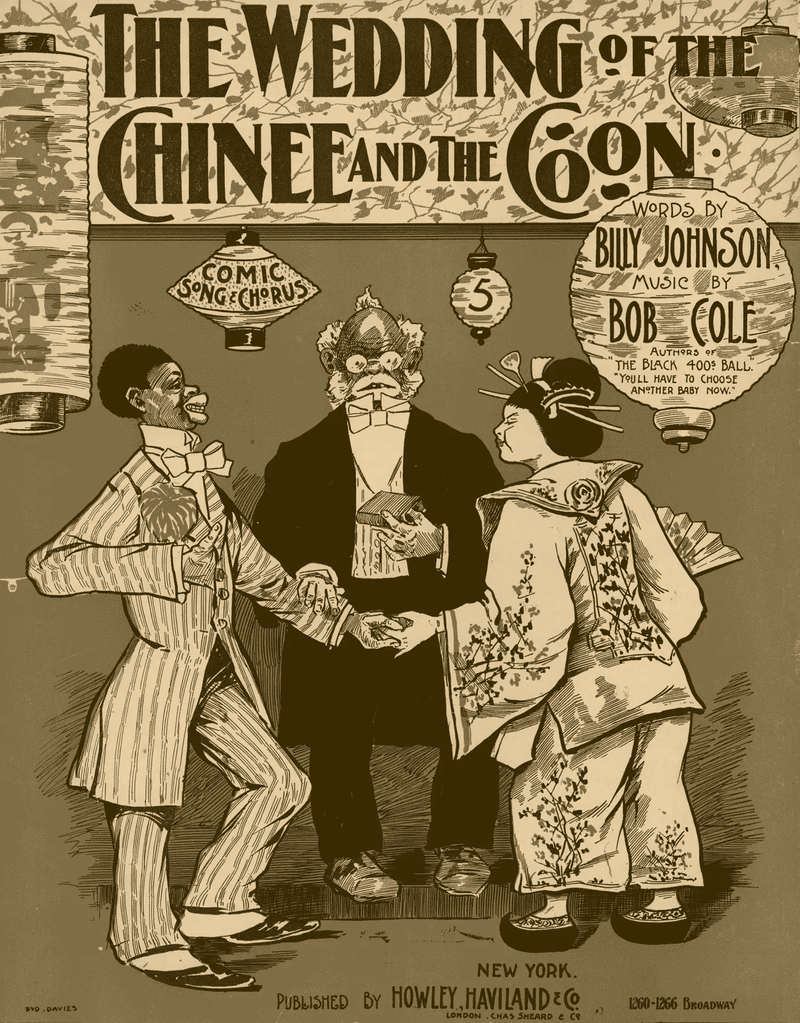
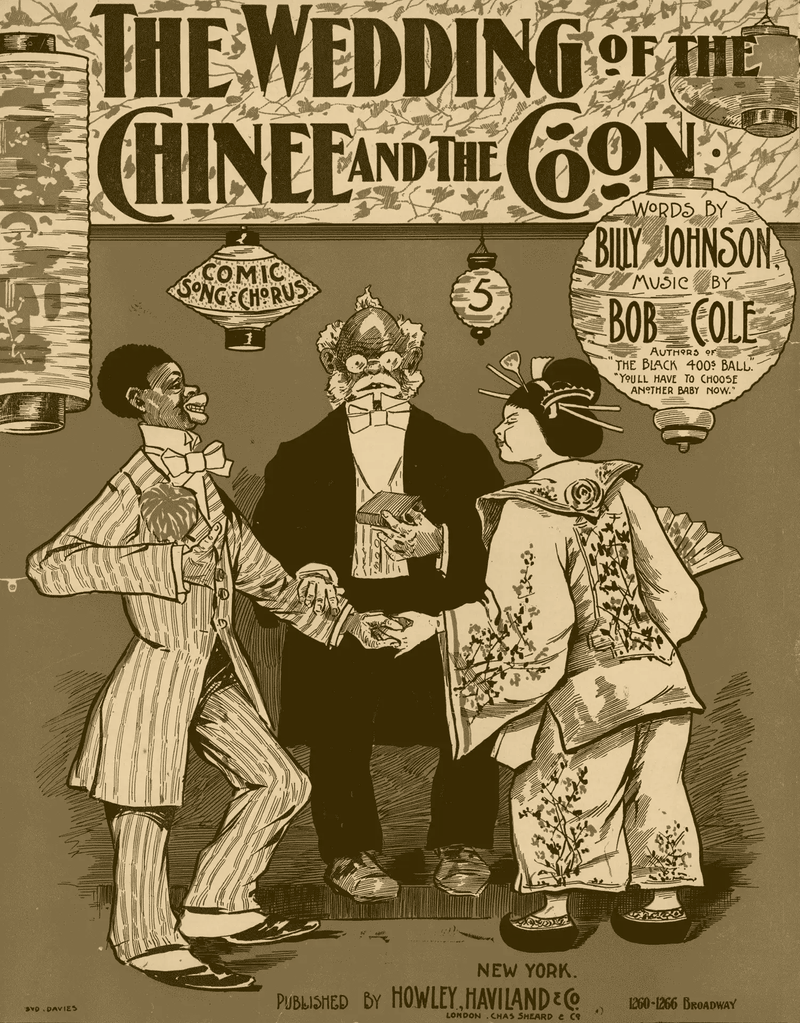
4 – 9 April, 1898
The first full-length New York musical comedy written, directed and performed exclusively by Black people. It relied on minstrel stereotypes to tell the story of con artist Jimmy Flimflammer's unsuccessful attempts to steal an old man's pension. With variety acts thrown in to keep things lively, the show had a successful tour and two runs in New York.
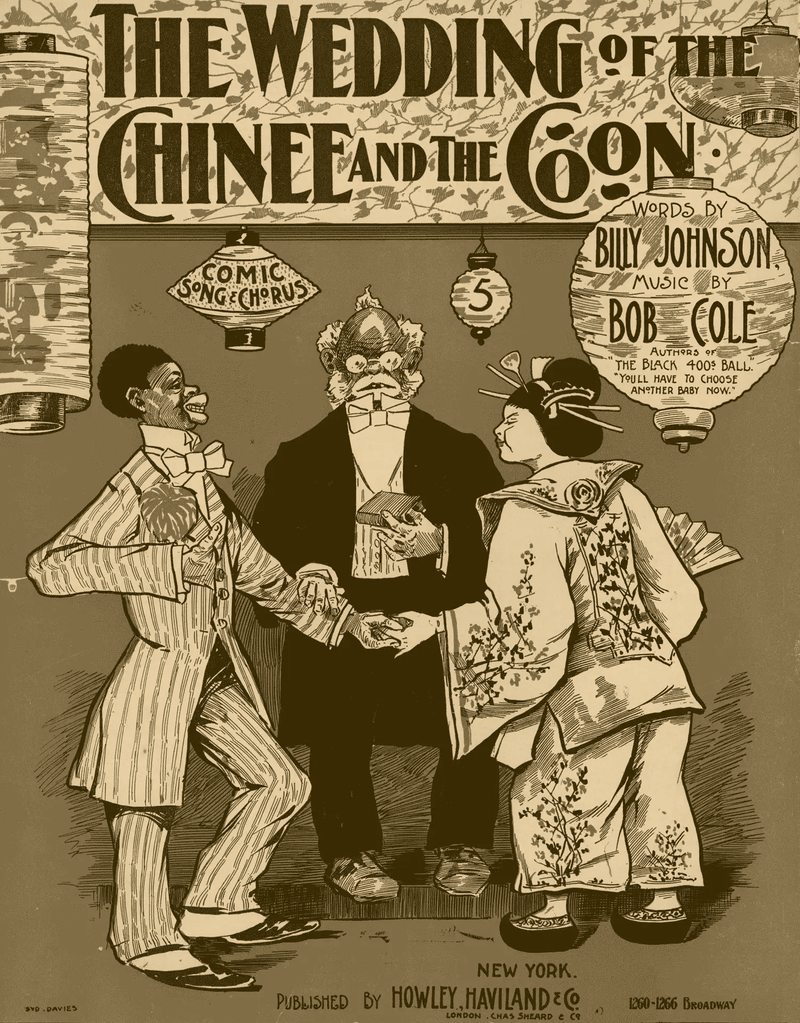
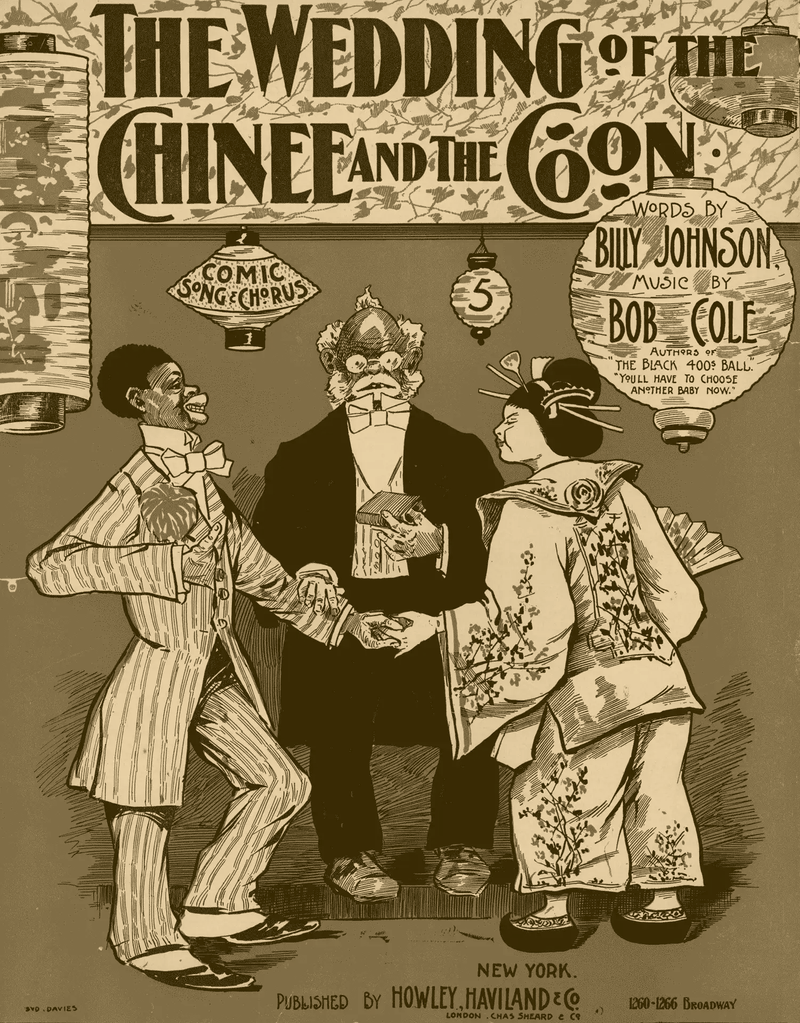
1955
Katherine Dunham and her Company
Katherine Dunham (Choreography)
22 November – 17 December, 1955
1974
What the Wine-Sellers Buy
Ron Milner (Playwright)
31 January – 17 March, 1974
Steve Carlton is a carefree high school student, not good enough to become the professional basketball player he'd like to be but never dreaming of the easy life provided by crime and pimping. His hard working mother becomes ill and his sinister neighbor Rico begins to pitch easy money. Steve's girl Mae, a cheerleader, dearly loves him. Under Rico's influence, Steve nearly decides to converted Mae into a prostitute. He sends her into the cellar with a middle aged lecher, but repents at the last moment and calls her back into his arms.
1994
Twilight: Los Angeles, 1992
Anna Deveare Smith (Playwright)
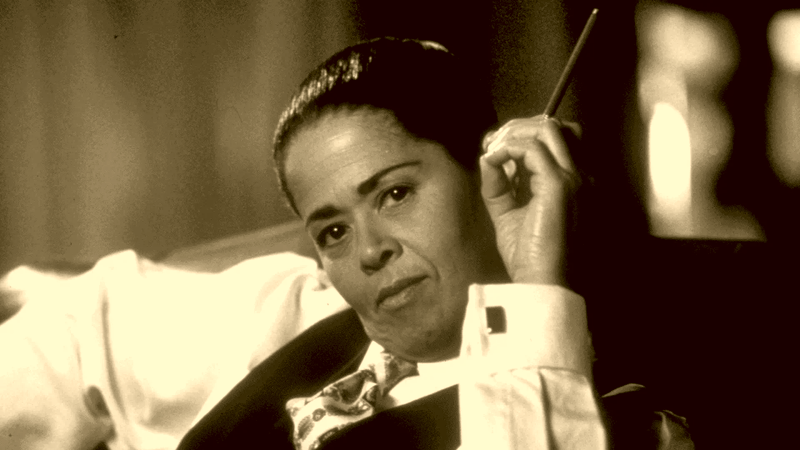
10 April – 19 June, 1994
Twilight: Los Angeles, 1992 is a one-woman play written and originally performed by Anna Deavere Smith, an American actress, playwright and professor. It is about the 1992 Los Angeles riots. The play is composed of a series of monologues by real people connected directly and indirectly to the riots. Smith chose the texts of the monologues and the subjects from interviews that she had conducted with more than 300 individuals in the process of researching the play.
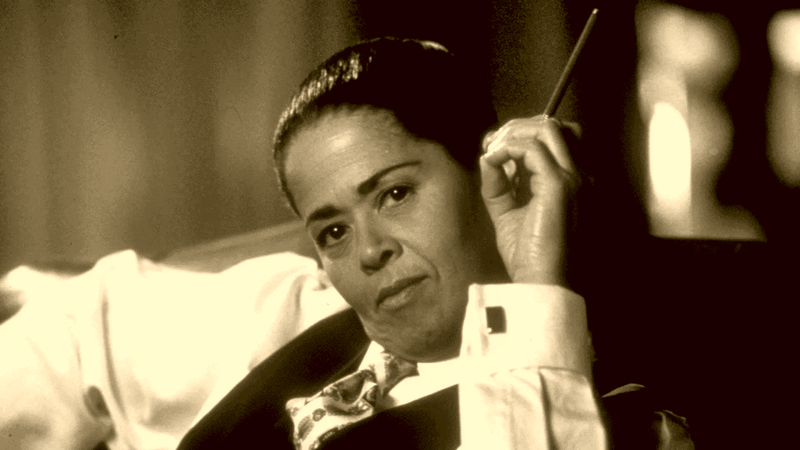
2017
Jitney
August Wilson (Playwright)
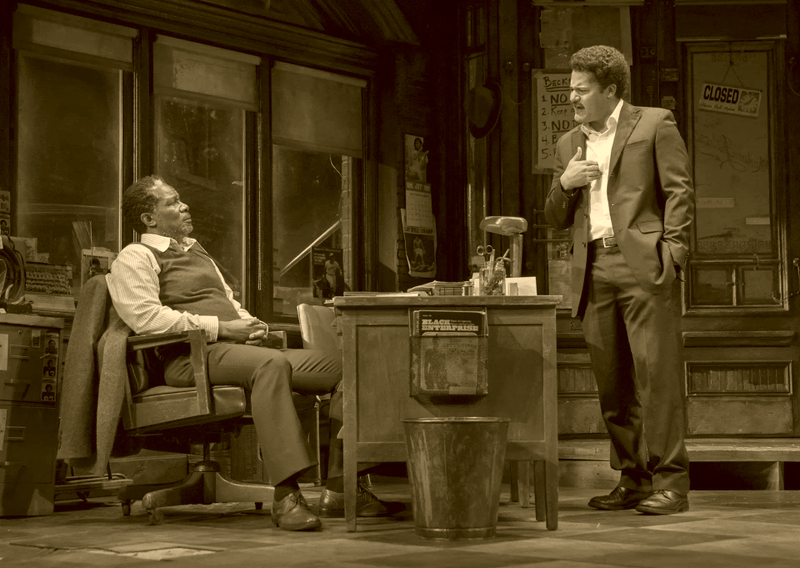
19 January – 12 March, 2017
Jitney is the eighth play in August Wilson’s Pittsburgh Cycle. It takes place in The Hill District of Pittsburgh in 1977, in a gypsy cab station, during Pittsburgh’s period of so-called “urban renewal.” As the city tries to shut down businesses — including the cab station — to make way for new building, we meet five gypsy cab drivers struggling to survive. Wilson’s ensemble piece puts human faces to the process of gentrification seizing the United States, telling of the specific human struggles of Becker, Youngblood, Turnbo, Fielding and Doub as they cling to a nostalgic past, while reaching for an uncertain future. Becker, the owner of the cab station, descends into an emotional spiral when his son, Booster, comes out of jail, where he served time after murdering his ex-girlfriend who falsely accused him of raping her. Youngblood has saved up enough money to buy a house for himself, his girlfriend, and their two-year-old son, Jesse, but even this grand gesture fails to redeem him in the eyes of his girlfriend, Rena, who refuses to forgive him for his unfaithful past. Turnbo is an older man who is distressed with the manners of the young people today, especially those of fellow cab driver, Youngblood, and is obsessed with comparing their actions to those he remembers from his happier past. Recovering alcoholic Fielding, who used to be a tailor, is waging an ongoing battle against his alcoholism, even as his continued drunkenness threatens his job. Doub is a Korean War Veteran, and a longtime jitney driver, who equates his time at war where ‘they never paid [him] no mind’ to the experiences he and his black colleagues have with white men today. Over the course of the play, all five of these men and the characters that come in and out of their lives pose questions about how we can heal past wounds and leap into a less-than-certain future.
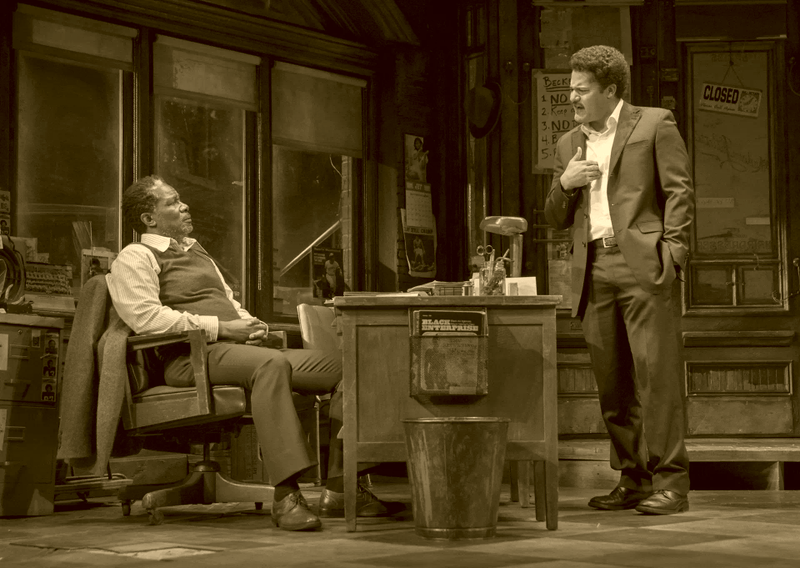
1896
Oriental America
John William Isham (Book, Lyrics)
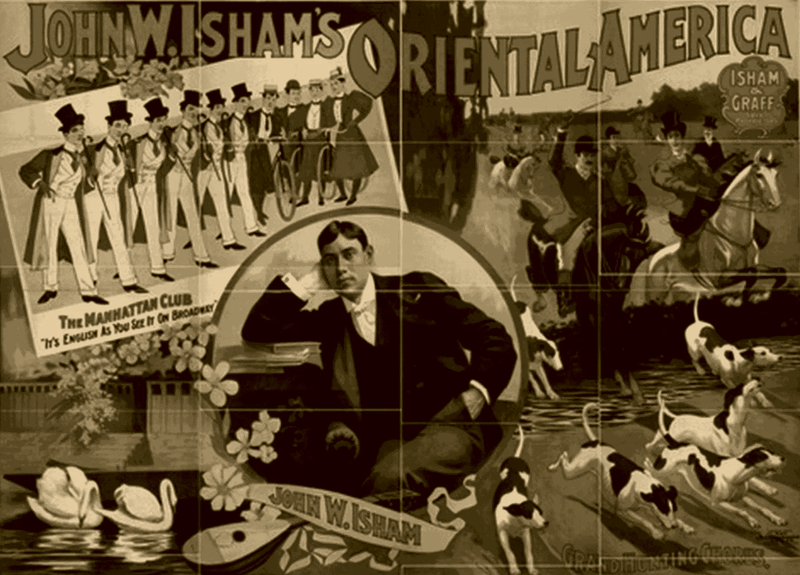
November, 1896
The first show to appear on Broadway with an all-African American cast. It was a song and dance revue based on the minstrel show format. Isham had some African-American ancestry but was fair-skinned and often passed for white.
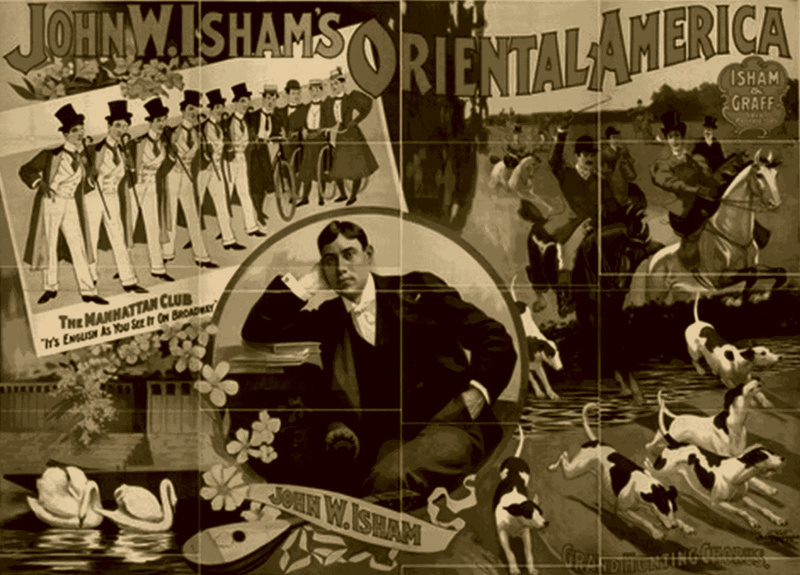
1939
Swingin’ The Dream
Thomas “Fats” Waller (Music)
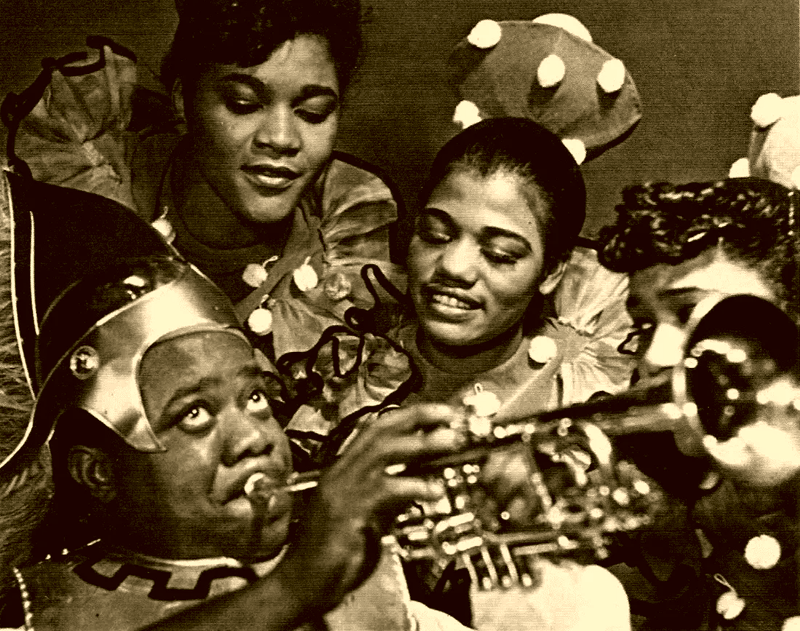
29 November – 9 December, 1939
A jazz interpretation of Shakespeare's A Midsummer Night’s Dream that played the cavernous Center Theatre in the fall of 1939. It ran for only 13 performances despite having all of the above, plus Maxine Sullivan as Titiania (Armstrong was Bottom, and McQueen was Puck), comedian "Moms" Mabley as Quince, the Benny Goodman Sextet on one side of the stage and Bud Freeman's Summa Cum Laude band on the other, as well as Don Voorhees conducting a 50 member pit band in the center. In addition, Jimmy Van Heusen and Eddie De Lange wrote the score, including the hit "Darn That Dream" for the show. the show also featured songs by an array of jazz composers such "Ain't Misbehavin" by Fats Waller, "Jeepers Creepers" by Harry Warren and Johnny Mercer, and "I Can't Give You Anything But Love" by Jimmy Hugh with lyrics by Dorothy Fields. Why did it fail? Reviews at the time say it had too much Shakespeare and not enough jitterbug. Others say it was the wrong venue for a show that needed the audience closer to the action in order for the music to have the full effect. We can't tell if the critics are right because no complete script has ever been found, and this was the last true Broadway production in the theater, although it was later used for a season of opera, and subsequently for ice shows before it was torn down in 1954. (Source: Al Hisrchfeld Foundation)
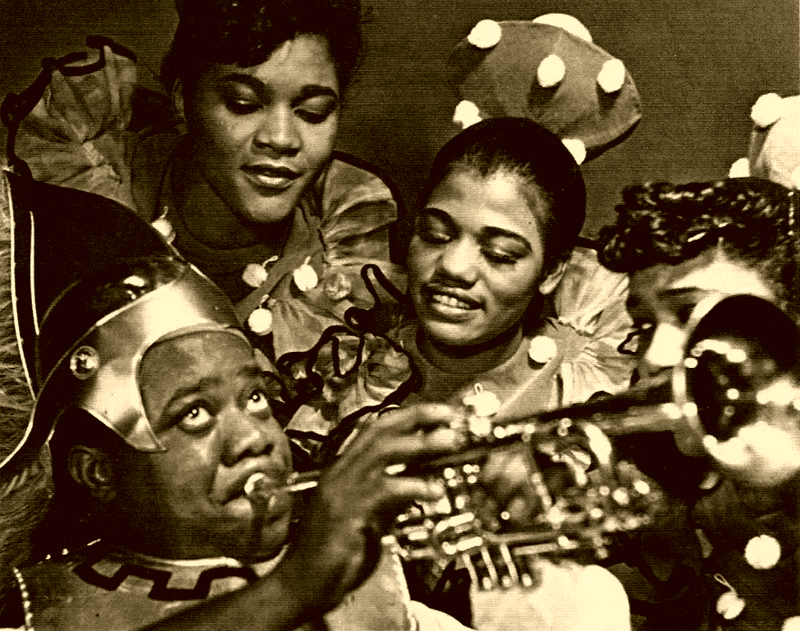
1900
Jes Lak White Folks
Paul Laurence Dunbar (Book, Lyrics), Will Marion Cook (Music)
1900
A black soldier dreams that his daughter has all the opportunities and privileges that white folks’ daughters have, until he discovers that troubles go along with affluence. It was staged closer to an actual Broadway theater than any previous black-written, produced and cast show. It was just on the outdoor roof portion, rather than inside.
1972
The Sign in Sidney Brustein’s Window (1972 Revival)
Lorraine Hansbury (Playwright)
17 – 29 January, 1972
Sidney, an intellectual writer and his wife, Iris, who are in a difficult marriage, struggle through life in New York City's Greenwich Village neighborhood. Alton Scales is an African-American activist and Sidney's friend who falls in love with Iris's beautiful sister Gloria, a supposed international model. But, Gloria's idealistic image is shattered when Alton learns that she is a prostitute and not an international model as she and her sister Iris had insisted. Wrought with anguish at the idea of his beloved being used as a commodity, and tying it to the same ideology used to justify the African slave trade, Alton leaves Gloria. In an act of desperation and shame, Gloria commits suicide.
1932
Chamberlin Brown’s Scrapbook
Thomas “Fats” Waller (Music), Eubie Blake (Music)
1 – 8 August, 1932
A musical revue set in vaudeville style. (Source: Wikipedia) Perhaps Chamberlain Brown’s most controversial Broadway play was Chamberlain Brown’s Scrap Book that opened at the Ambassador Theatre in 1932. He classified it as a “vaudeville,” thus permitting more than eight performances a week. However, Actors’ Equity Association ruled the show a revue and demanded its members give immediate notice. A week later, the ruling was overturned, but Chamberlain Brown’s victory was short-lived, since the musicians refused to work without being paid first, causing the production to close. (This incident is documented in correspondence with Actors’ Equity Association.) His stock production of A Church Mouse ran at the Mansfield Theatre in June and July of 1933. (Source: NYPL)
1922
Liza
Irvin C. Miller (Book), Maceo Pinkard (Music, Lyrics)
27 November, 1922 – 21 April, 1923
A musical written as a sequel to Shuffle Along. Credited as the first black musical comedy owned and produced on Broadway entirely by black capital. Concerned a woman—the daughter of a small-town mayor— who has fallen in love with a schoolteacher. The young man is unjustly accused of embezzling public funds. In the end the truth comes to light, the young man is exonerated, and the happy couples are able to wed.
1905
The Southerners
Will Marion Cook (Music), Will Mercer (Book, Lyrics), Richard Grant (Book, Lyrics)
23 May – 25 June, 1905
The first Broadway musical with an integrated cast. Plot unclear.
1959
A Raisin in the Sun
Lorraine Hansbury (Playwright)
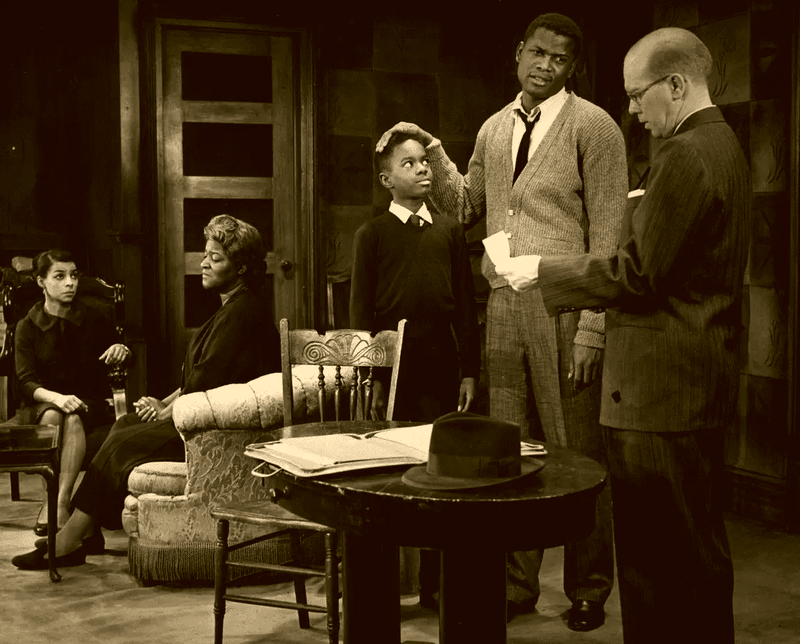
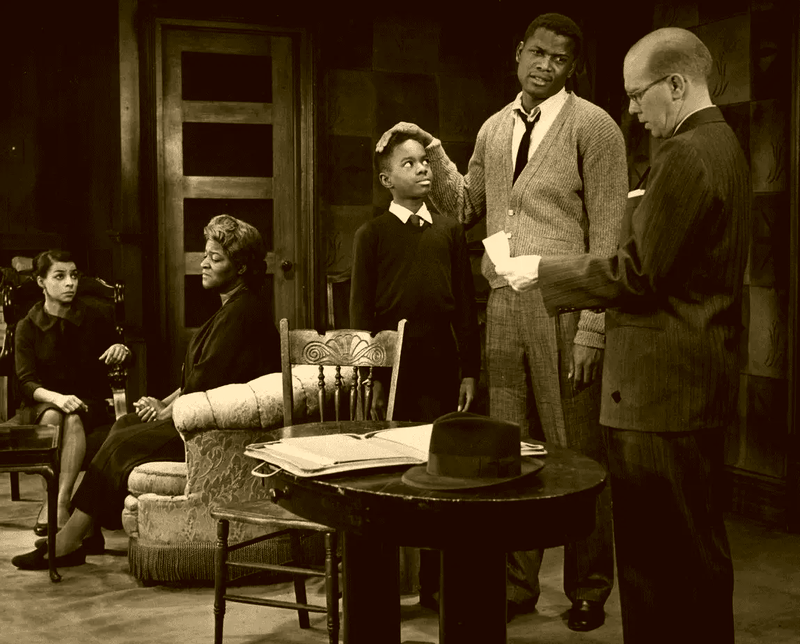
19 October – 25 June, 1960
At the beginning of the play, Walter and Beneatha's father has recently died, and Mama (Lena) is waiting for a life insurance check for $10,000. Walter has a sense of entitlement to the money, but Mama has religious objections to alcohol and Beneatha has to remind him it is Mama's call how to spend it. Eventually, Mama puts some of the money down on a new house, choosing an all-white neighborhood over a black one for the practical reason that it happens to be much cheaper. Later she relents and gives the rest of the money to Walter to invest with the provision that he reserve $3,000 for Beneatha's education. Walter passes the money on to Willy's naive sidekick Bobo, who gives it to Willy, who absconds with it, depriving Walter and Beneatha of their dreams, though not the Youngers of their new home. Meanwhile, Karl Lindner, a white representative of the neighborhood they plan to move to, makes a generous offer to buy them out. He wishes to avoid neighborhood tensions over the interracial population, which to the three women's horror Walter prepares to accept as a solution to their financial setback. Lena says that while money was something they try to work for, they should never take it if it was a person's way of telling them they weren't fit to walk the same earth as they. Meanwhile, Beneatha’s character and direction in life are being defined for us by two different men: Beneatha’s wealthy and educated boyfriend George Murchison, and Joseph Asagai. Neither man is actively involved in the Youngers' financial ups and downs. George represents the “fully assimilated black man” who denies his African heritage with a “smarter than thou” attitude, which Beneatha finds disgusting, while dismissively mocking Walter's lack of money and education. Joseph patiently teaches Beneatha about her African heritage; he gives her thoughtfully useful gifts from Africa while pointing out she is unwittingly assimilating herself into white ways. She straightens her hair, for example, which he characterizes as “mutilation.” When Beneatha becomes distraught at the loss of the money, she is upbraided by Joseph for her materialism. She eventually accepts his point of view that things will get better with a lot of effort, along with his proposal of marriage and his invitation to move with him to Nigeria to practice medicine. Walter is oblivious to the stark contrast between George and Joseph: his pursuit of wealth can be attained only by liberating himself from Joseph's culture, to which he attributes his poverty, and by rising to George's level, wherein he sees his salvation. Walter redeems himself and black pride at the end by changing his mind and not accepting the buyout offer, stating that the family is proud of who they are and will try to be good neighbors. The play closes with the family leaving for their new home but uncertain future. (Source: Wikipedia)
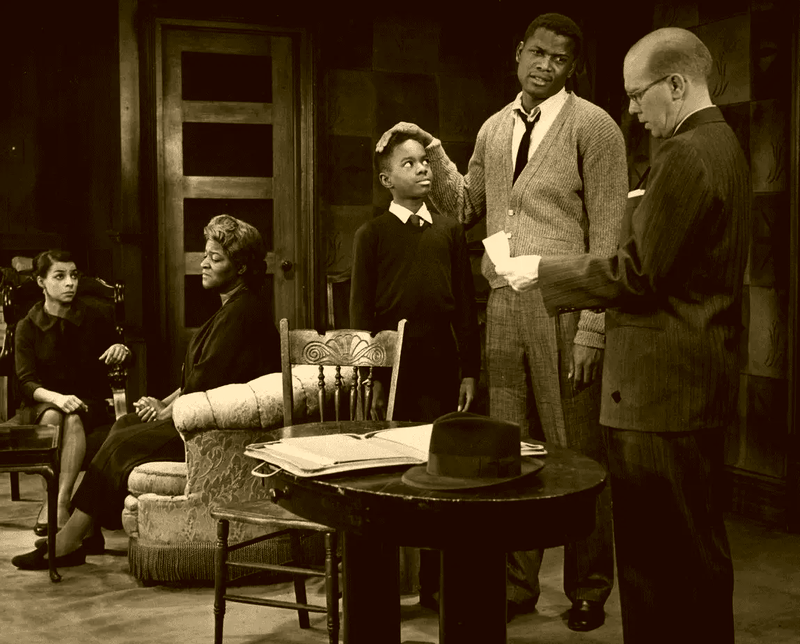
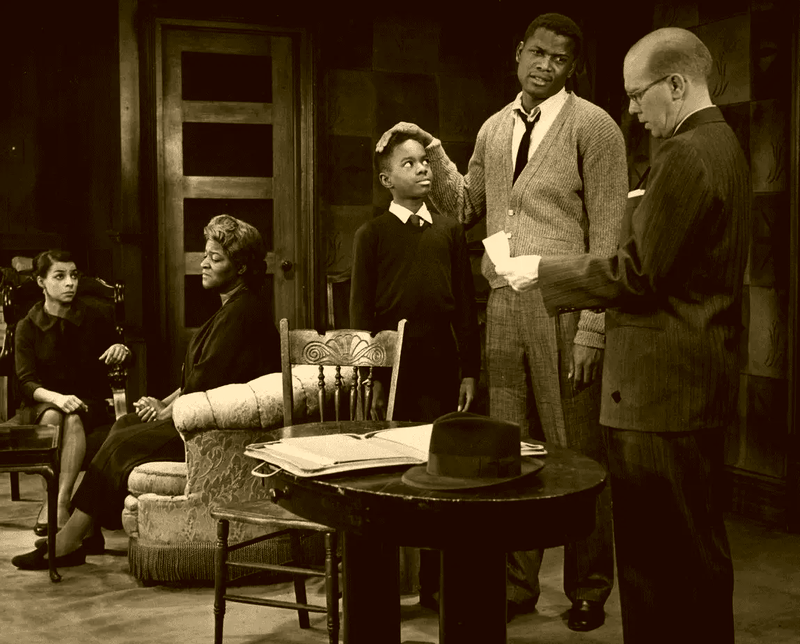
1923
Runnin’ Wild
F.E. Miller (Book), Cecil Mack (Music, Lyrics)
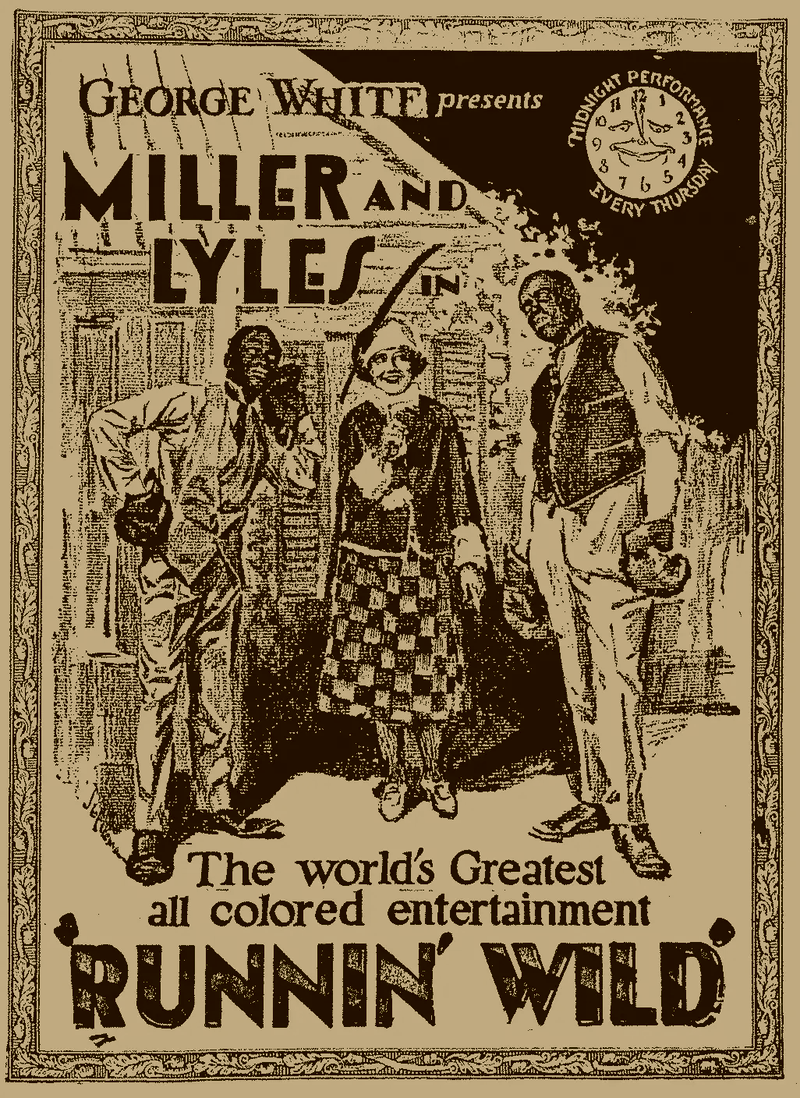
29 October, 1923 – 28 June, 1924
Runnin’ Wild, a two-act musical comedy taking place in Jimtown and St. Paul, MN, about the adventures of two likable scamps played by F. E. Miller and Aubrey Lyles. The feature tune of the show was Old Fashioned Love. The tune that went on to become the “theme song” of the jazz age was Charleston, which popularised the dance style.
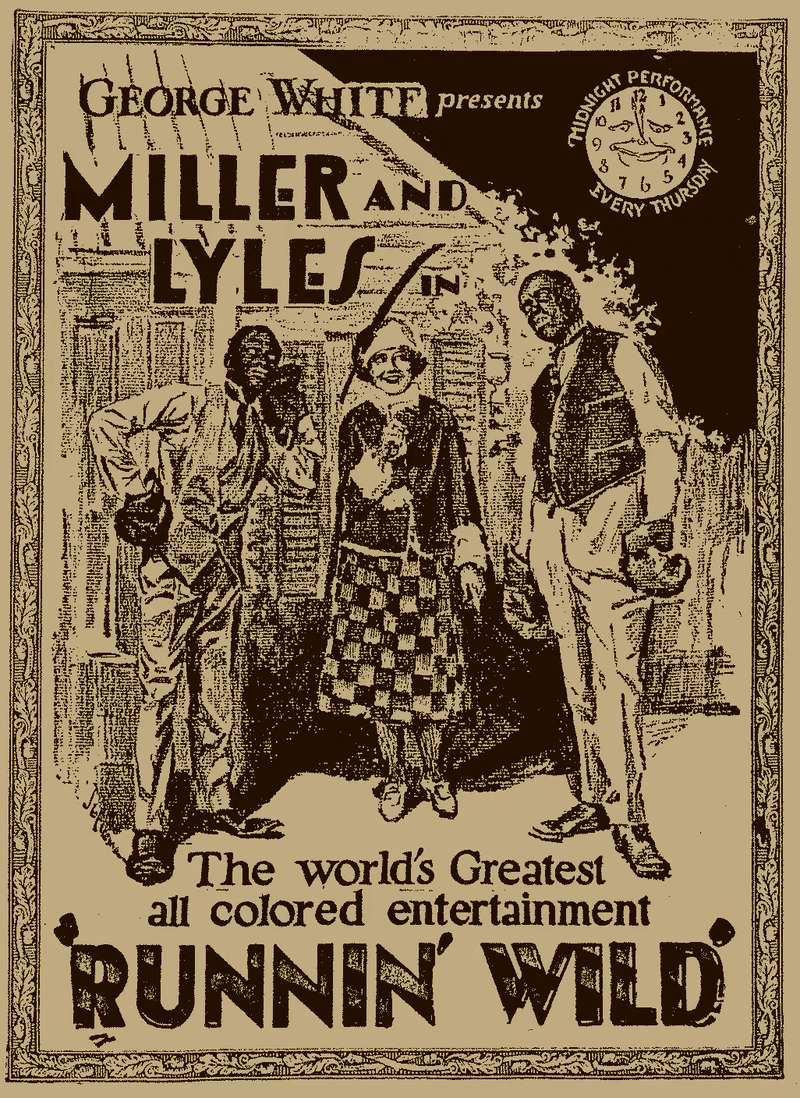
1978
Eubie!
F.E. Miller (Book)
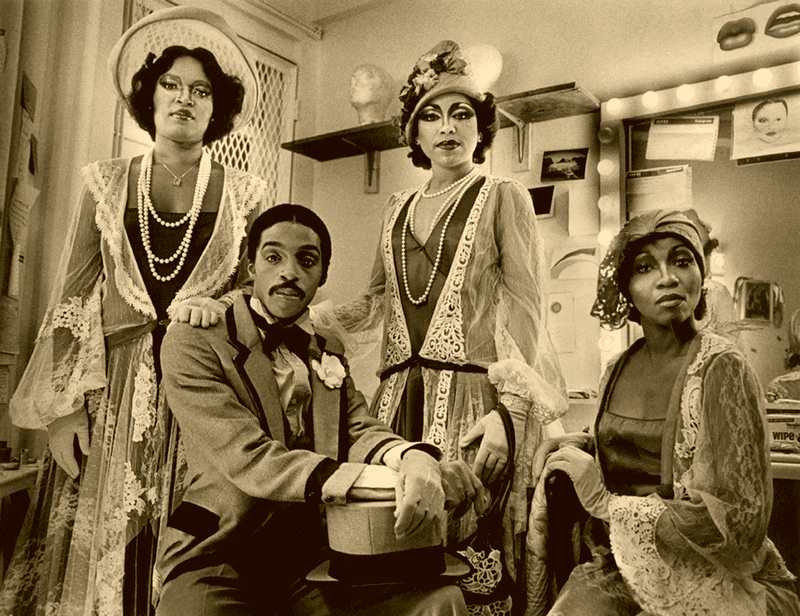
20 September, 1978 – 7 October, 1979
Eubie! Is a revue featuring the music of jazz/swing composer Eubie Blake, with lyrics by Noble Sissle, Andy Razaf, Johnny Brandon, F. E. Miller, and Jim Europe. As with most revues, the show features no book, but instead showcases 23 of Eubie Blake’s best songs. (Source: Wikipedia)
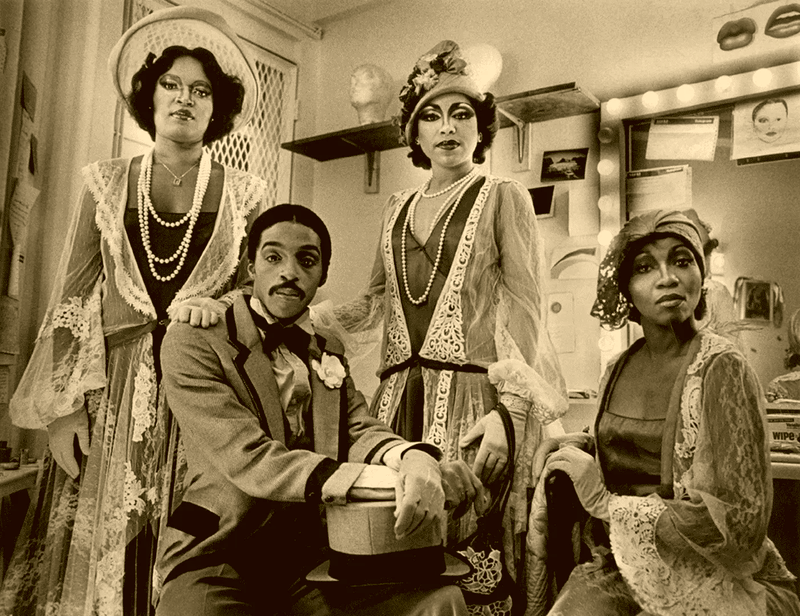
2009
Fela!
Bill T. Jones (Playwright)
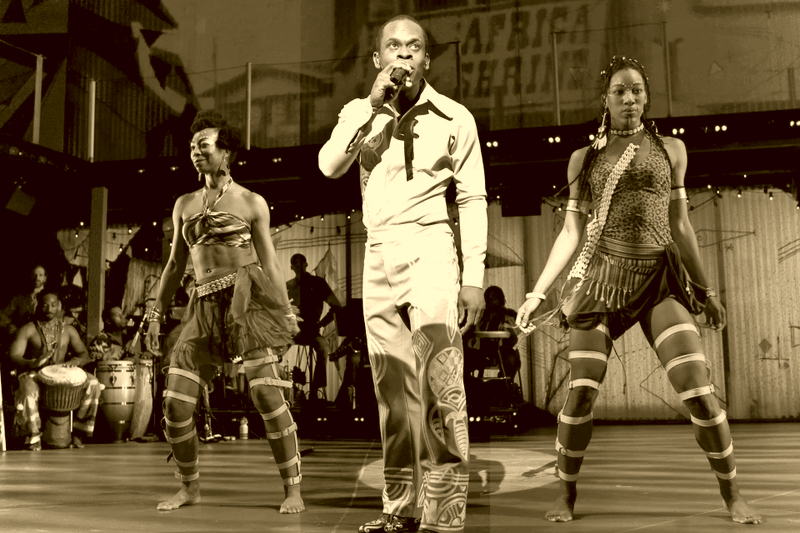
23 November – 2 January, 2011
Fela! takes place around 1977, at the height of Fela Kuti's influence as a composer and performer in Nigeria. Kuti was an originator of the Afrobeat sound, and the musical opens with him addressing the audience from a concert at his club, the Afrika Shrine in Nigeria's largest city, Lagos. Kuti indicates that the Afrika Shrine had become a hugely popular venue, and a gathering place for youth opposed to Nigeria's military dictatorship. The show depicts the army raid of Kuti's compound (a commune he called Kalakuta Republic), reportedly by 1000 soldiers, which followed the release of Zombie. The raid culminates with the torture of Kuti, his wives and other commune residents, and the murder of his mother. The show concludes with a protest staged by Kuti in October 1979, accompanied by his family and members of the Young African Pioneers. The show concludes with symbolic coffins being laid on the stage to protest injustices suffered by the people of Nigeria and throughout Africa. (Source: Wikipedia)
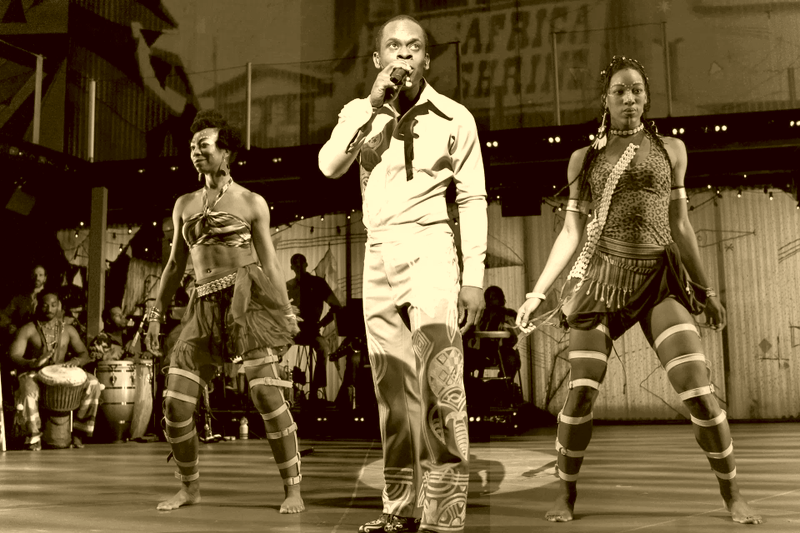
1906
Abyssinia
Will Marion Cook (Music), Jesse A. Shipp (Book)
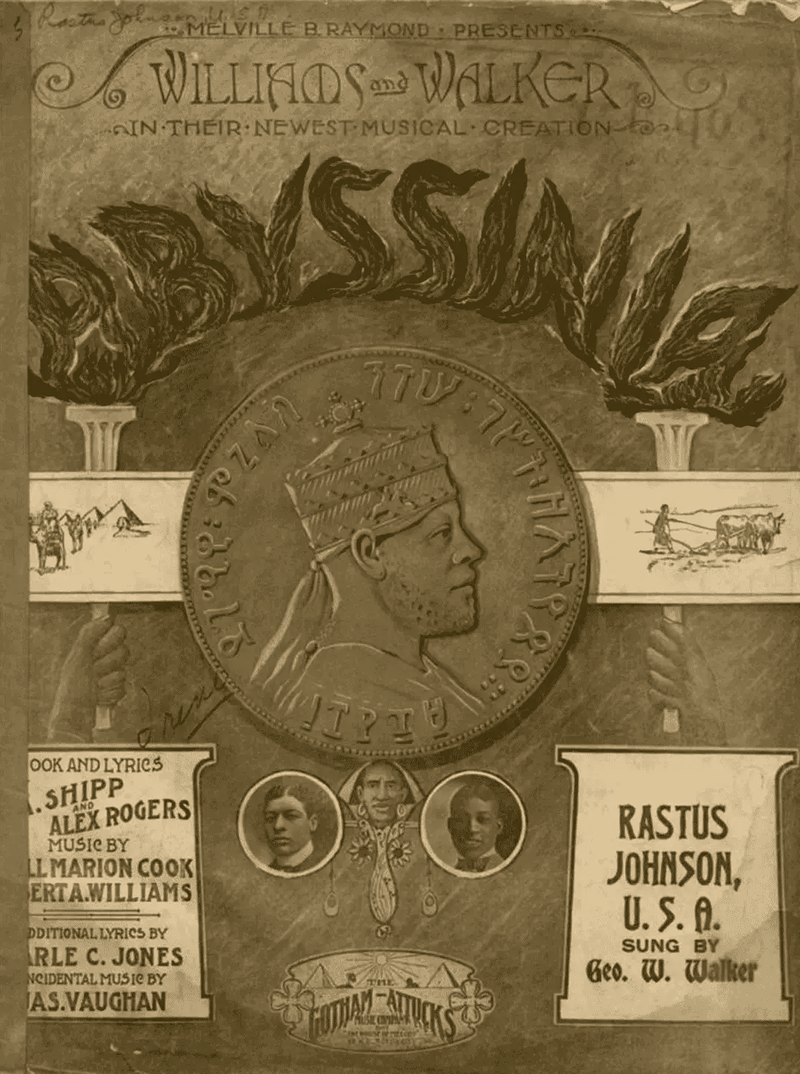
20 February, 1906 – 1 August, 1906
Williams and Walker’s second collaboration performing for Broadway. Abyssinia told the story of Rastus Johnson, played by Walker, winning a lottery and taking his dim-witted pal Jasmine Johnson, Williams’ character, to the African country of their ancestors. The duo’s misadventures land them before Abyssinia’s ruthless monarch Menelik, who bangs a gong to determine whether they’ll live or die: three bangs means death, four indicate life. At the show’s climax, after an extremely memorable pause, Menelik banged it a fourth time. In contrast to the African characters’ perfect English, Williams delivered his lines in minstrel jive.
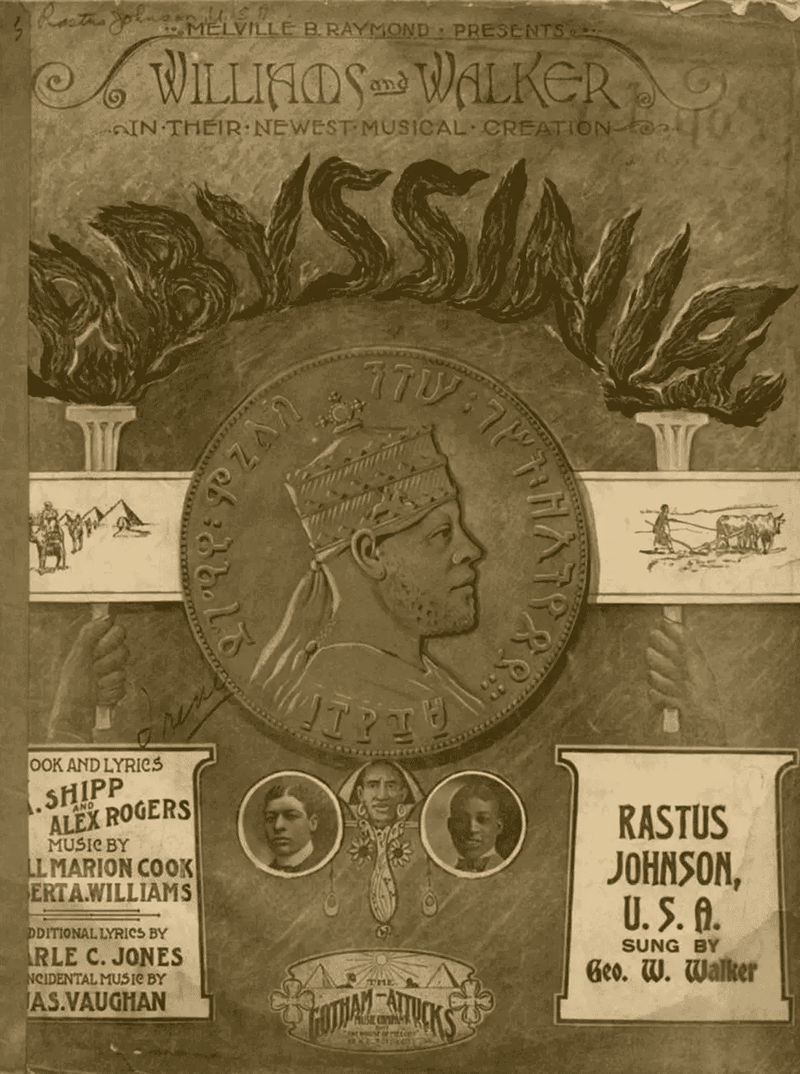
2018
Summer: The Donna Summer Musical
Donna Summer (Music, Source Material), Colman Domingo (Book)

23 April – 30 December, 2018
Musical based on the life of musician Donna Summer.

1933
Run, Little Chillun
Hall Johnson (Music Director)
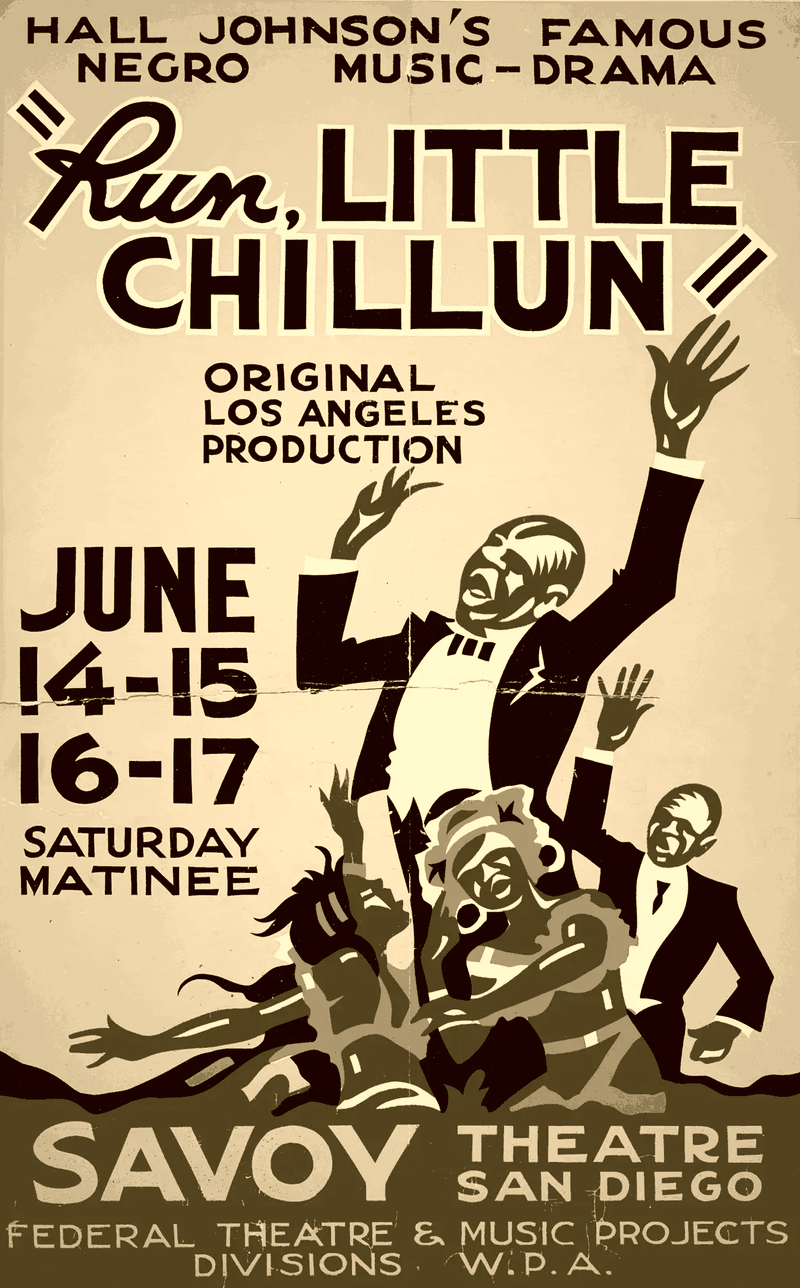
1 March – 17 June, 1933
“Religious and pagan forces conflict in a black Southern town.”—Playbill “Set in the imaginary town of “Toomer’s Bottom” in the rural South in 1929, Run, Little Chillun dramatized the plight of Jim, a minister’s son battling an existential conflict between two competing religious groups—his church, Hope Baptist, where he was groomed to be a pastor, and the nature-worshipping New Day Pilgrim cult. Jim is also torn between two lovers: his pious wife, Ella, and the town’s wayward vixen, Sulamai.” (Source: Performing Negro Folk Culture, Performing America: Hall Johnson’s Choral and Dramatic Works (1925–1939), A dissertation presented by Micah Wittmer)
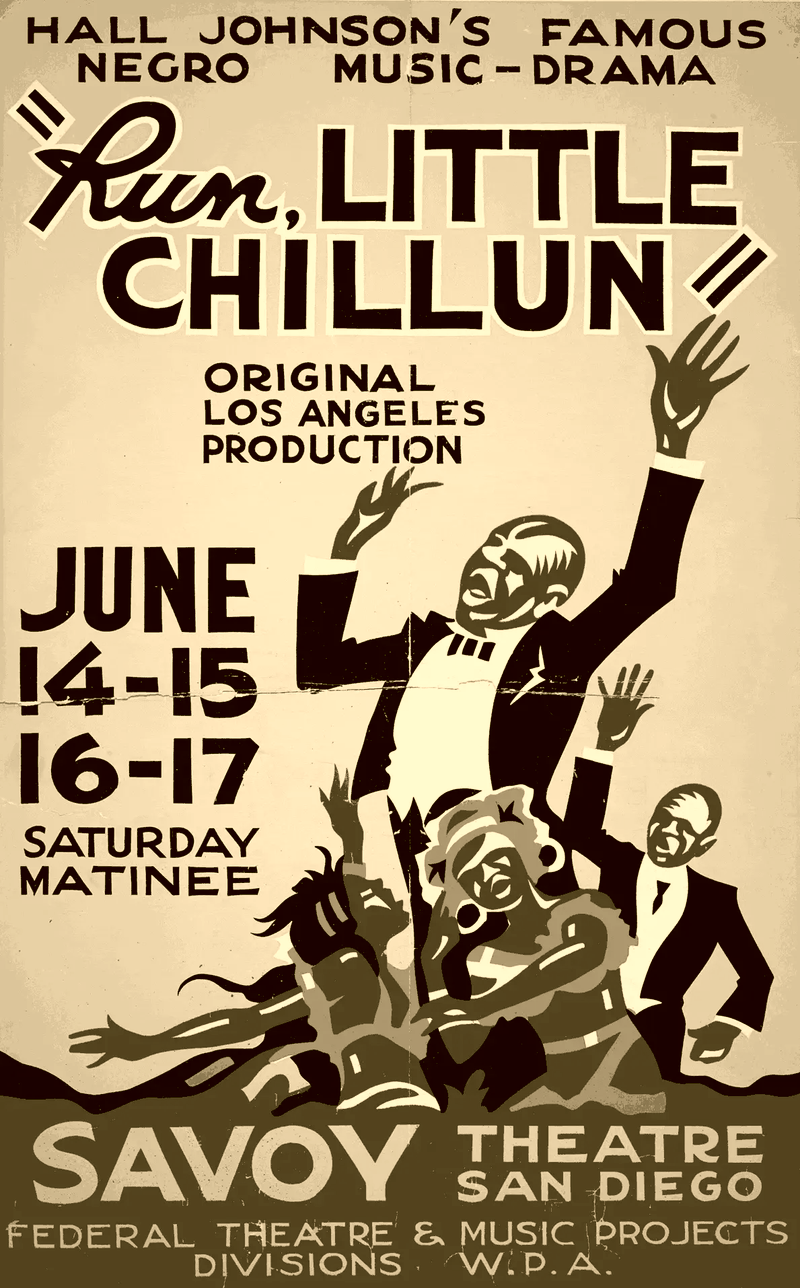
2012
The Gershwins' Porgy and Bess
Diedre Murray (Playwright), Suzan-Lori Parks (Playwright)
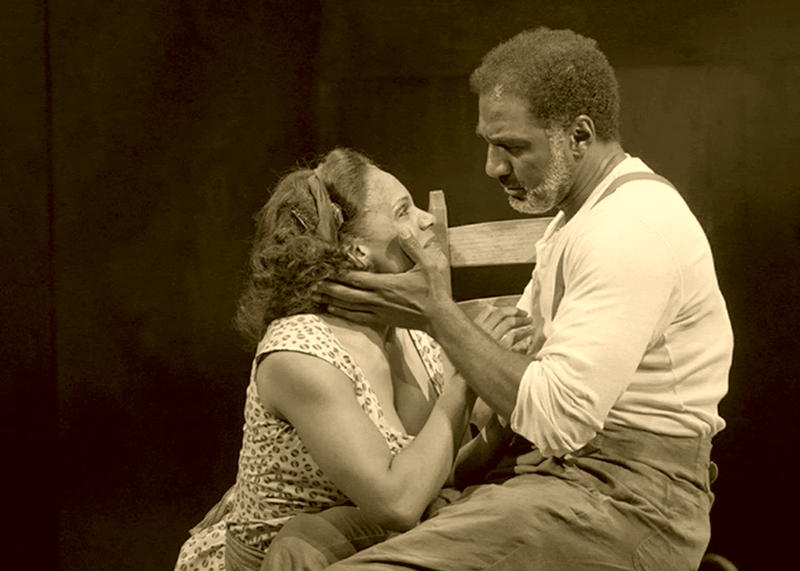
12 January, 2012 – 23 January, 2012
The libretto of Porgy and Bess tells the story of Porgy, a disabled black street-beggar living in the slums of Charleston. It deals with his attempts to rescue Bess from the clutches of Crown, her violent and possessive lover, and Sportin' Life, her drug dealer. The opera plot generally follows the stage play. In this 2012 revival, spoken dialogue, written by Parks, replaced the opera’s sung recitatives.
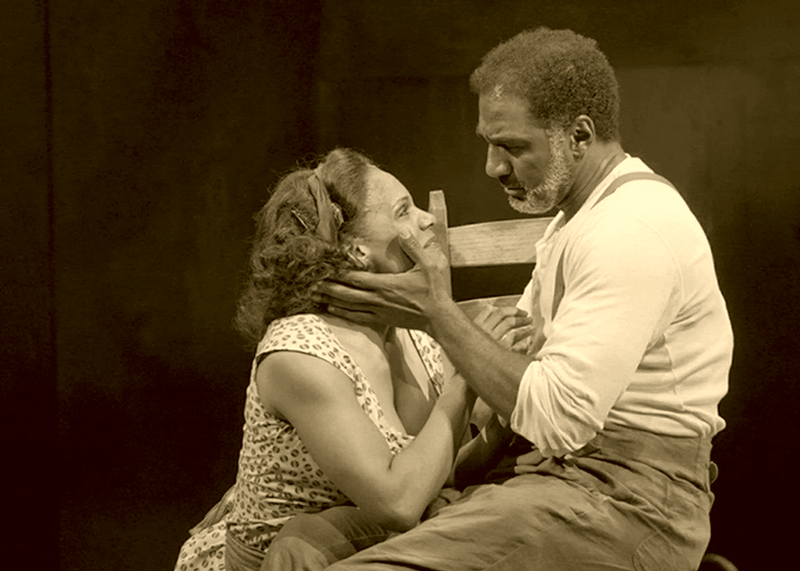
1993
Song of Jacob Zulu
Ladysmith Black Mambazo (Music), Tug Yourgrau (Playwright, Lyrics)
17 March – 9 May, 1993
The Song of Jacob Zulu is an American play that debuted on Broadway in 1993. Written by Tug Yourgrau, with music and lyrics by Ladysmith Black Mambazo, and produced by the Steppenwolf Theatre Company, the play is a drama set during Apartheid in South Africa.
1976
Bubbling Brown Sugar
Rosetta LeNoire (Playwright), Loften Mitchell (Playwright)
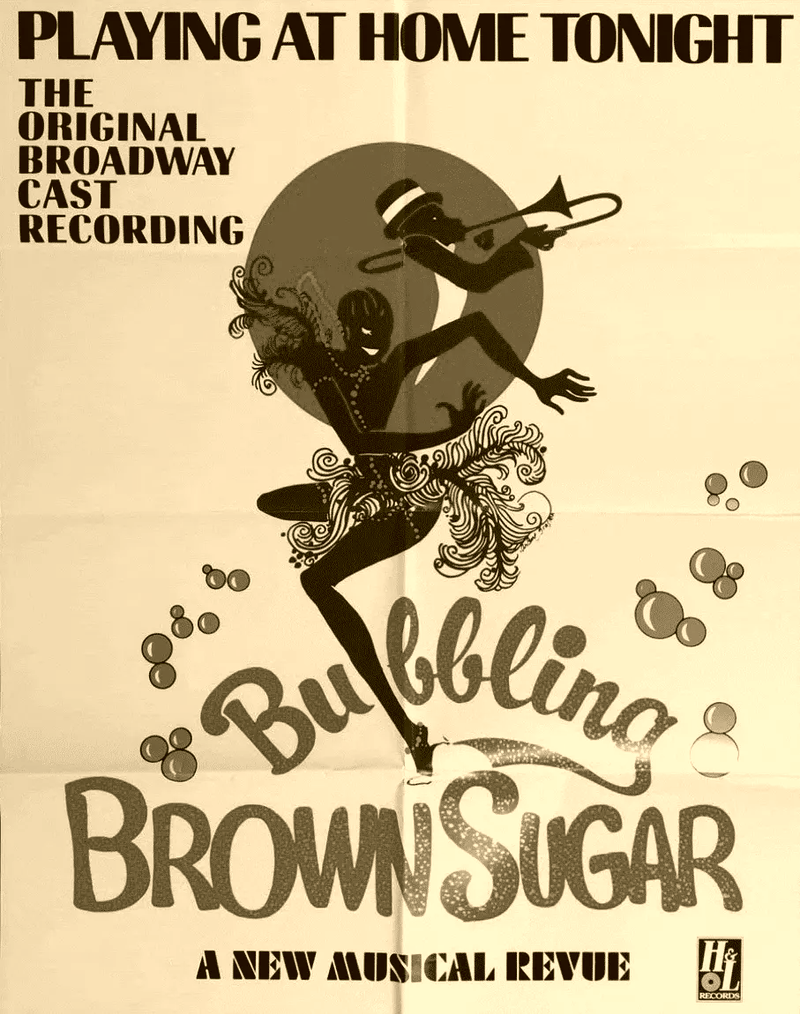
20 February, 1976 – 31 December, 1977
A musical revue written by Loften Mitchell based on a concept by Rosetta LeNoire and featuring the music of numerous African-American artists who were popular during the Harlem Renaissance, 1920–1940, including Duke Ellington, Eubie Blake, Count Basie, Cab Calloway and Fats Waller.
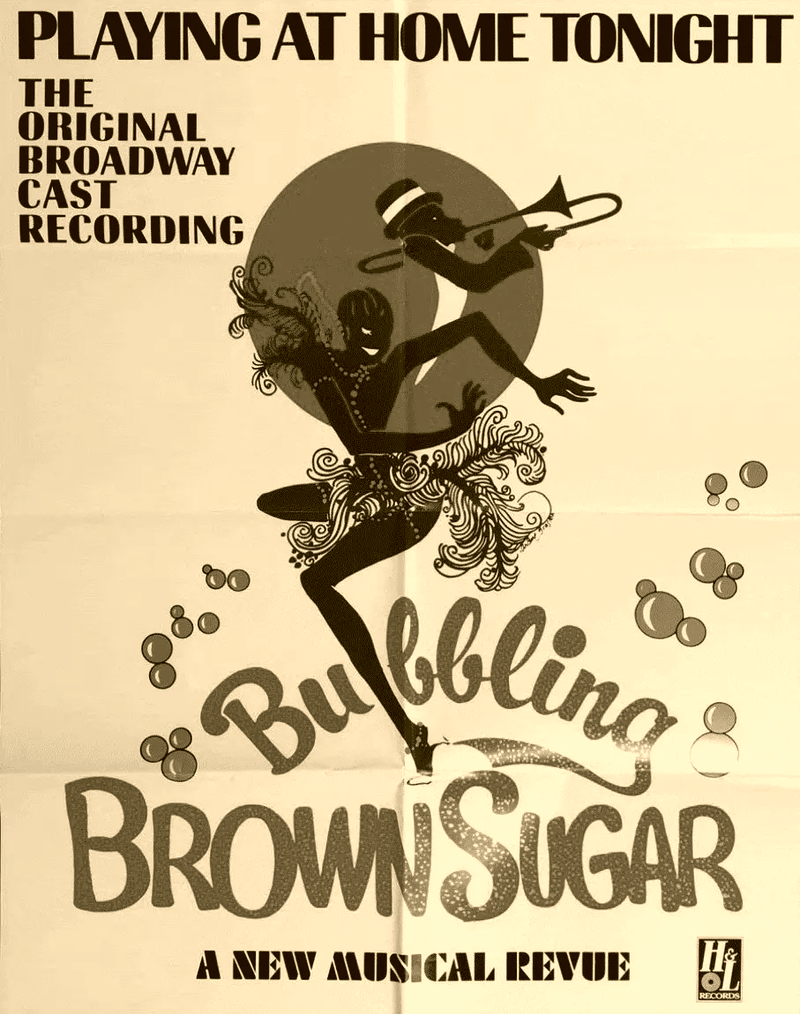
2004
Gem of the Ocean
August Wilson (Playwright)
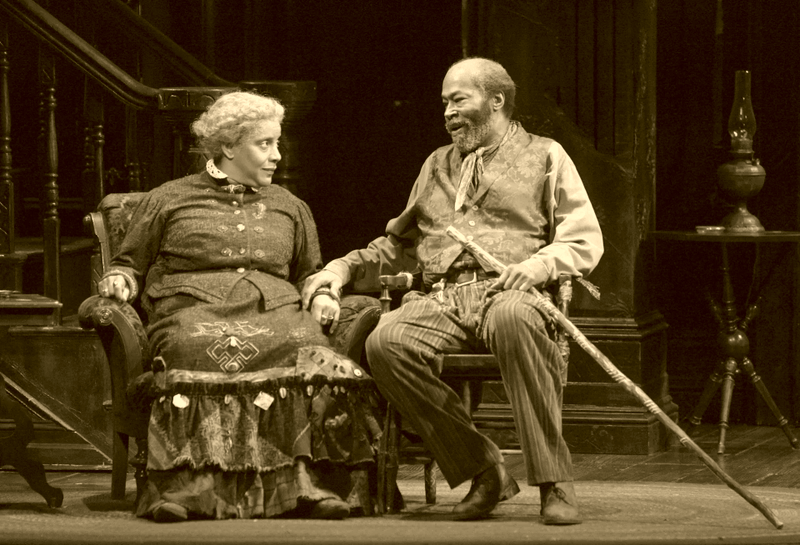
6 December, 2004 – 6 February, 2005
The penultimate entry in August Wilson's 10-play cycle on African-American life in Pittsburgh is set in 1904. Aunt Ester, a 285-year-old former enslaved woman, takes wandering fugitive Citizen Barlow into her home and guides him on a mystical journey toward healing his guilt over the crime he has committed. (Source: Playbill)
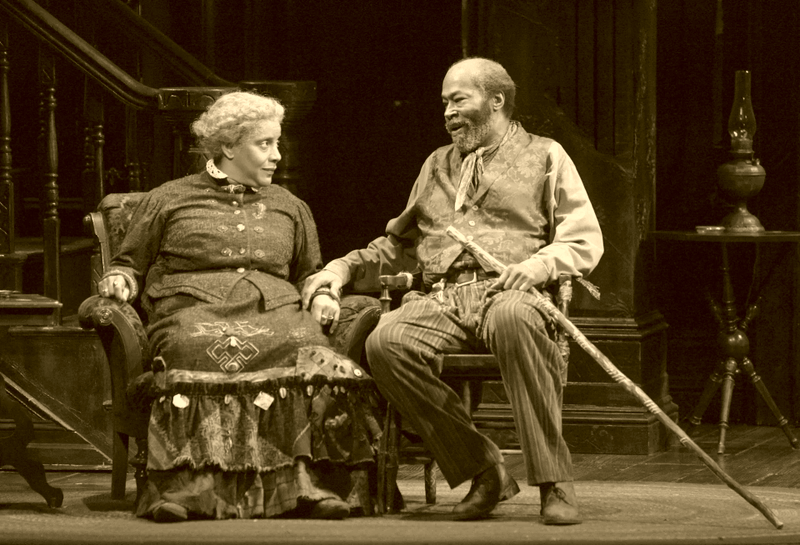
2002
Topdog / Underdog
Suzan-Lori Parks (Playwright)
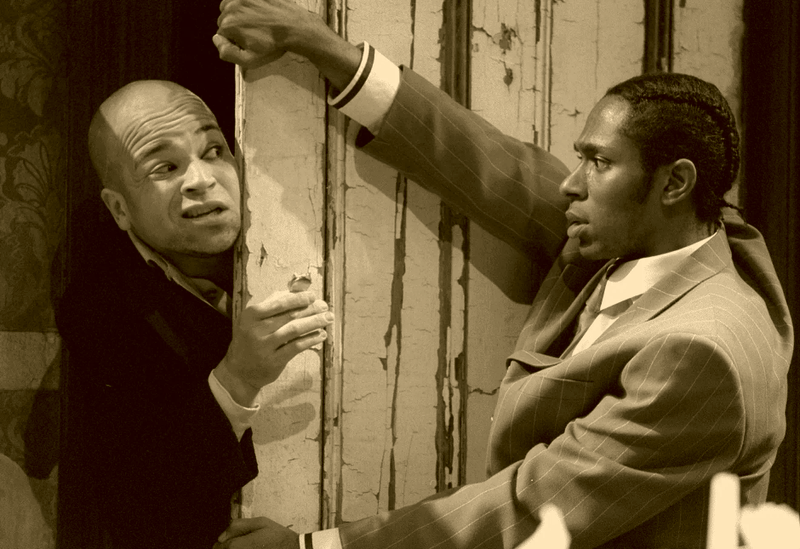
7 April – 11 August, 2002
The play chronicles the adult lives of two African-American brothers as they cope with poverty, racism, work, women, and their troubled upbringings. Lincoln lives with Booth, his younger brother, after being thrown out by his wife. Booth reminds Lincoln that his presence was meant to be a temporary arrangement. But Lincoln, who works at an arcade as a whiteface Abraham Lincoln impersonator, is their sole source of income. At the end of the play, Booth lives up to his name when, after Lincoln wins his inheritance in a round of three-card monte, Booth shoots Lincoln from behind and kills him. The final scene ends with Booth cradling his brother’s body and screaming. (Source: Wikipedia)
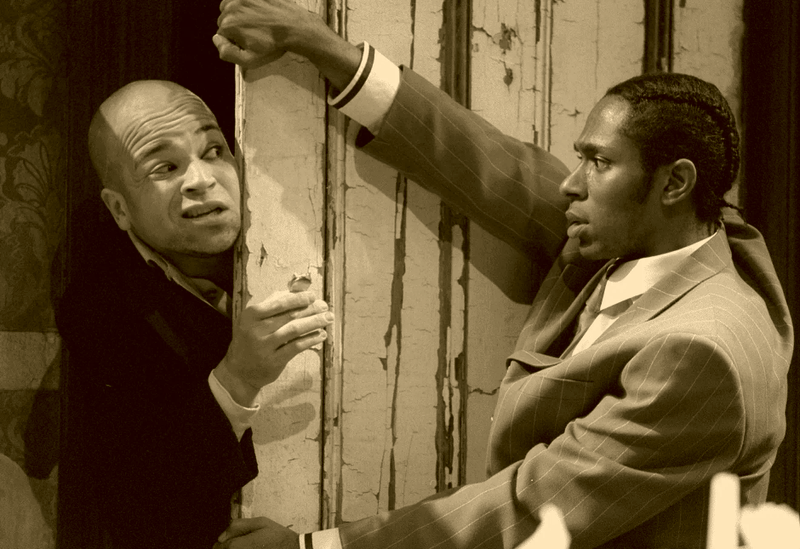
1999
Kat and the Kings
Taliep Petersen (Composer)
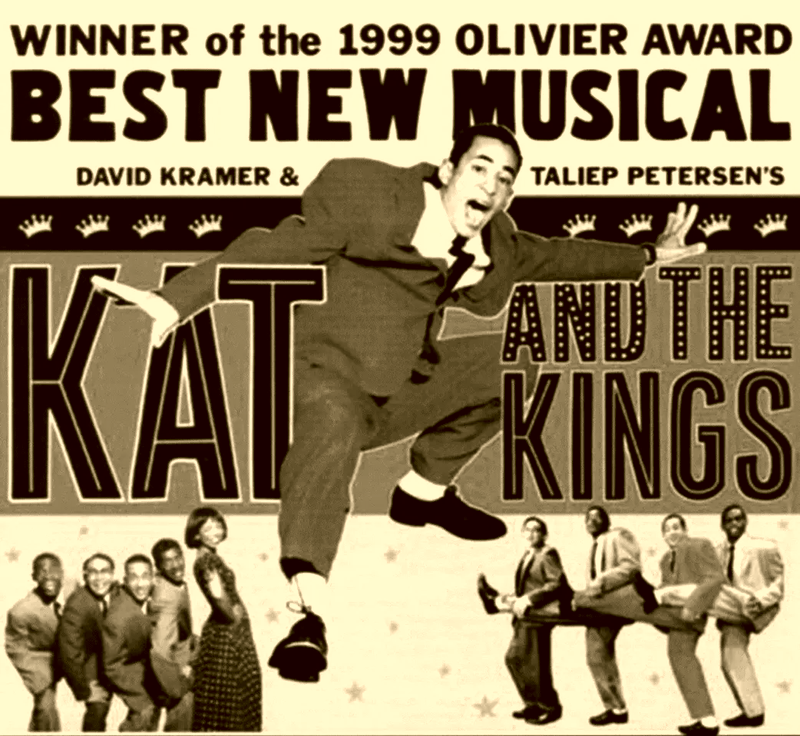
19 August – 2 January, 2000
Set in late-1950s South Africa, it focuses on teenager Kat Diamond, who believes he's the best singer and dancer in District Six, multi-racial slum in Cape Town. With his friends Ballie, Magoo, Bingo, and Lucy, he forms the a cappella group the Cavalla Kings, and the quintet - emulating the American doo wop and rock and roll they adore - becomes a sensation, graduating from street corners to “whites only” nightclubs where the dictates of apartheid force them to use the rear entrance) and a recording contract.
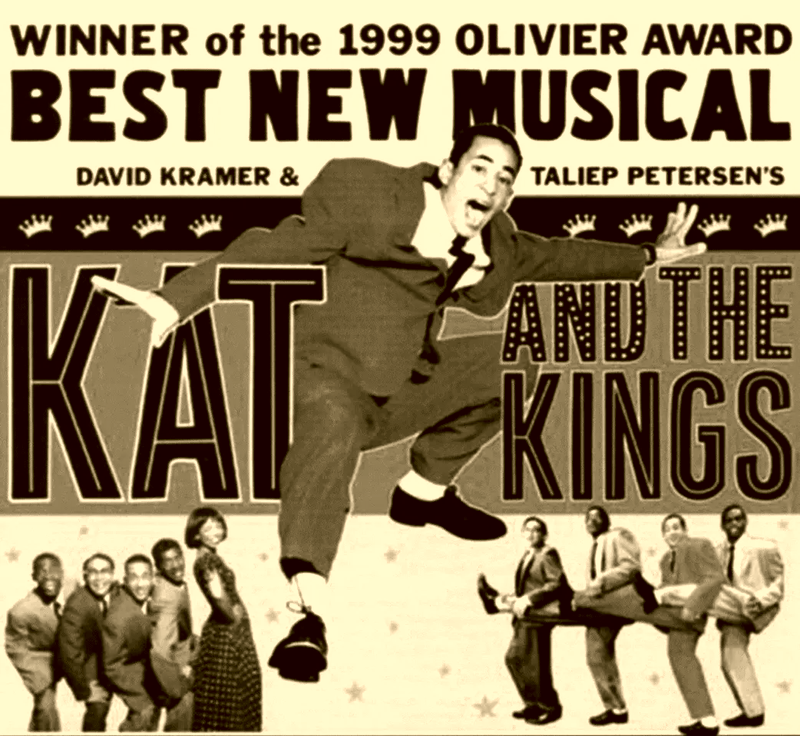
2016
Eclipsed
Danai Gurira (Playwright)
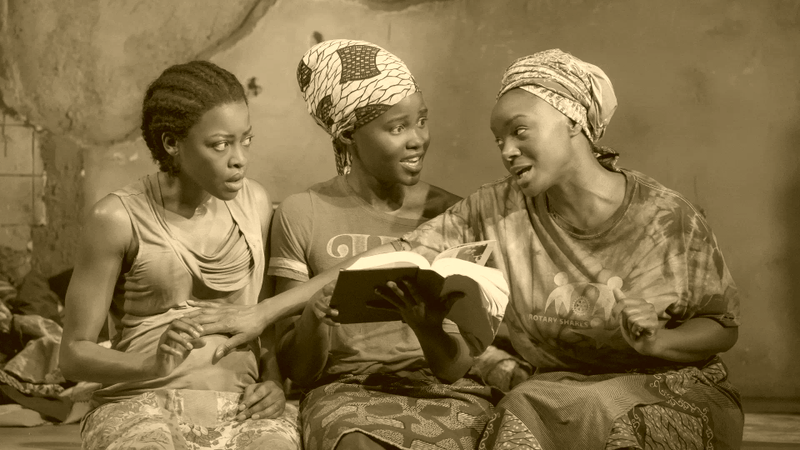
6 March – 19 July, 2016
Eclipsed takes place in the country of Liberia in 2003 at a bullet-ridden one room shack, which serves as an army camp for the rebel group called Liberians United for Reconciliation and Democracy (LURD), which aimed to depose Charles Taylor the then president of Liberia. The unseen Commanding Officer kidnaps two young women (Helena & Bessie) and makes them his “wives” by forcing them to have sex with him whenever he wants it. The women are helping to care for a bright 15-year-old (The Girl), who has also been abducted and raped after being discovered by the C.O.. Soon, Maima returns from the battlefield, where she was fighting as a soldier. She tries to convince The Girl to leave the C.O. and become a soldier with her. Rita, who works for a peace organization, makes occasional visits at the compound to end conflict. The Girl now seems to resign herself to her new life in the compound with limited options to choose from—stay with an abusive C.O. or become a soldier, while the others will try to make sense of this difficult situation. (Source: Wikipedia)
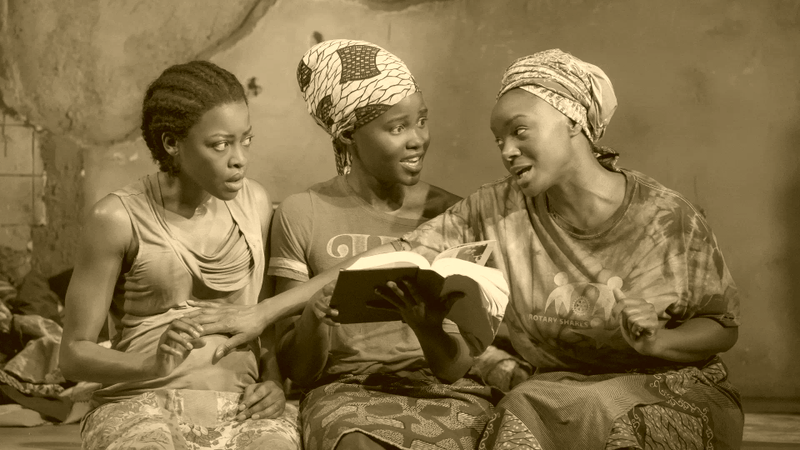
1996
Bring in ‘Da Noise, Bring in ‘Da Funk
Savion Glover (Source Material), Reg E. Gaines (Book, Lyrics), George C. Wolfe (Playwright), Daryl Waters (Composition), Ann Duquesnay (Lyrics, Composition)
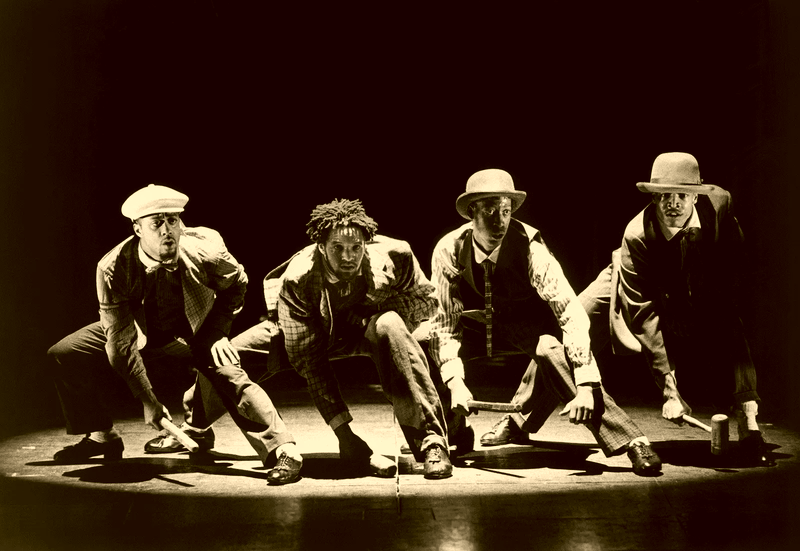
25 April, 1996 – 10 January, 1999
Bring in 'da Noise, Bring in 'da Funk is a musical revue telling the story, through tap, of black history from slavery to the present. The musical numbers are presented along with supertitles, projected images and videotapes and with continuing commentary. Wolfe took the rap words of Reg E. Gaines and turned them into “tap/rap (tap dancing informed by hip-hop and funk rhythms).”
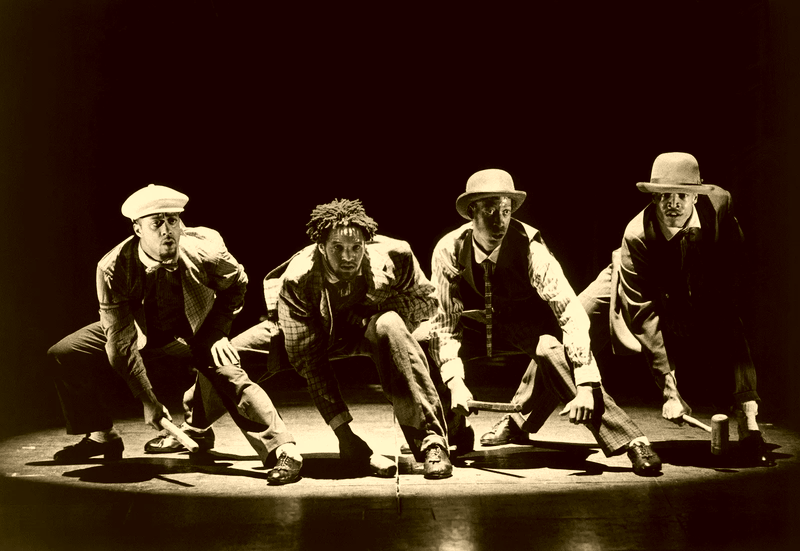
1909
The Red Moon
J. Rosamond Johnson (Music), Bob Cole (Playwright)
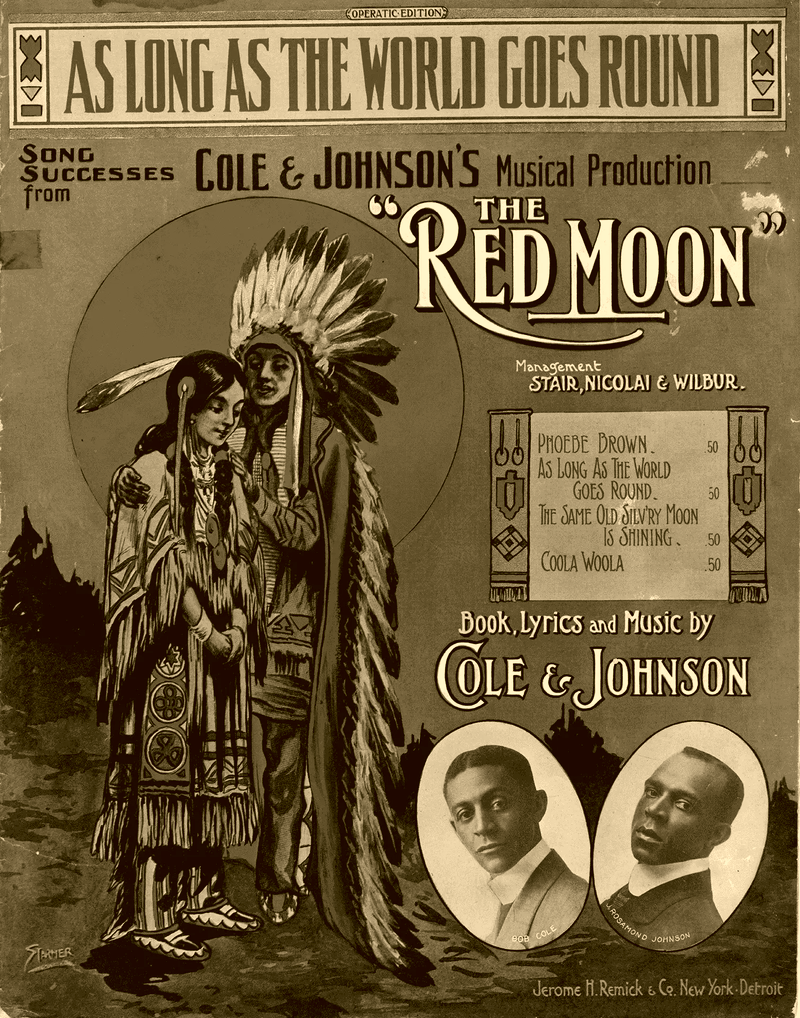
3 – 29 May, 1909
Minnehaha, a half-African American and half-Native Ameircan woman lives in Virginia with her African American mother Lucretia Martin, “the old chief’s wife.” Having just graduated from Swampton, an industrial education institution, Minnehaha is kidnapped by her father Chief Lowdog and Red Feather, who take her back to the reservation in the West. On the reservation Minnehaha becomes an object of affection for Red Feather, but she eventually wants to leave the reservation.
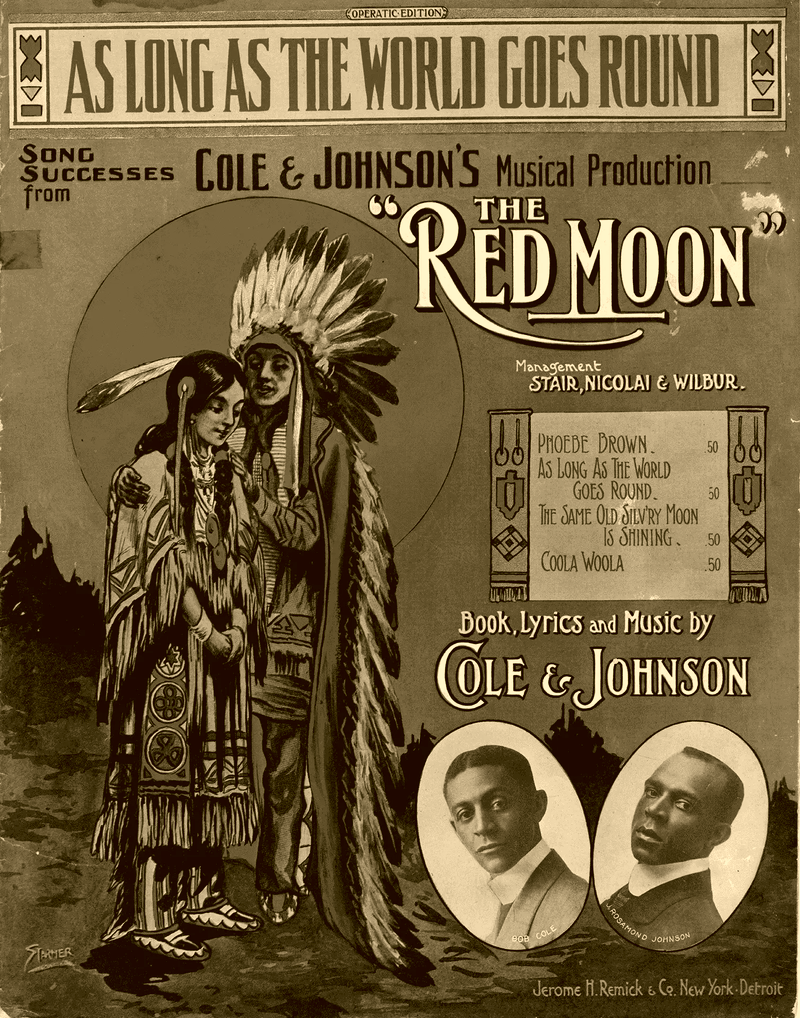
2021
Trouble in Mind
Alice Childress (Playwright)
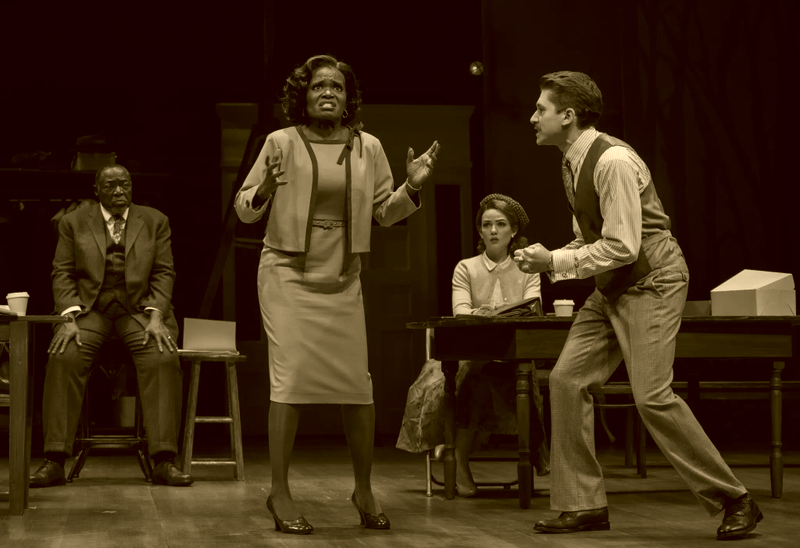
29 October, 2021 – 9 January, 2022
A wry and moving look at racism, identity, and ego in the world of New York theater. At the forefront of both the Civil Rights and feminist movements, the prescient Trouble in Mind opened to acclaim Off-Broadway in 1955 and was announced to move to Broadway in 1957...in a production that never came to be.
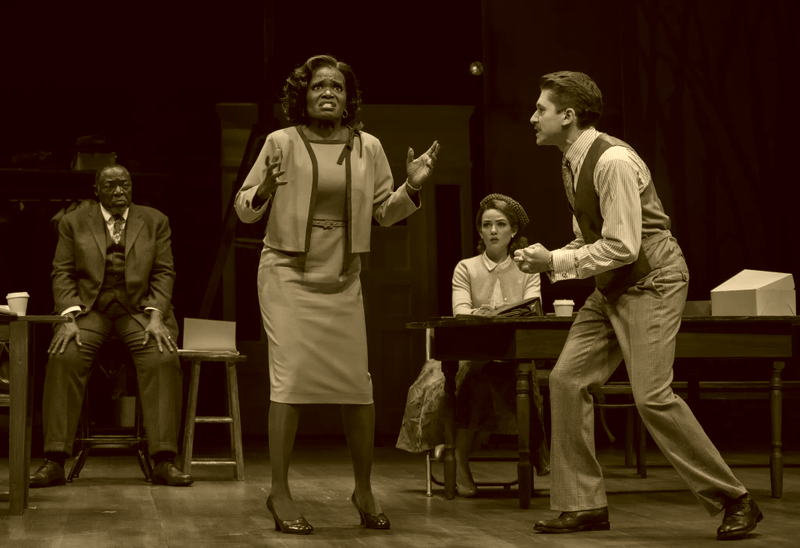
1974
Black Picture Show
Bill Gunn (Playwright, Director)
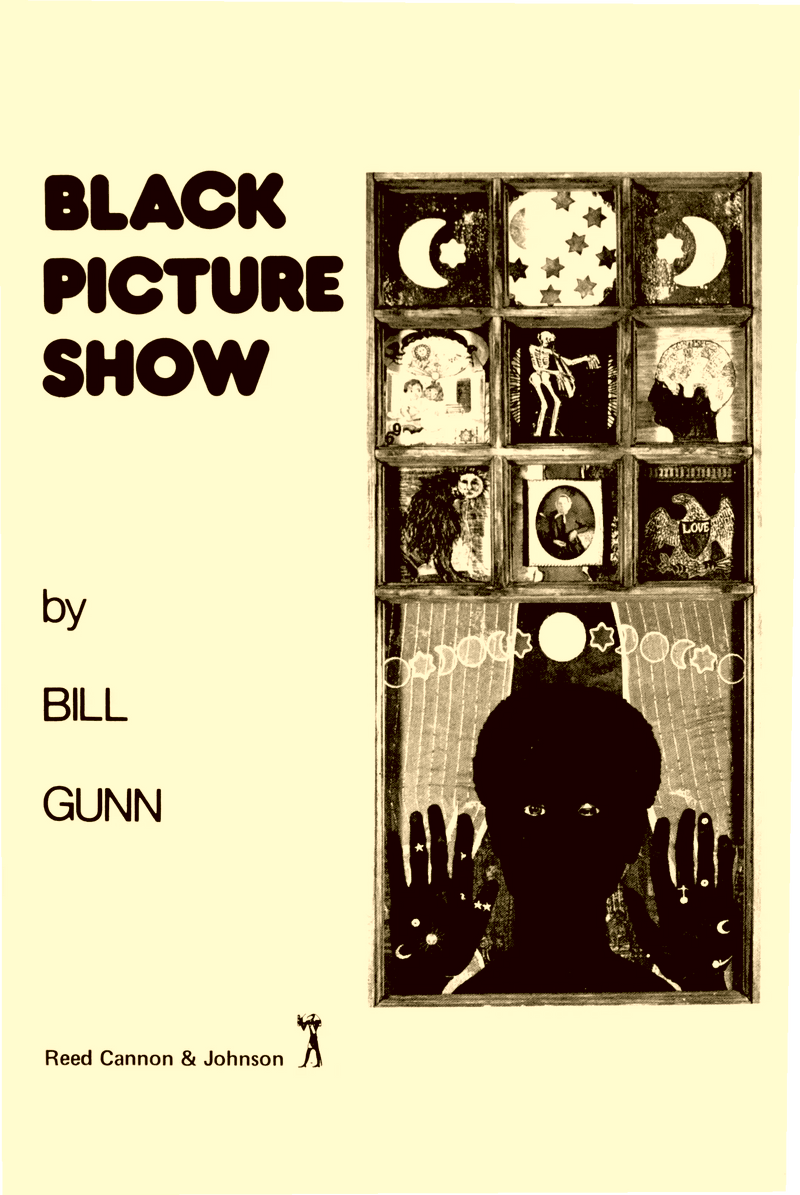
20 December, 1974 – 9 February, 1975
A black poet, playwright and screenwriter, has gone mad and is on point of death. His son, a prosperous film director, proposes to tell us the story of his last day on earth.
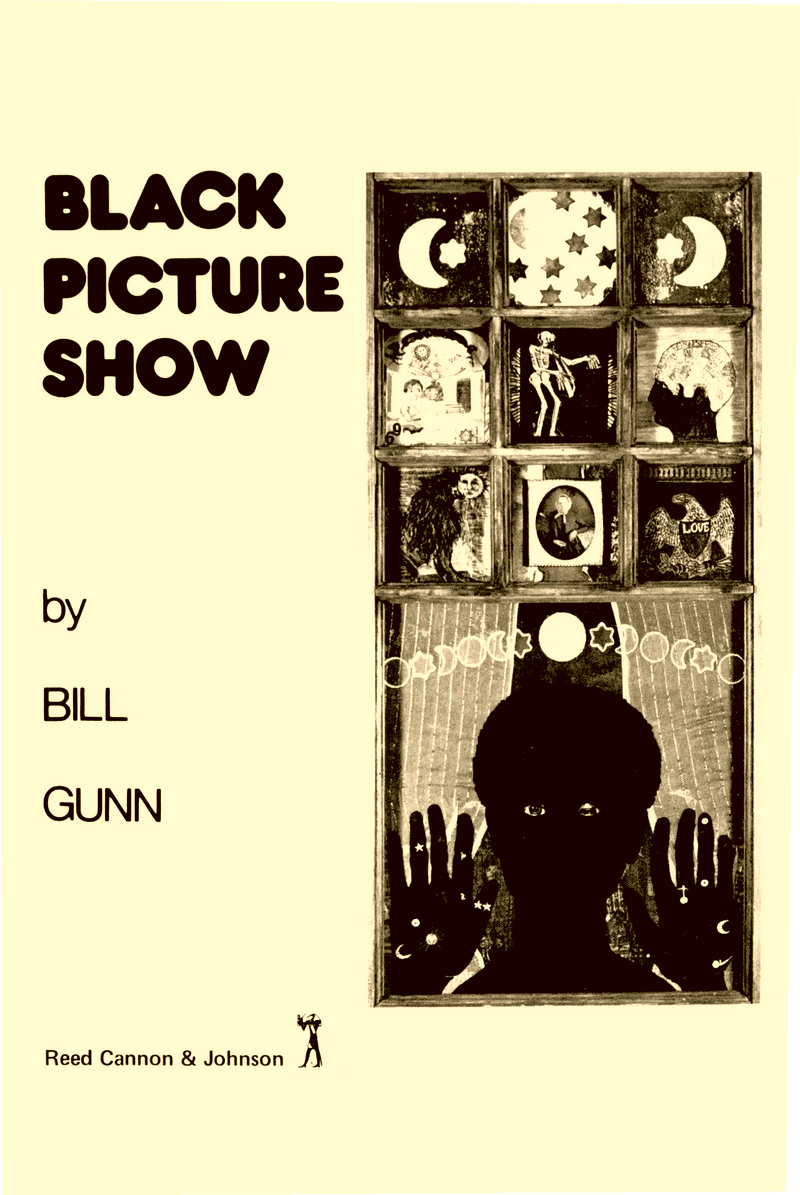
1935
Mulatto
Langston Hughes (Playwright)
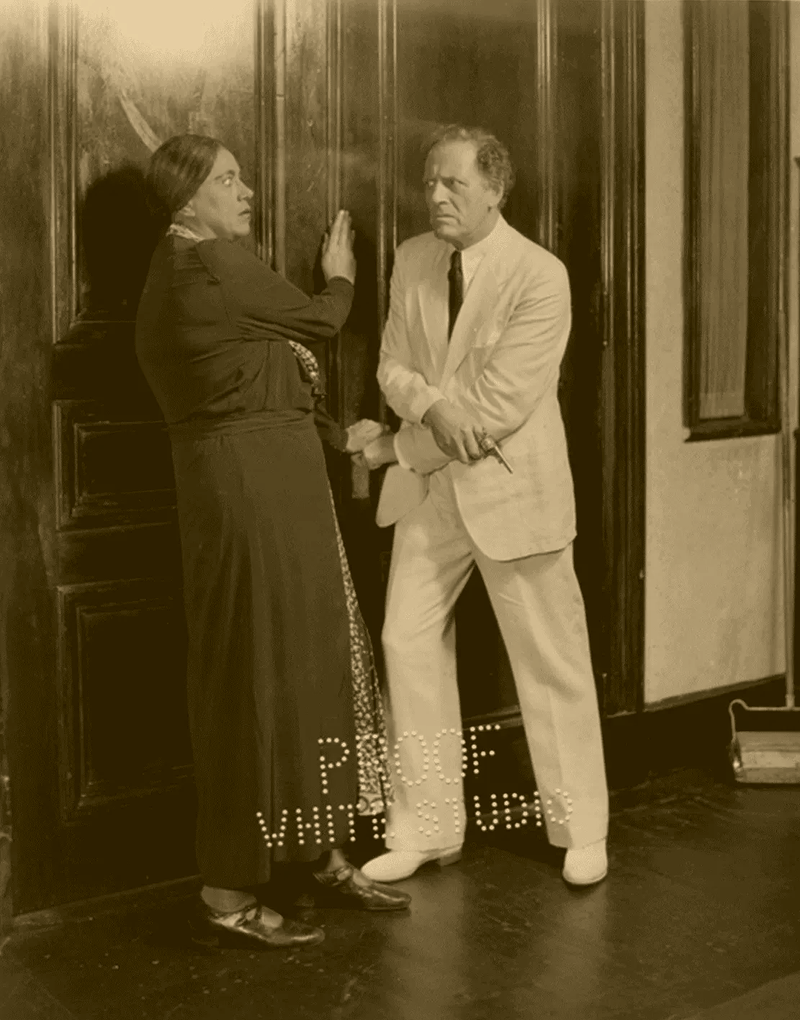
24 October, 1935 – 12 September, 1936
An American tale set two generations beyond abolition on a plantation in Georgia. Colonel Thomas Norwood is an old man who never remarried after the death of his young wife. His servant, Cora Lewis, a black woman now in her forties lives in the house with him and she manages the house and cares for his every need. Cora and the Colonel have had five children together, four of whom survived to adulthood. These mixed race children (called then “mulattoes”) have been educated and employed on the plantation, but are not acknowledged as family or heirs. Robert Lewis, the youngest at eighteen, worshipped his father until age eight when he was severely beaten for calling Colonel Thomas Norwood “Papa.” Since then he has been on a mission to get the Colonel to recognize him as a son. Robert will not use the back door, he drives the car without permission, and he refuses to wait for a white customer to be served when he has been waiting longer. His actions inflame the local community who threaten to lynch him. The action of the play culminates in a confrontation between the Colonel and Robert where the two men fight and Robert kills his father. The townsfolk come to lynch Robert, who runs, but circles back to the house with a gun. Cora tells her son that he is to hide upstairs and she’ll distract the mob. Robert uses the last bullet in his gun to shoot himself before the mob can hang him. (Source: ThoughtCo)
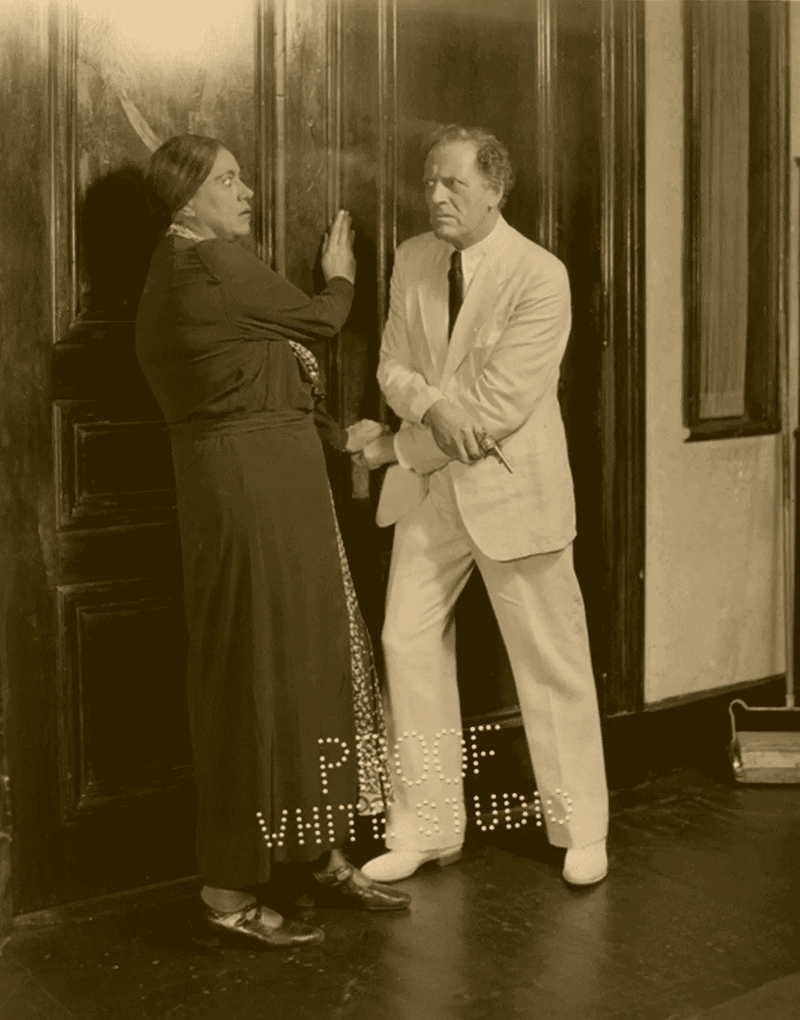
1981
Lena Horne: The Lady and Her Music
Lena Horne (Playwright)
30 April, 1981 – 30 June, 1982
A long-running Lena Horne concert review.
1991
Mule Bone
Zora Neale Hurston (Playwright), Langston Hughes (Playwright)
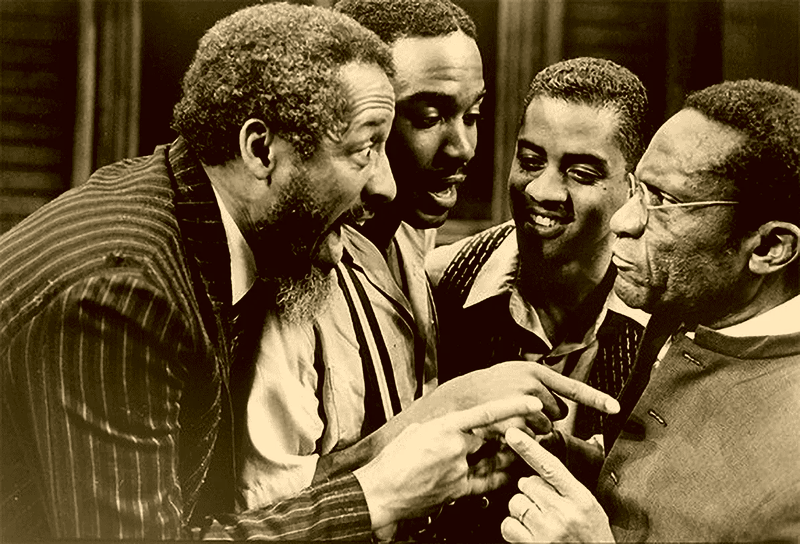
15 January – 15 April, 1991
The play begins in Eatonville, Florida, on a Saturday afternoon with Jim and Dave fighting for Daisy's affection. The two men come to blows, and Jim picks up a hock bone from a mule and knocks Dave out. Jim is arrested and held for trial in Joe Clarke's barn. On Monday, the trial begins in the Macedonia Baptist Church. The townspeople are divided along religious lines: Jim's Methodist supporters sit on one side of the church, Dave's Baptist supporters on the other. The issue to be decided at the trial is whether or not Jim has committed a crime. Jim admits he hit Dave but denies it was a crime. Elder Simms argues on Jim's behalf that a weapon is necessary to commit a crime, and nowhere in the Bible does it say a mule bone is a weapon. Elder Childers, representing Dave, says Samson used a donkey's jawbone to kill 3,000 men (citing Judges 18:18), so the hock bone of a mule must be even more powerful. Joe Clarke declares Jim guilty and banishes him from town for two years. Act III takes place some time later, with Daisy encountering Jim outside of town. She tells him she's been worried about him, but he's skeptical. She demonstrates the sincerity of her affection and Dave comes upon the couple. The two men engage in a war of words to try to show which of them loves Daisy more. The contest ends when it becomes clear that Daisy expects her man to work for the white people who employ her. Jim and Dave are reconciled, and neither remains interested in courting Daisy. The two men return to Eatonville.
